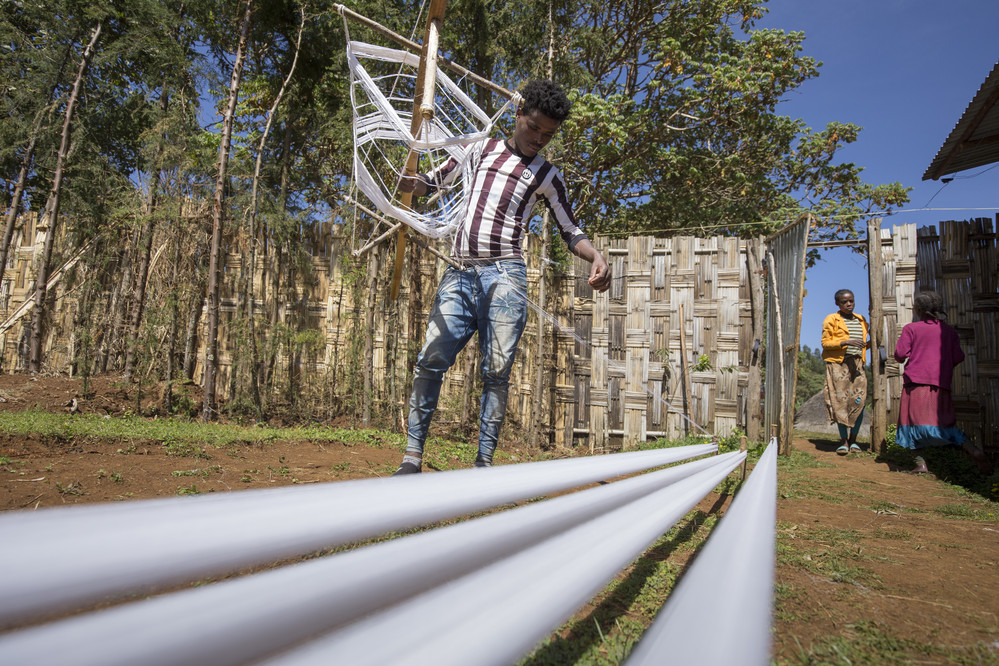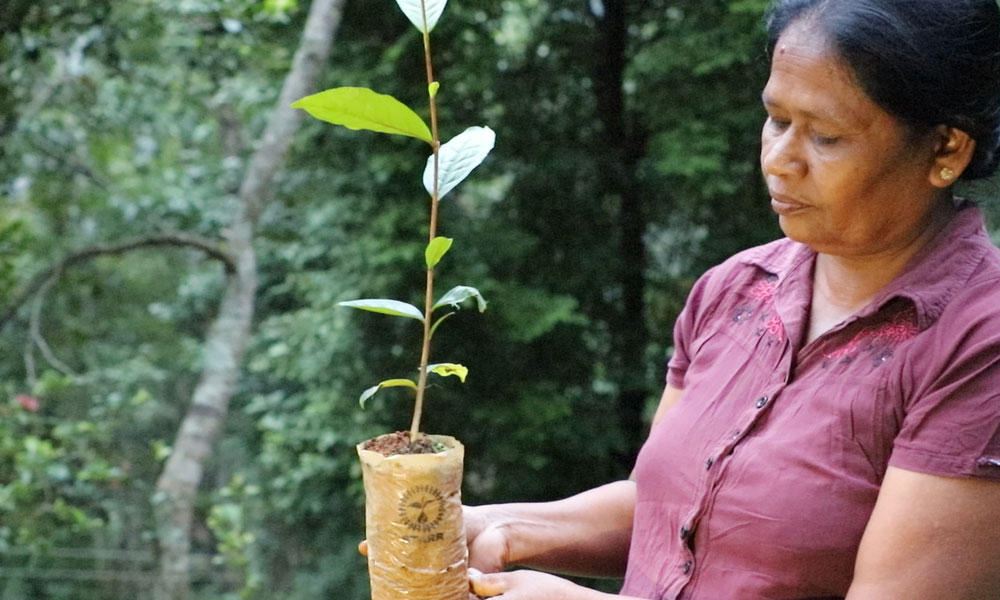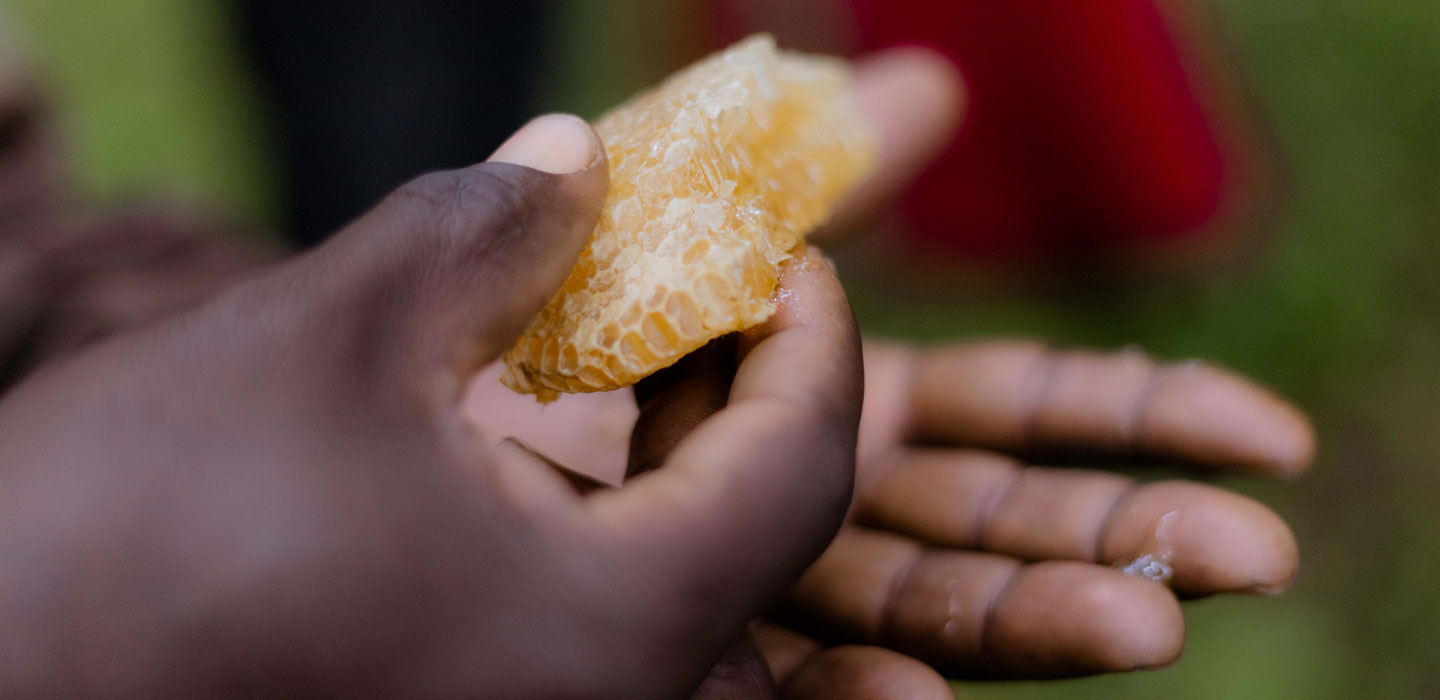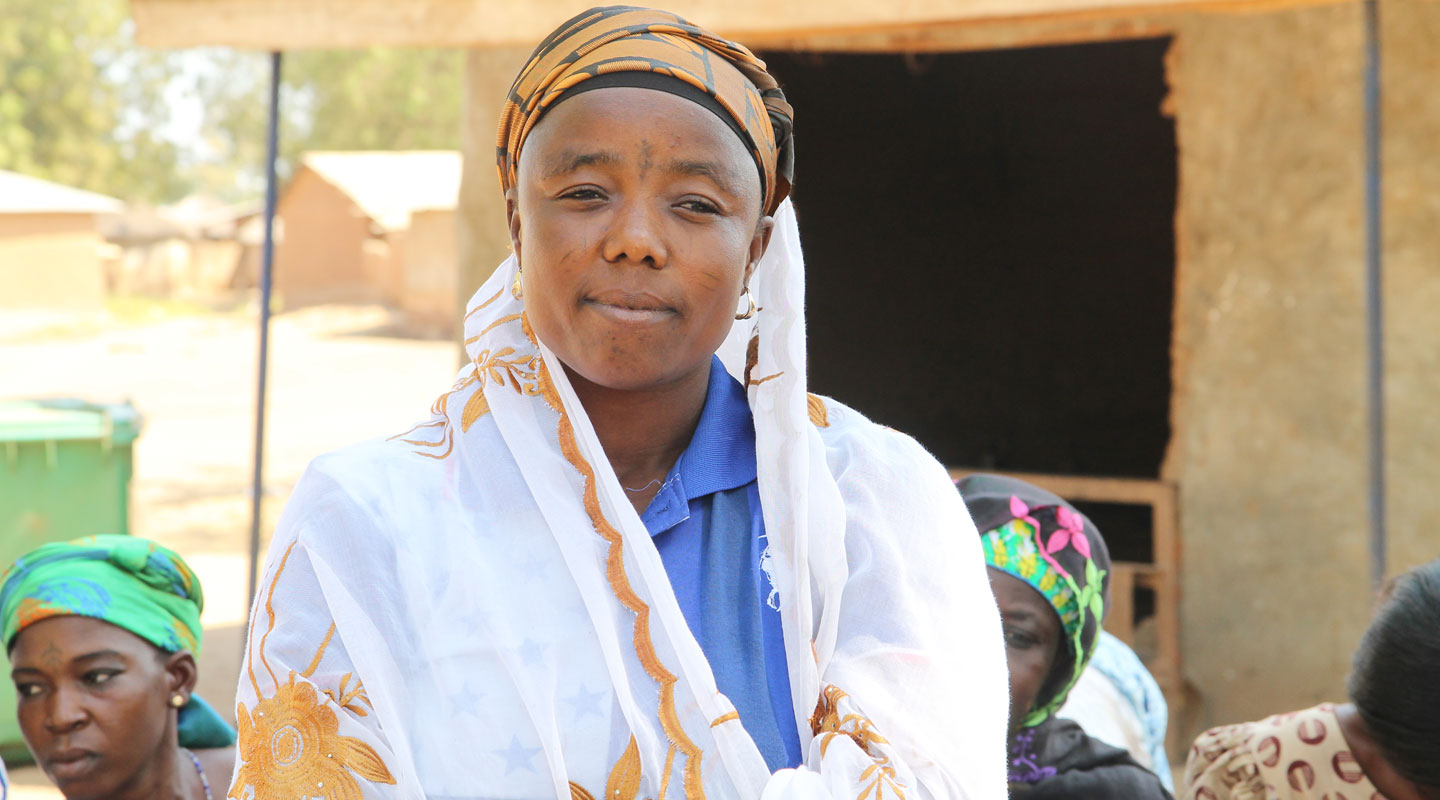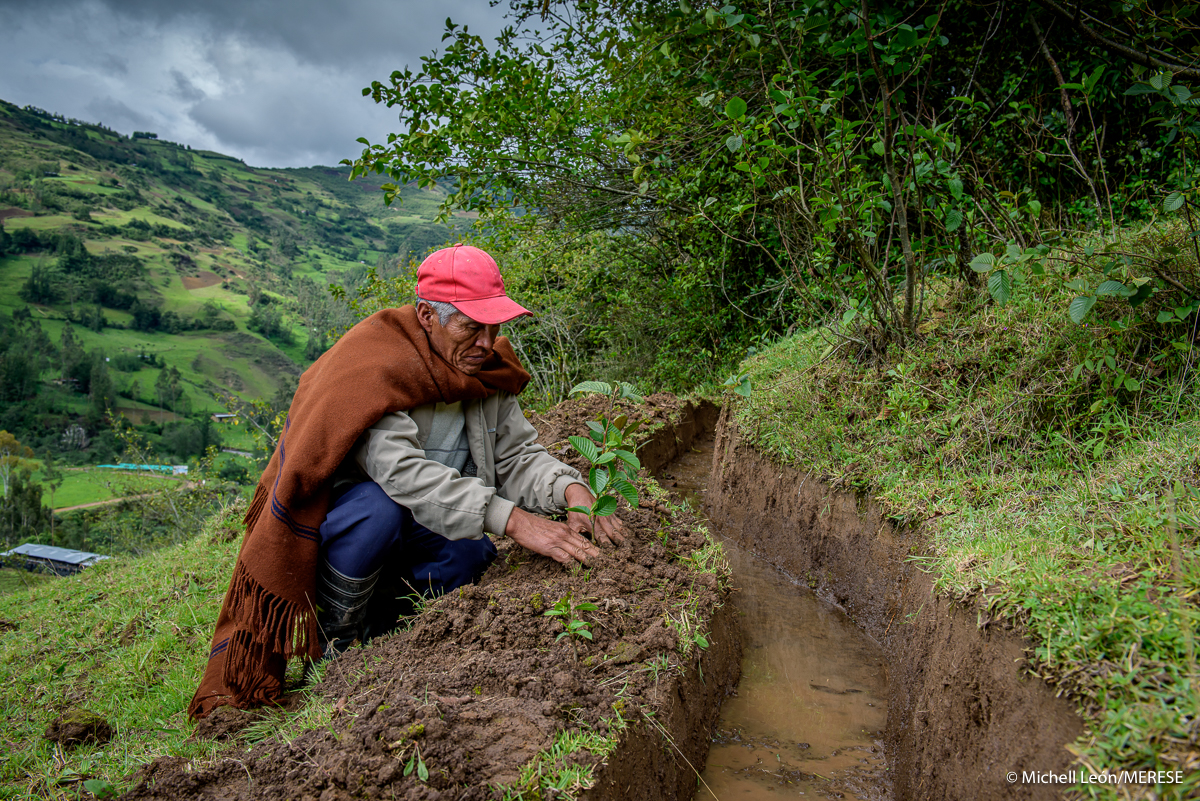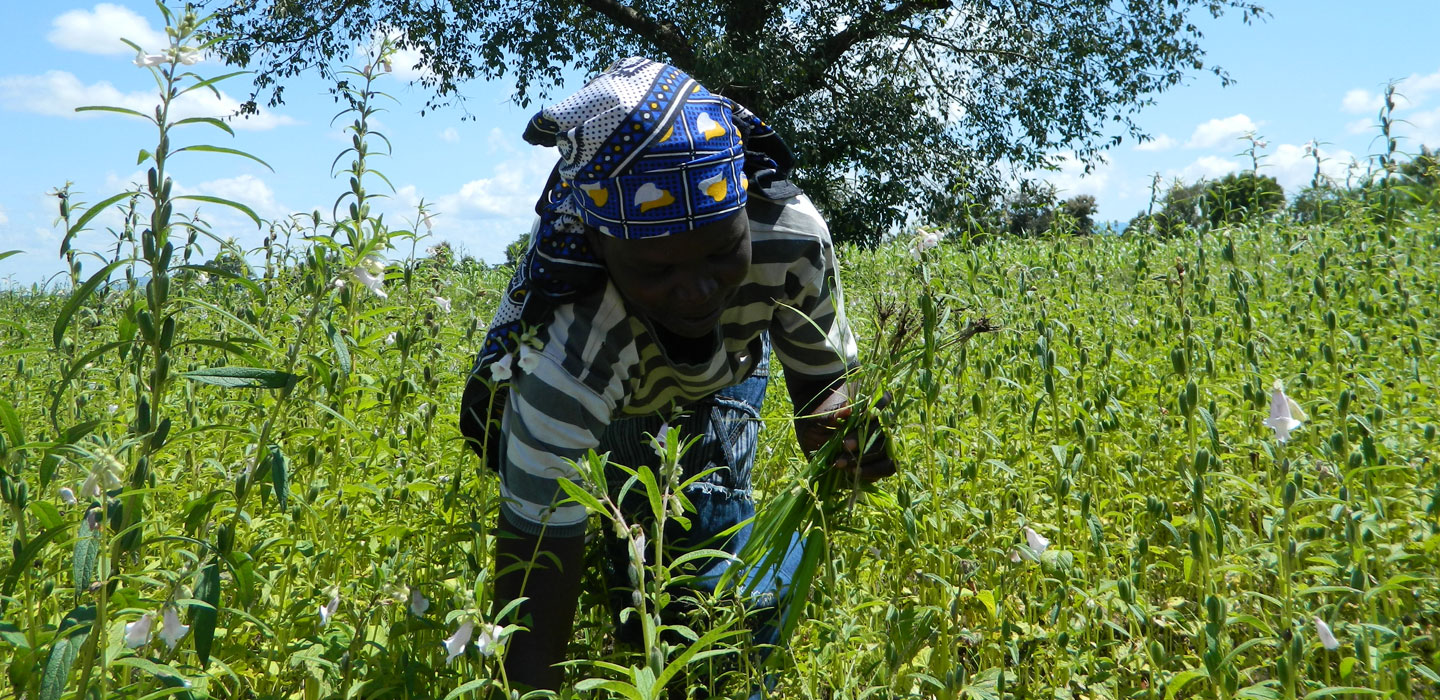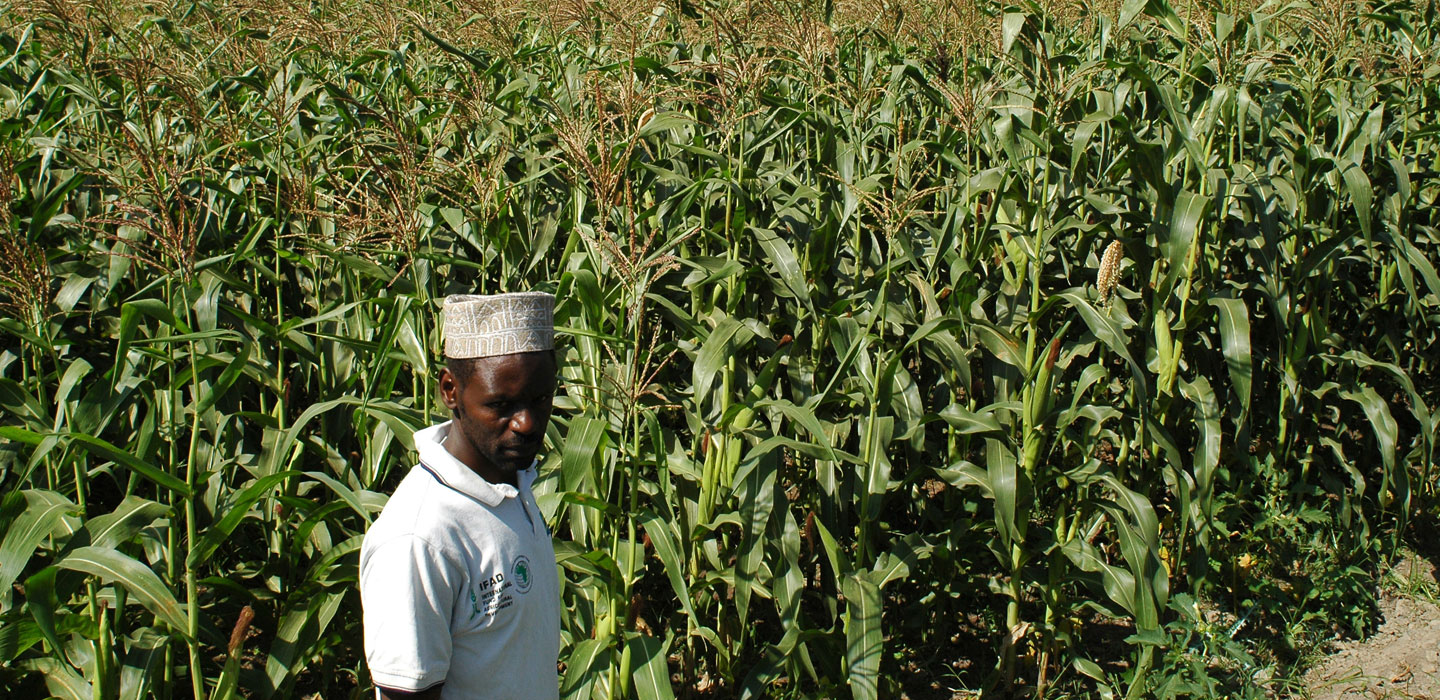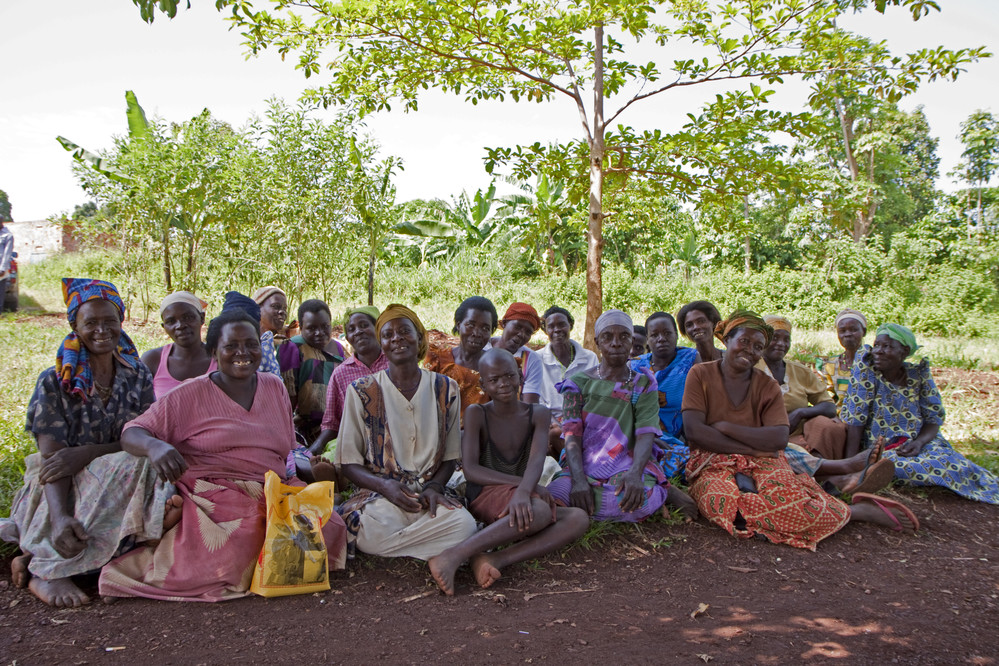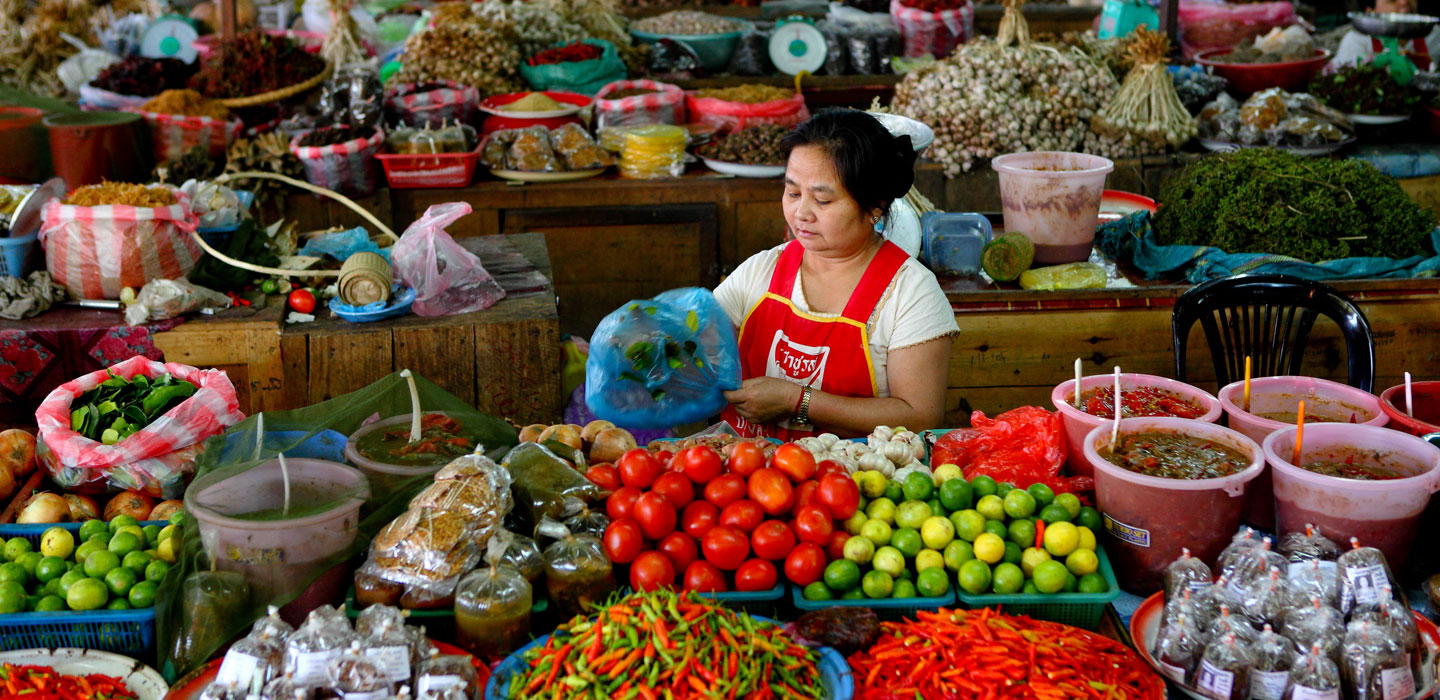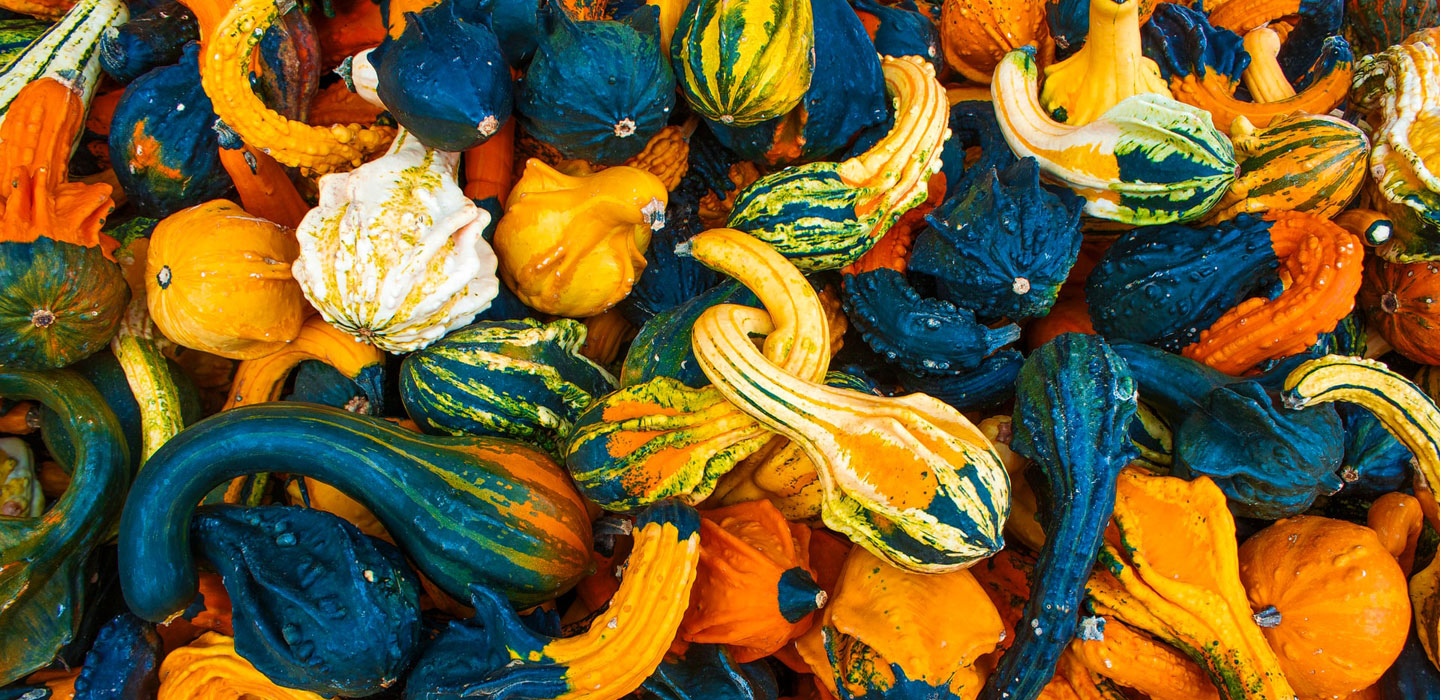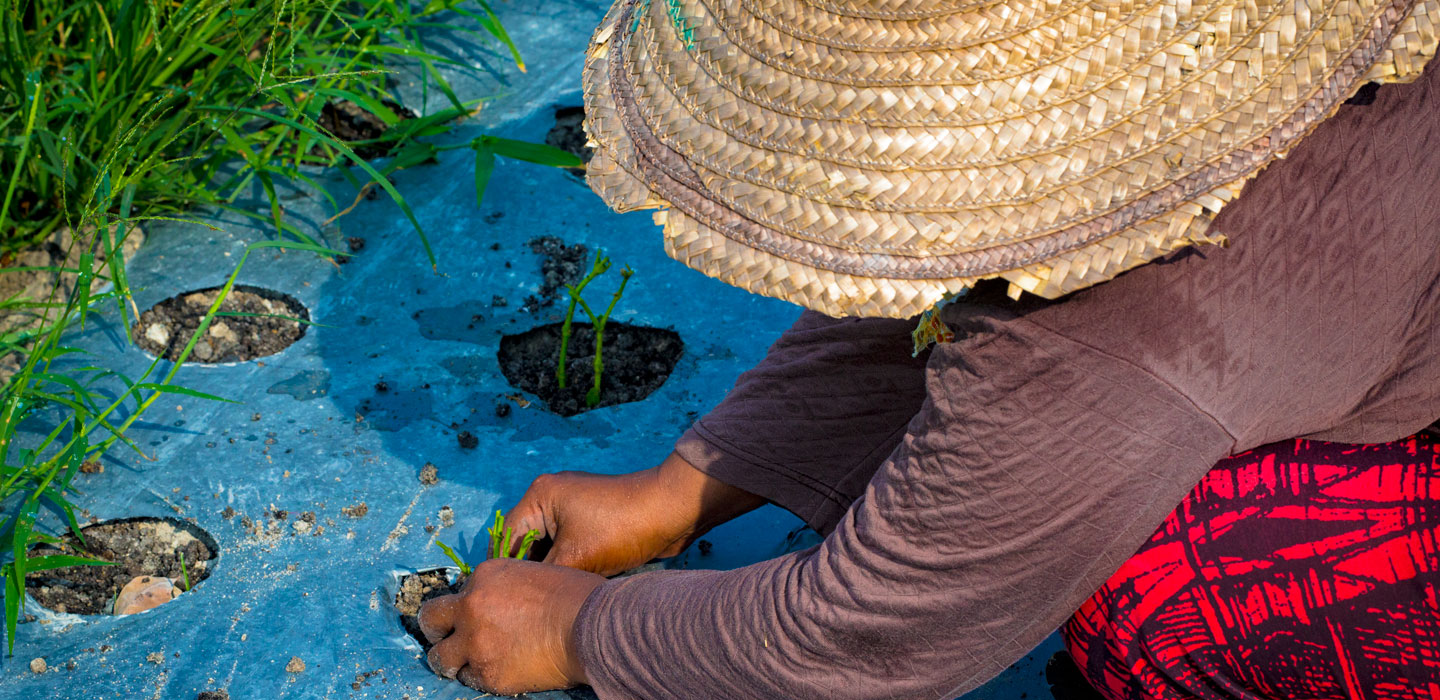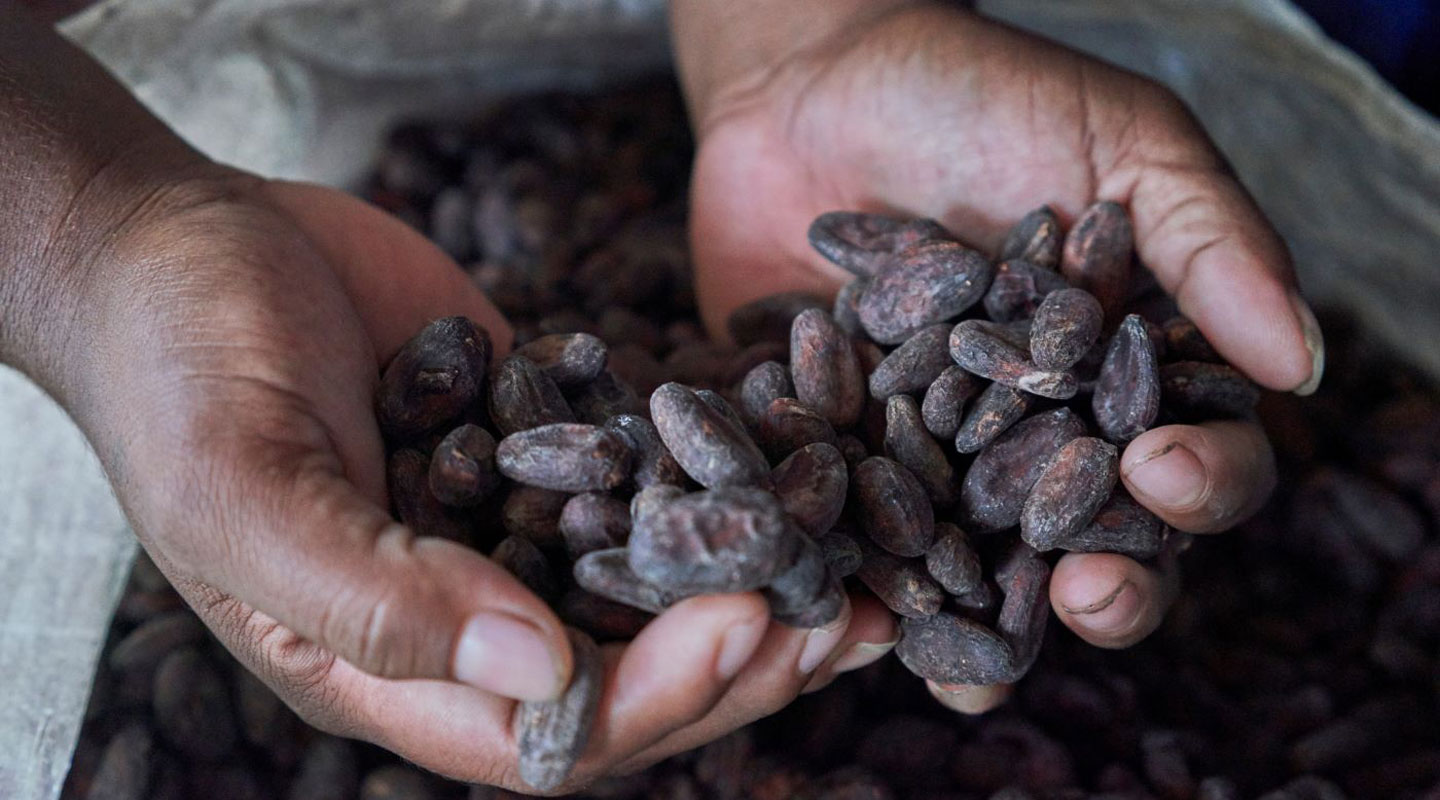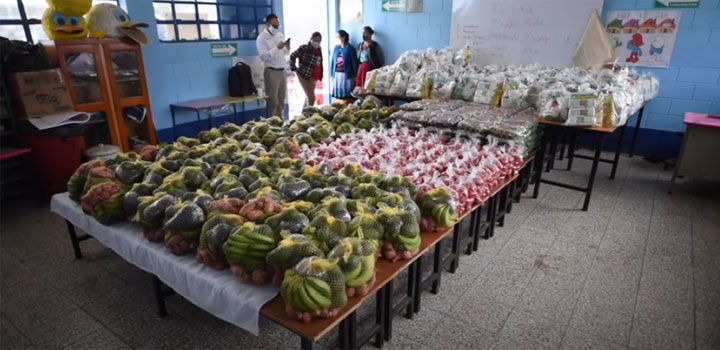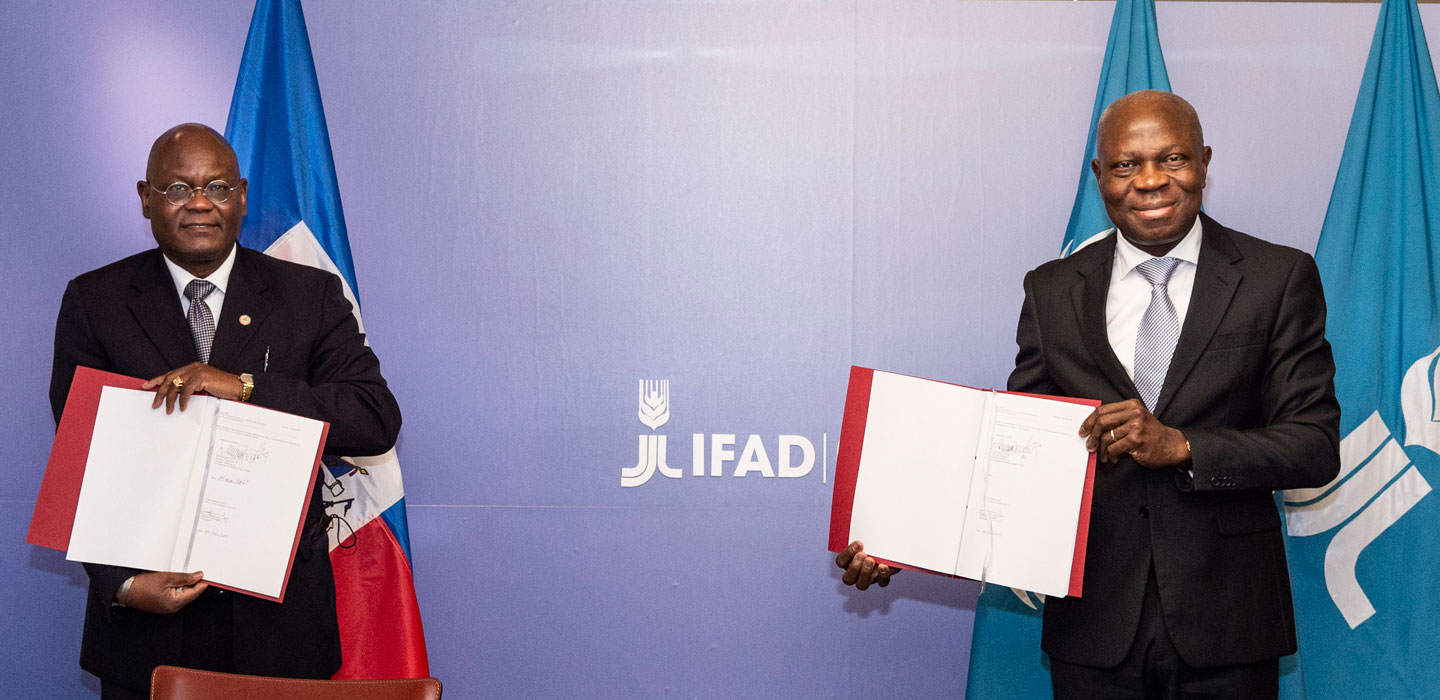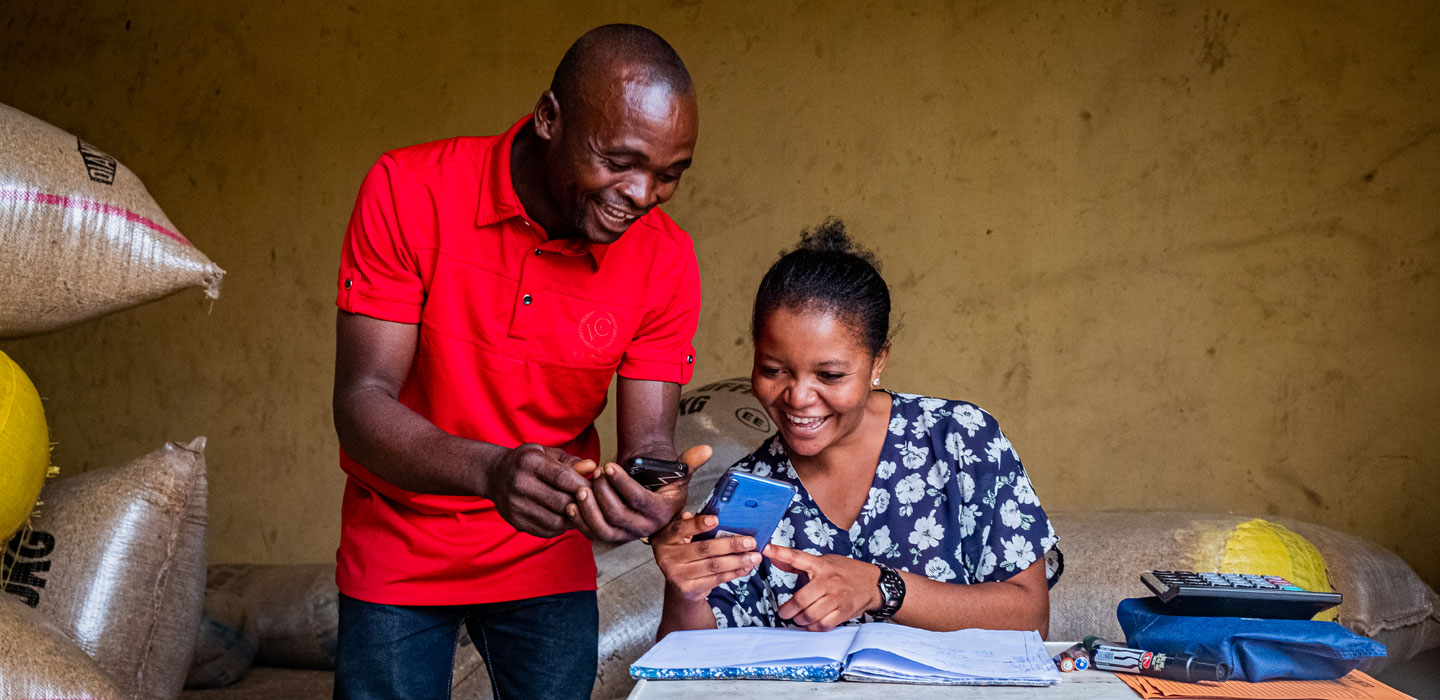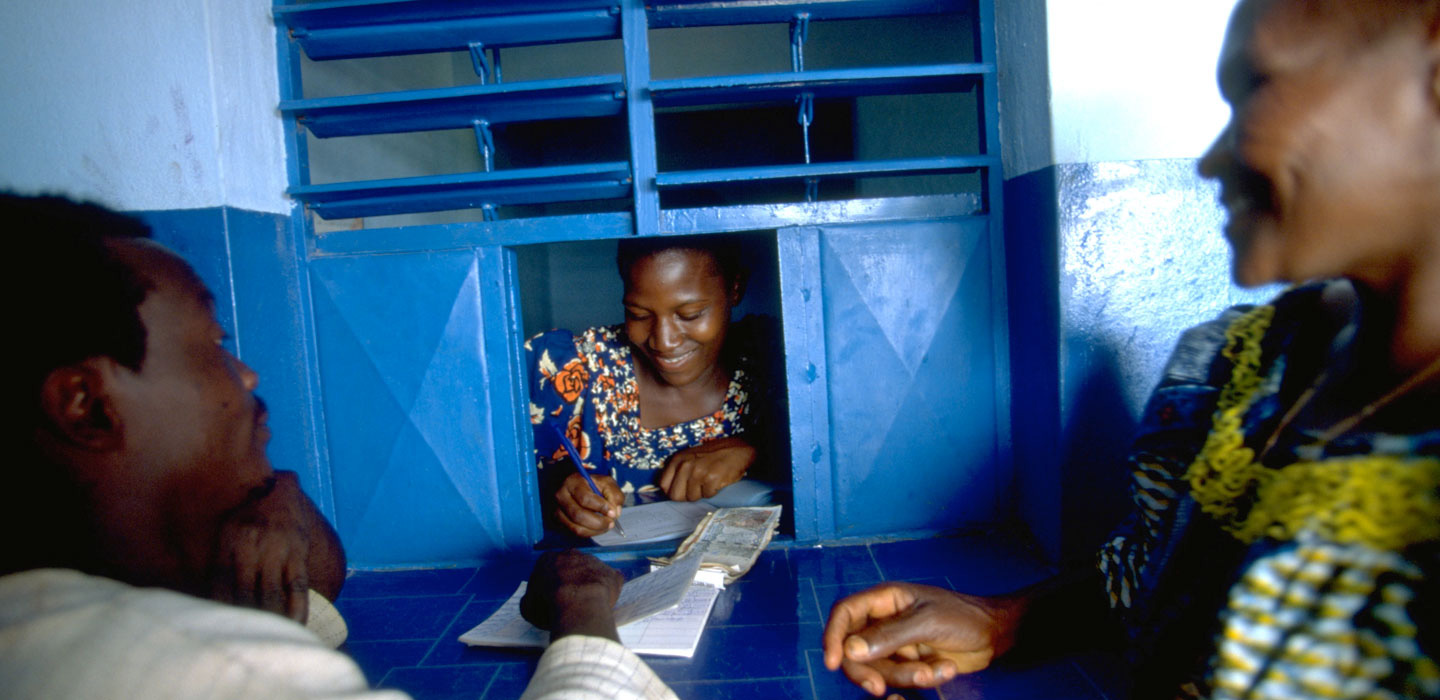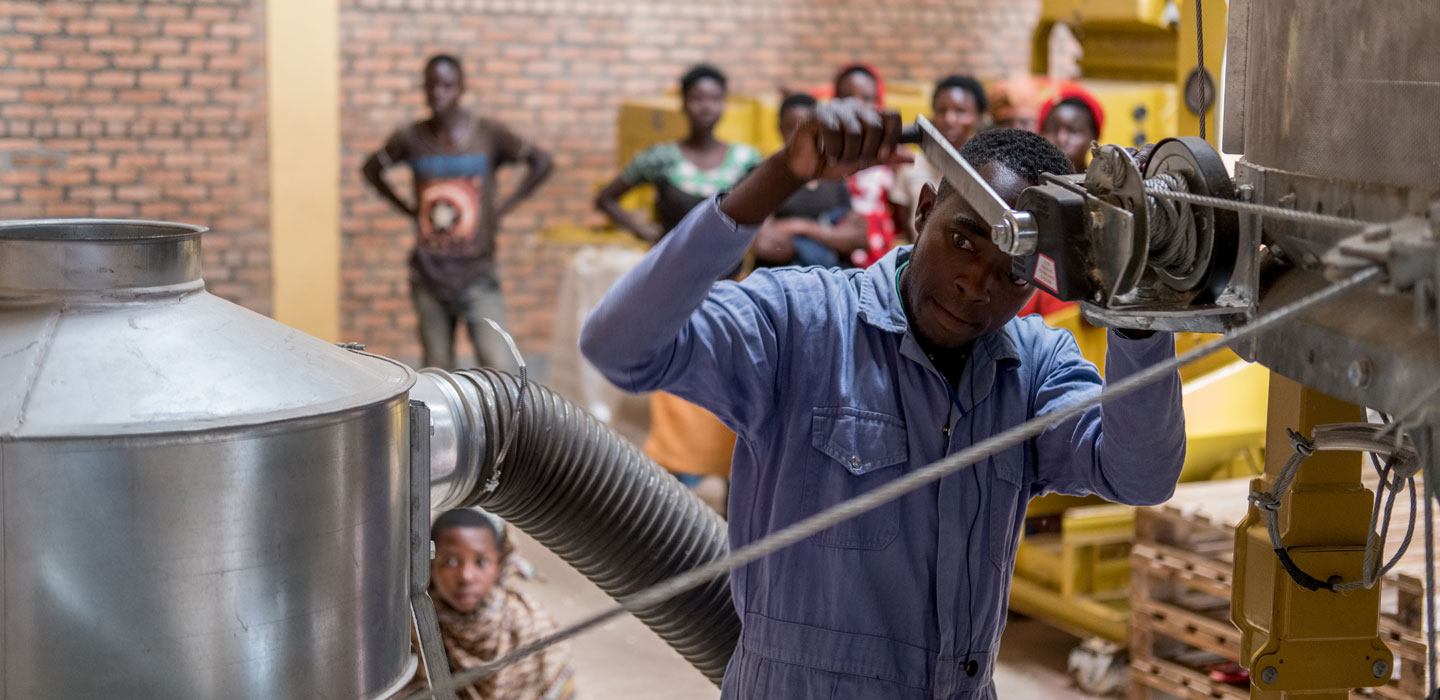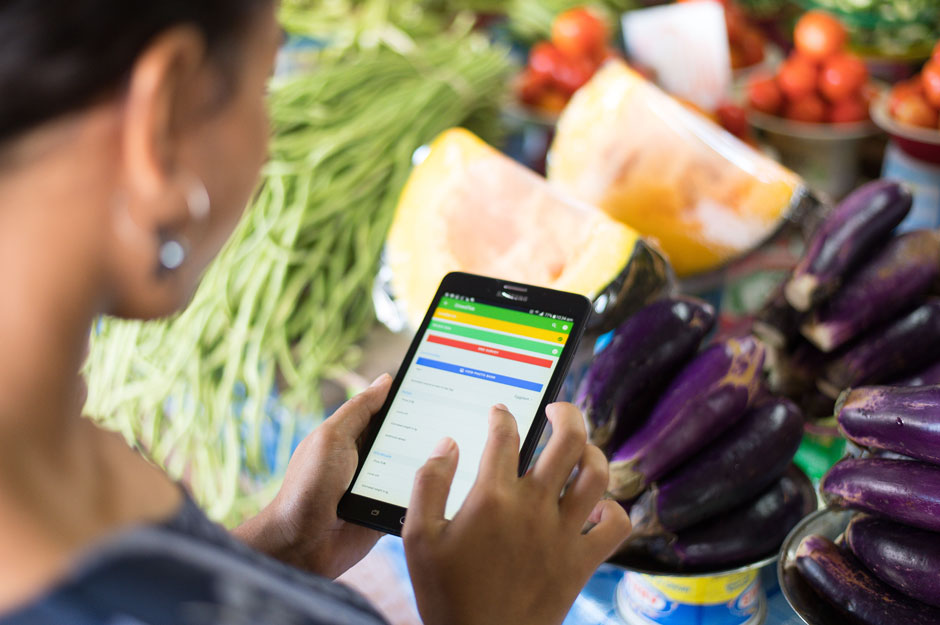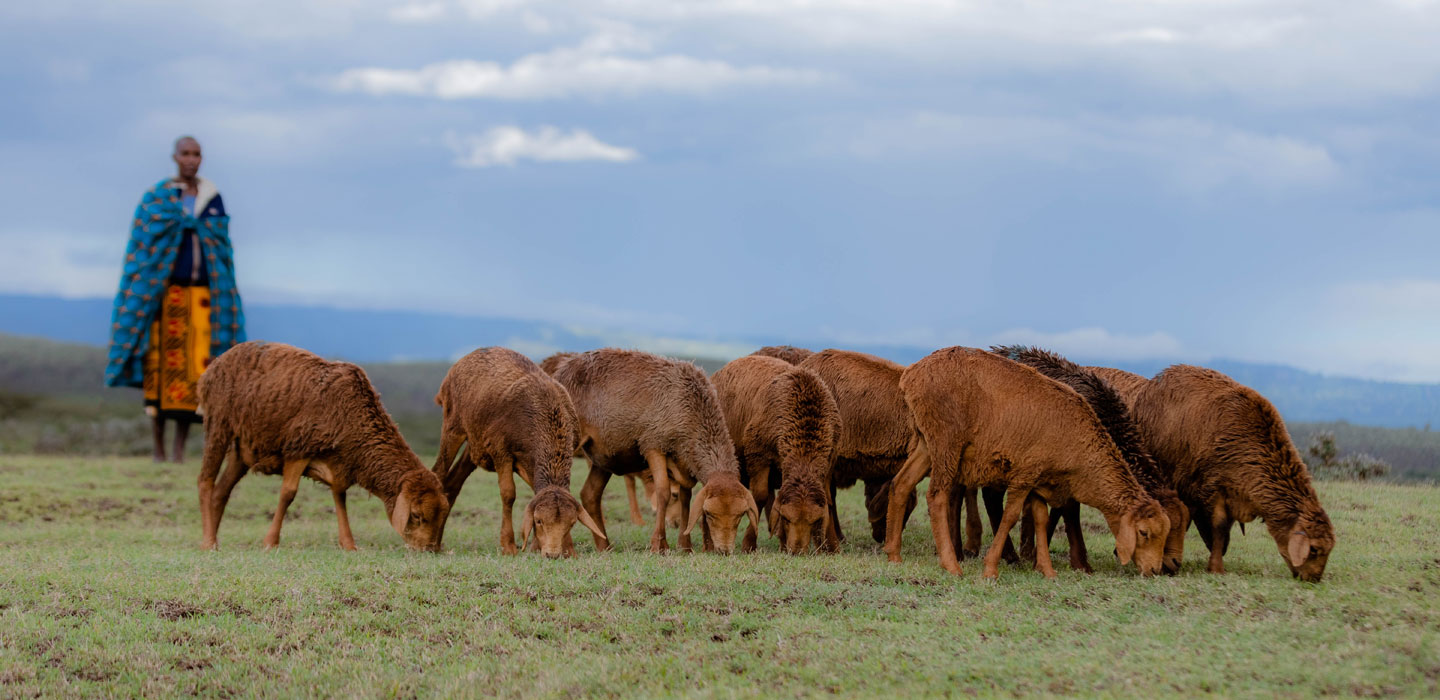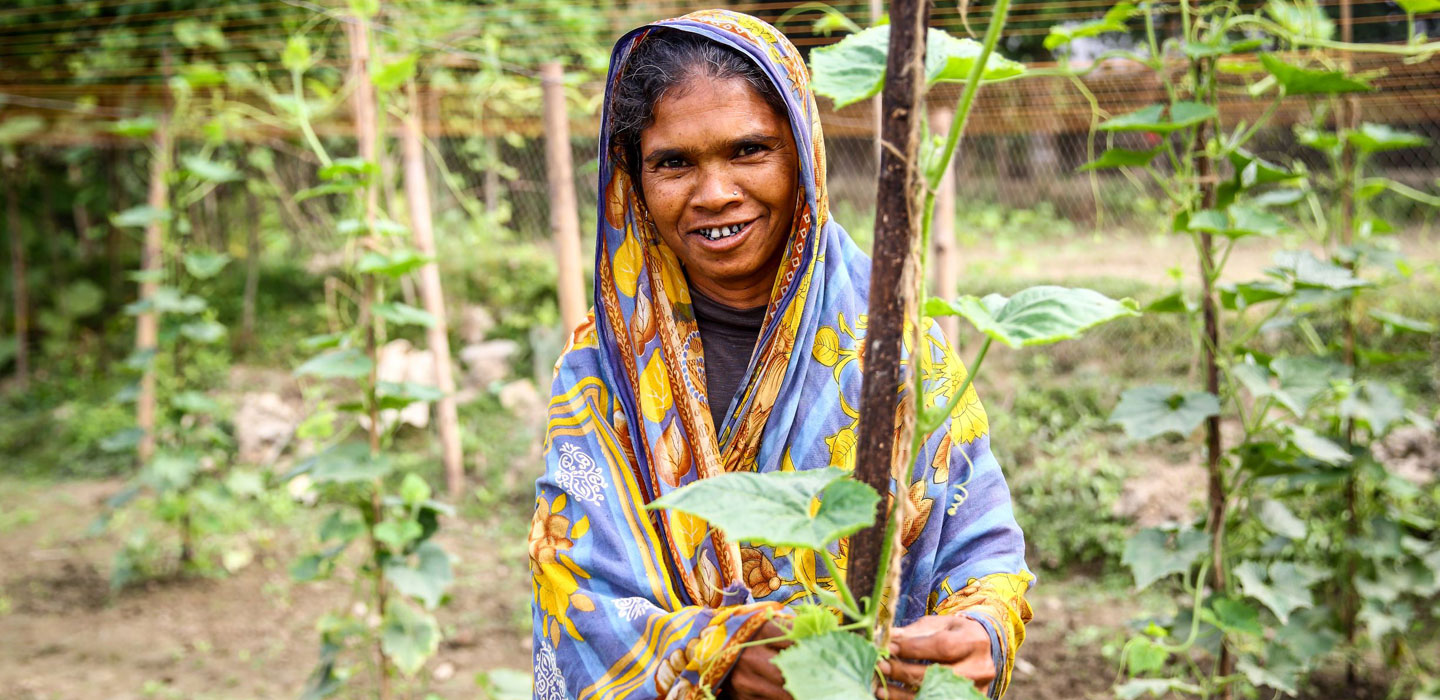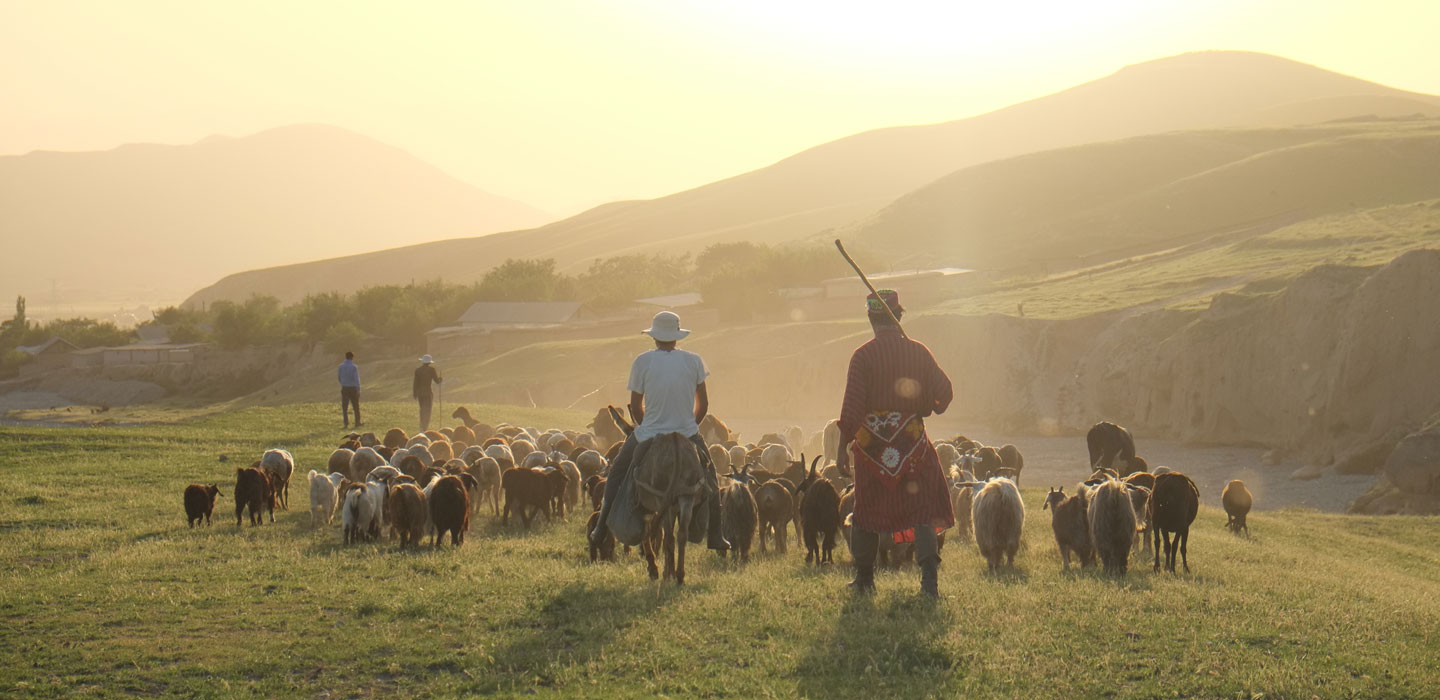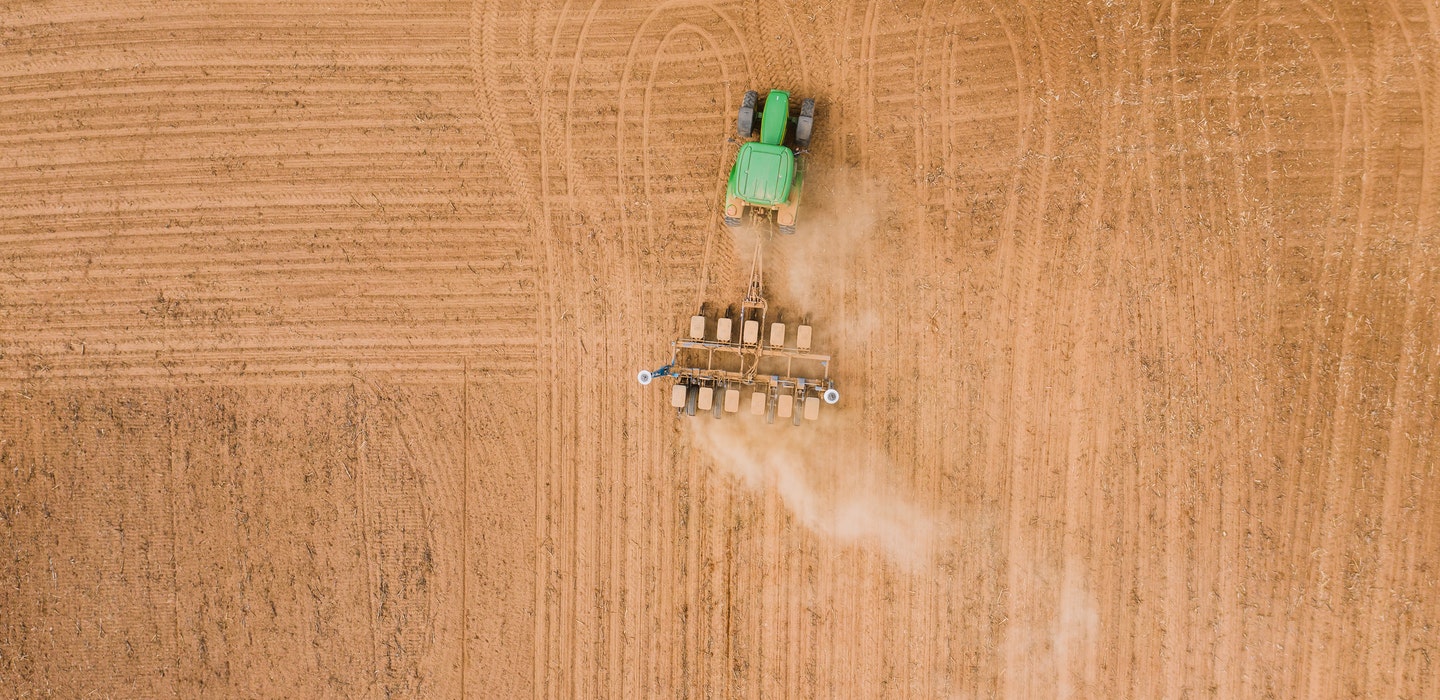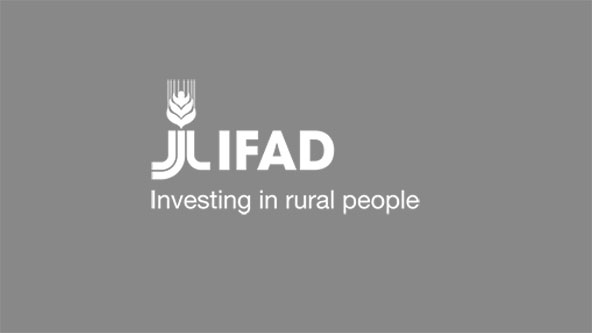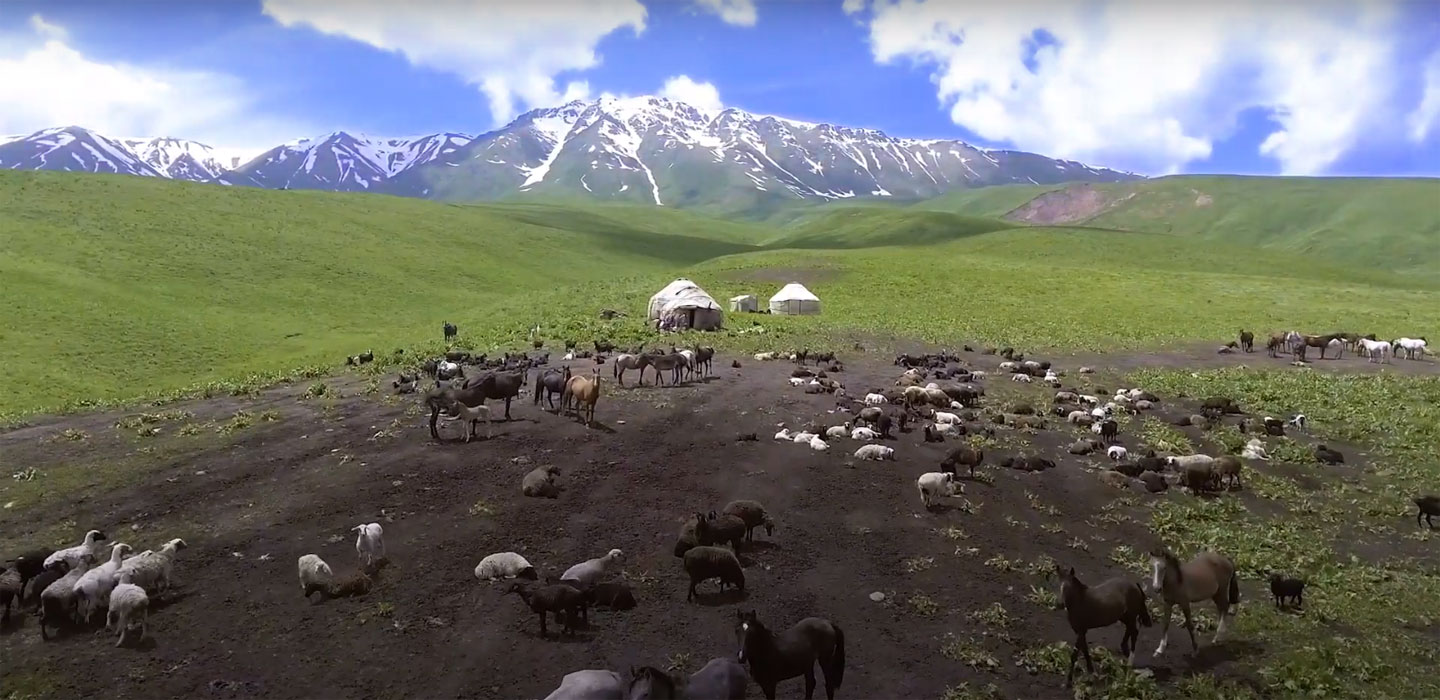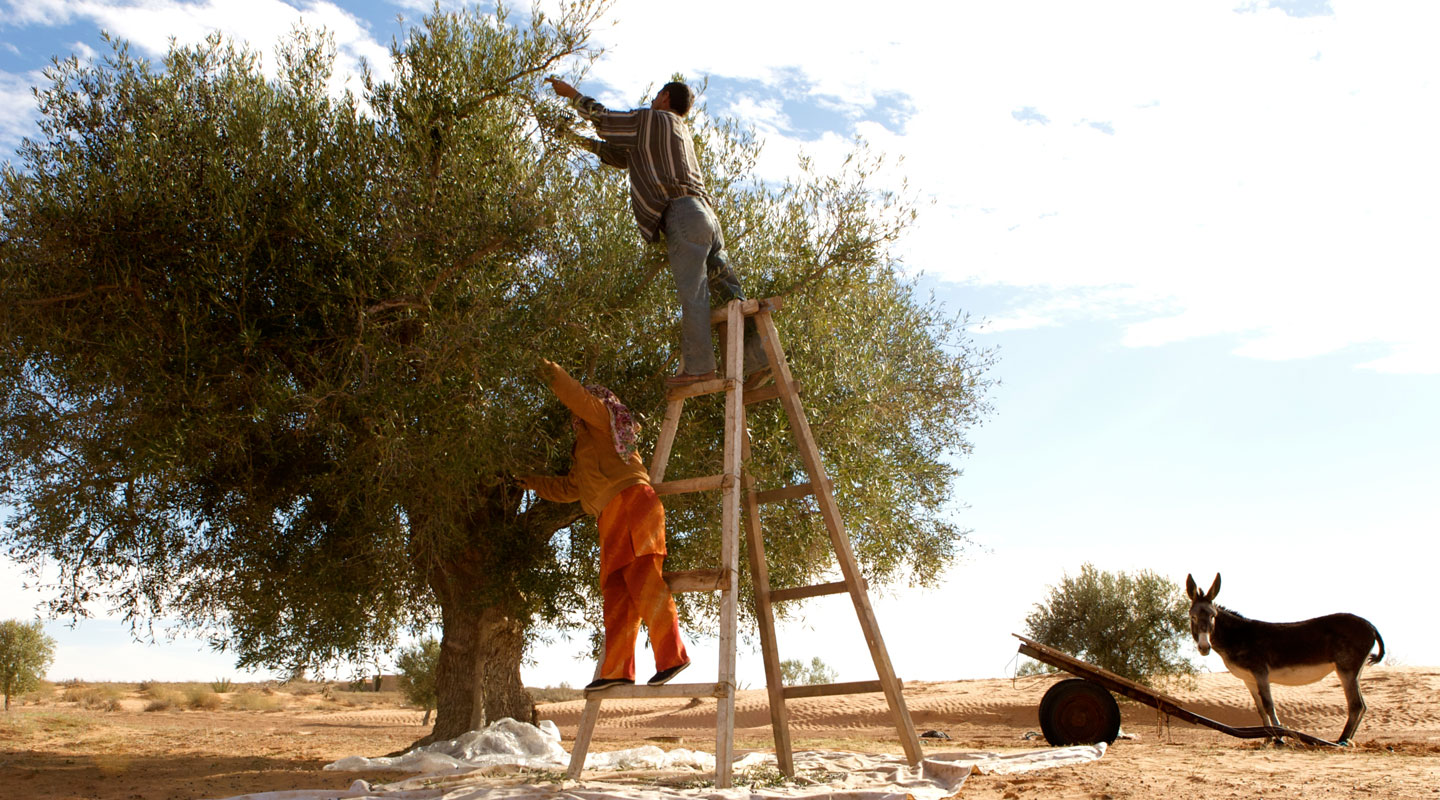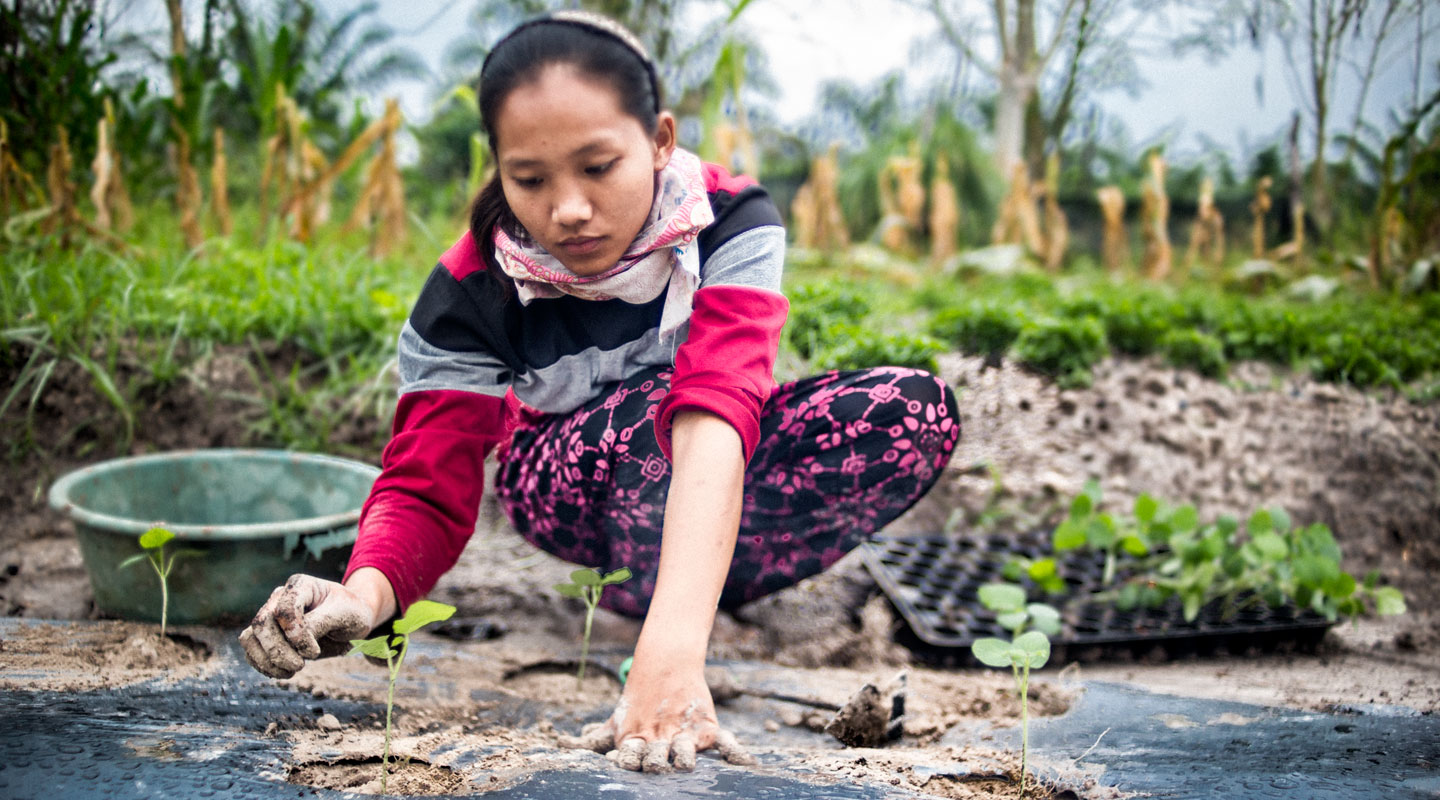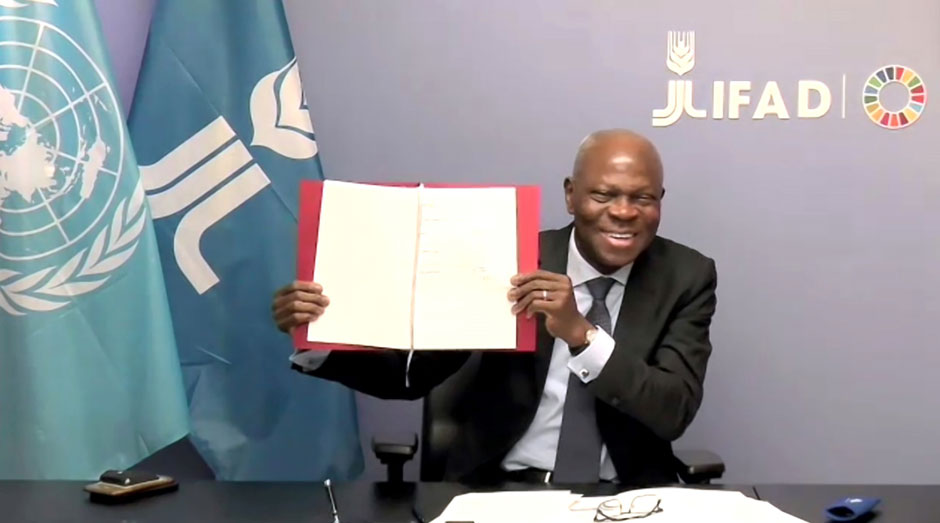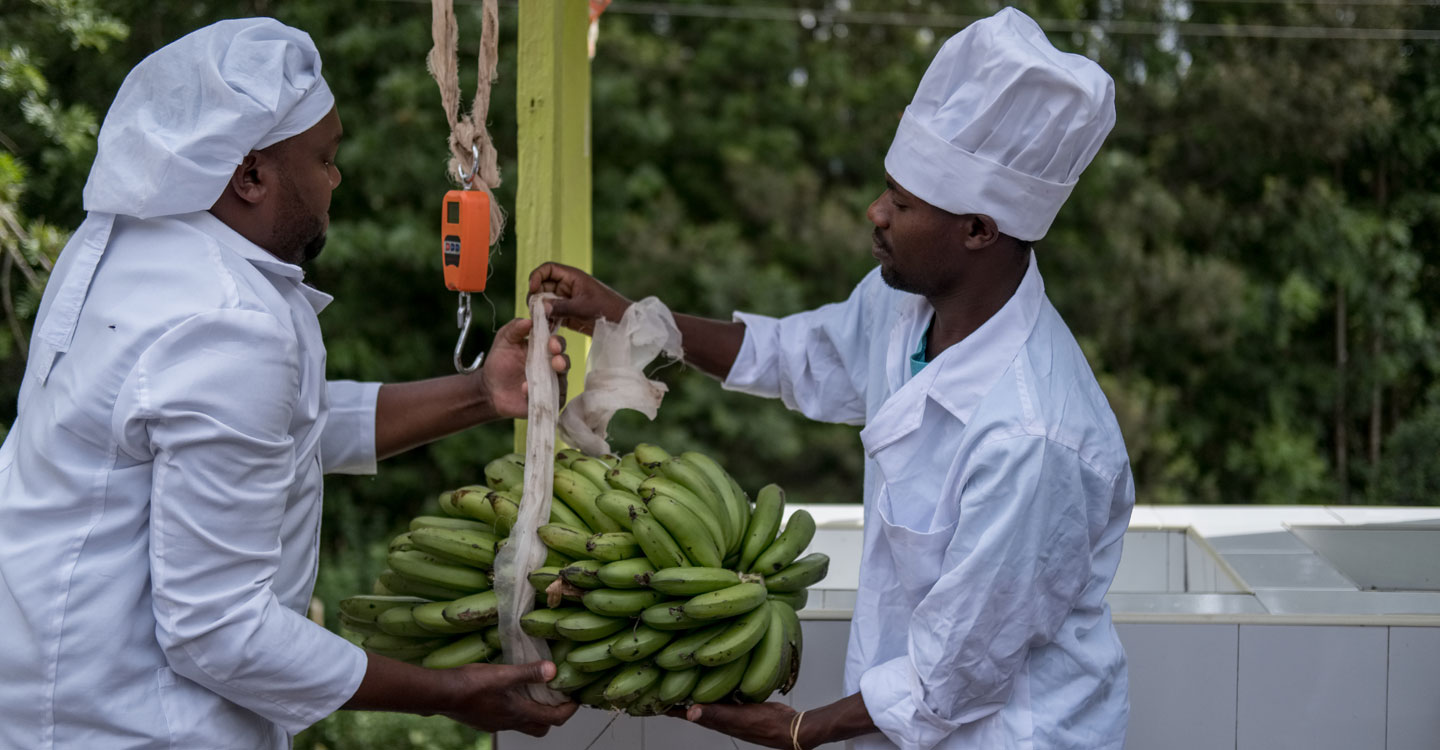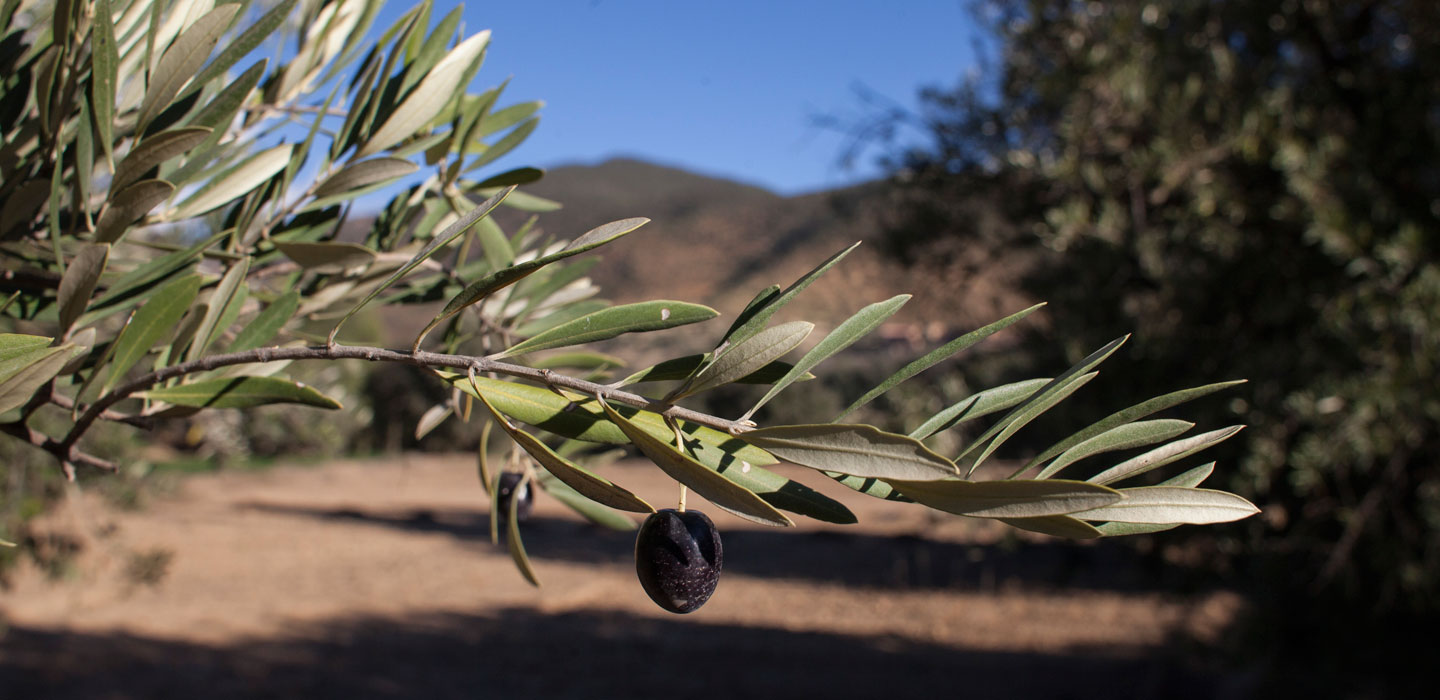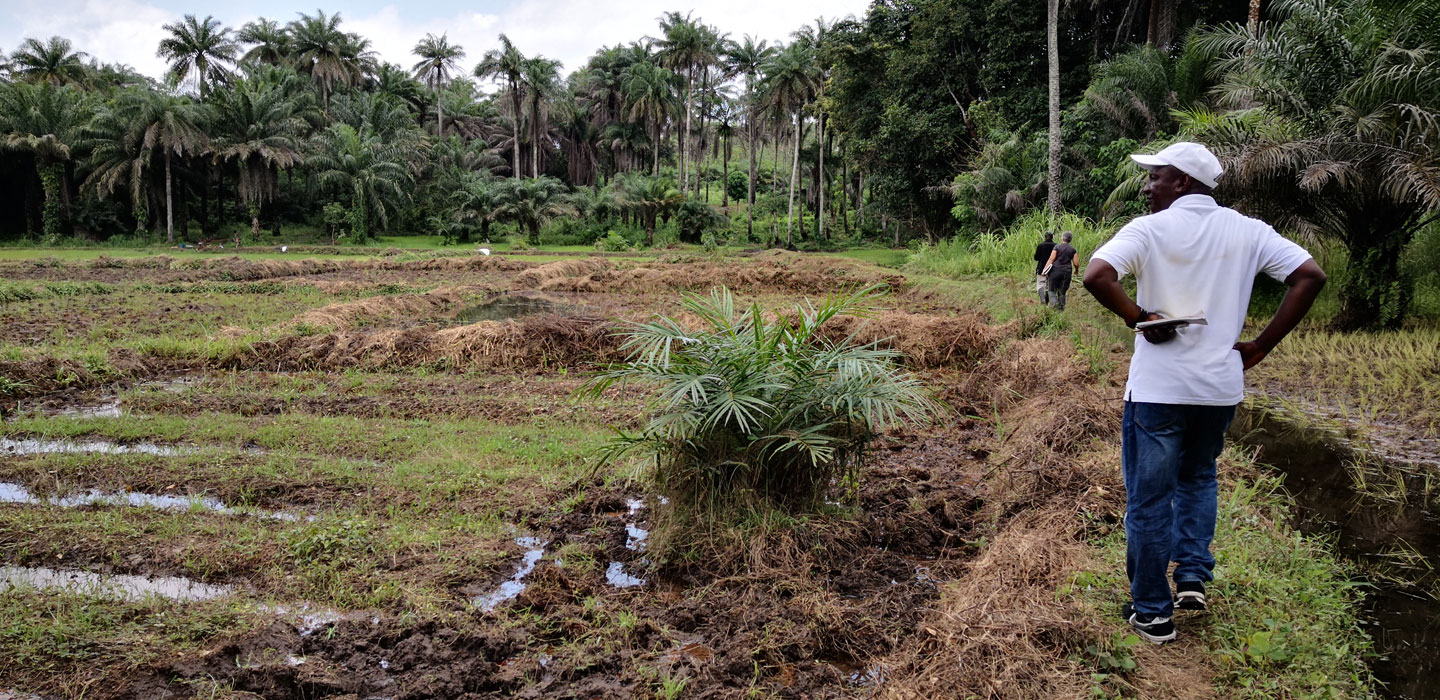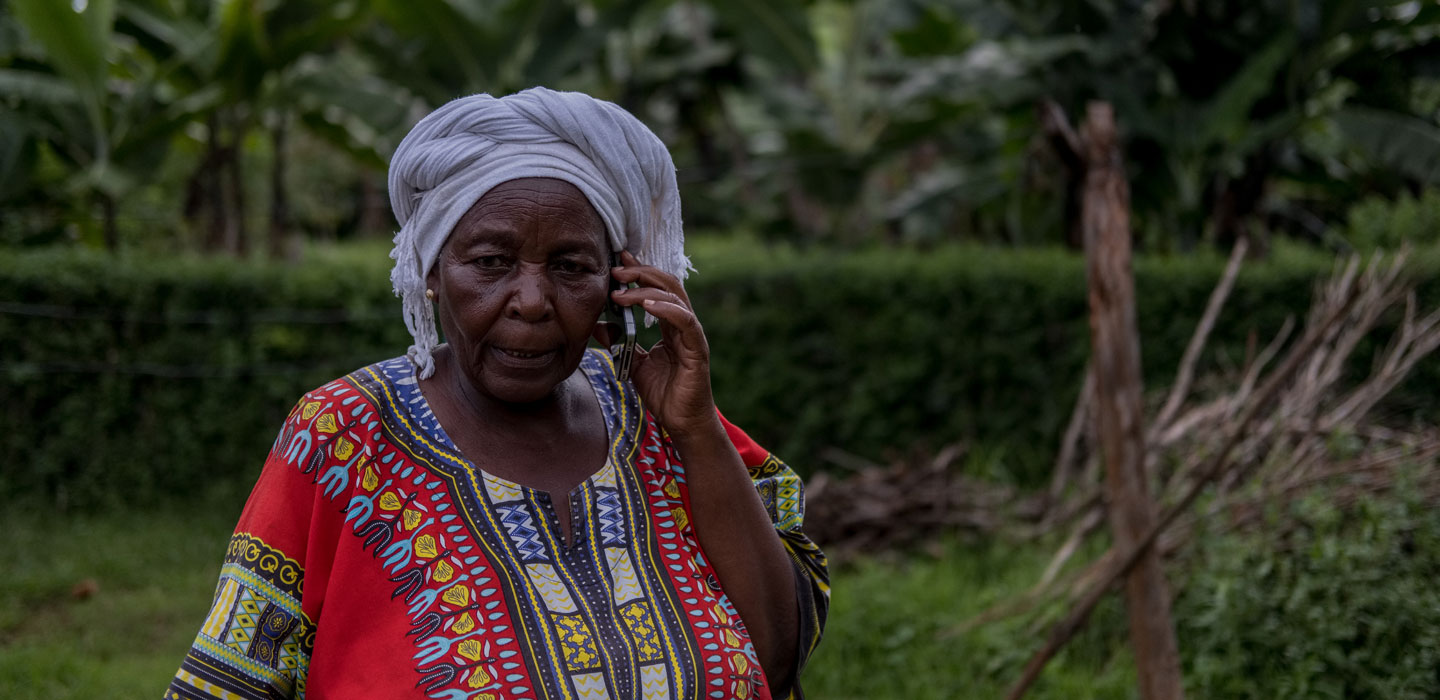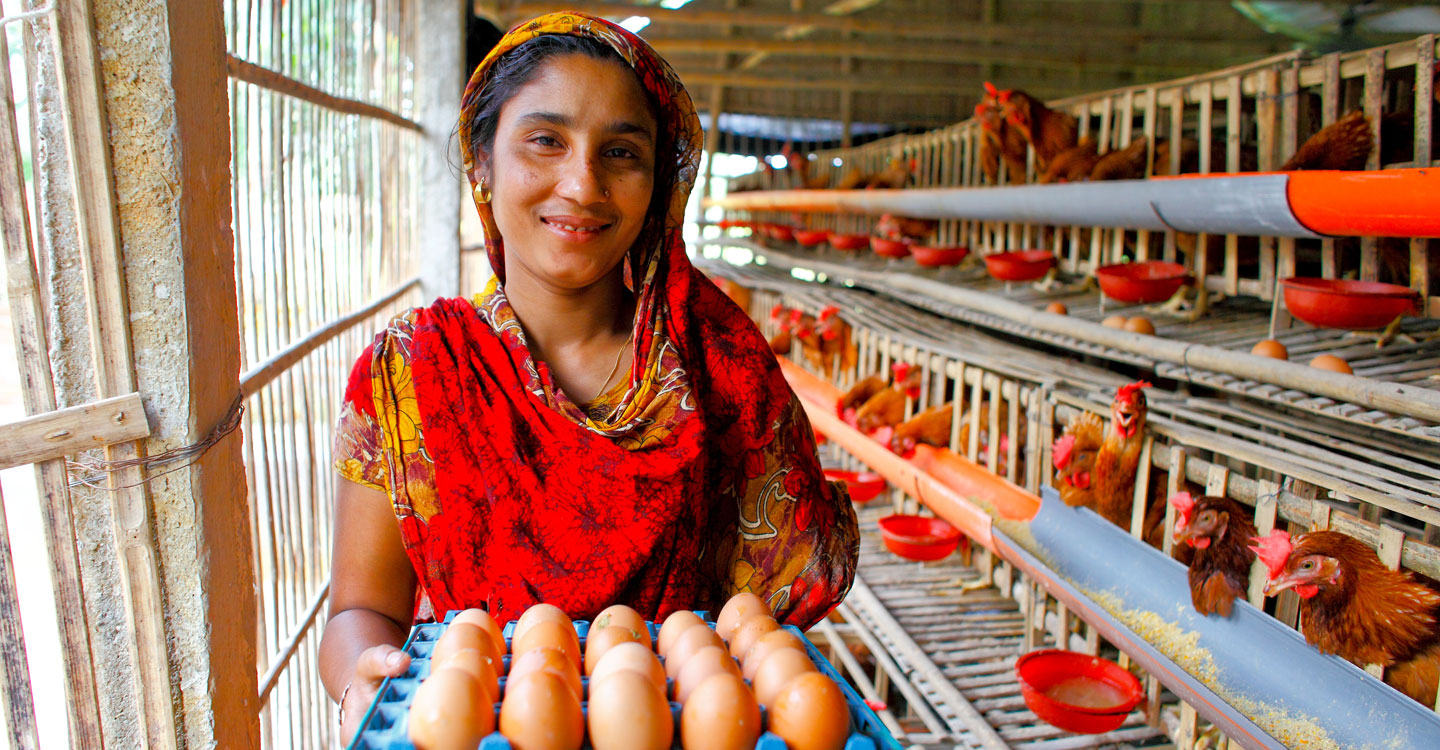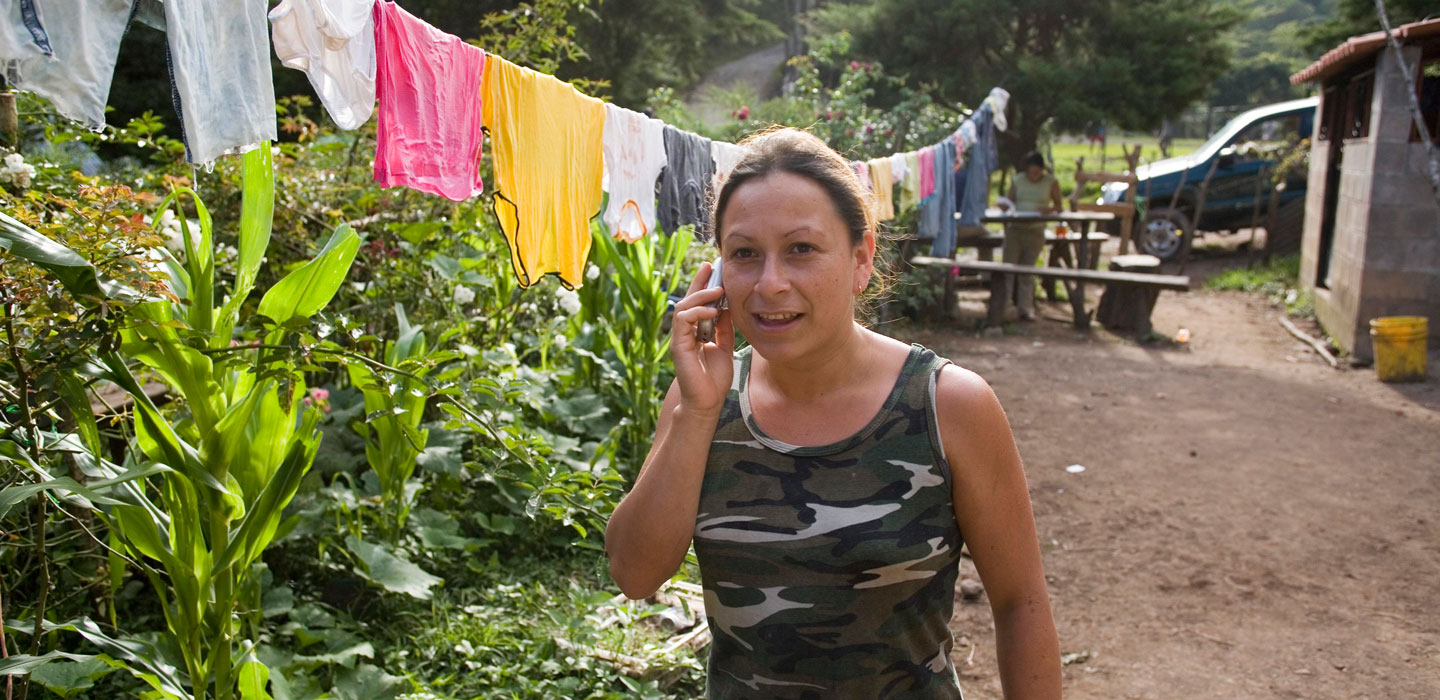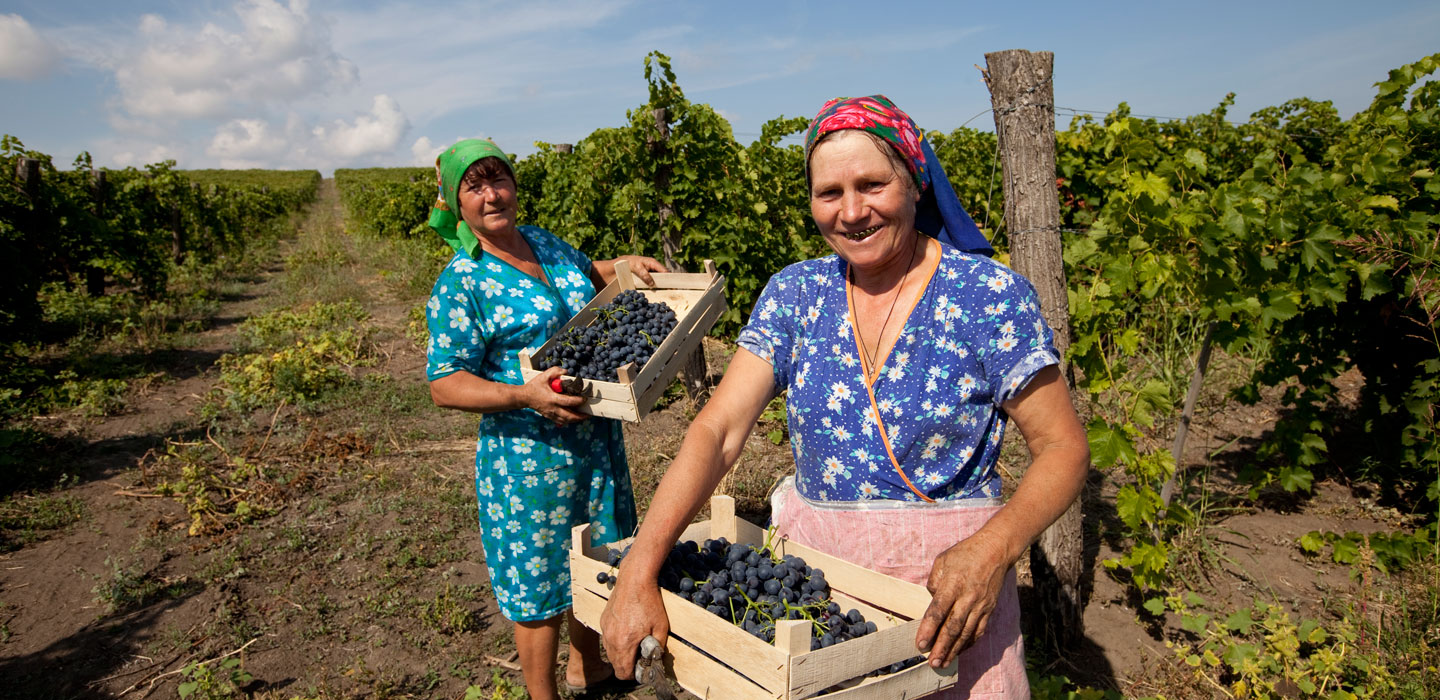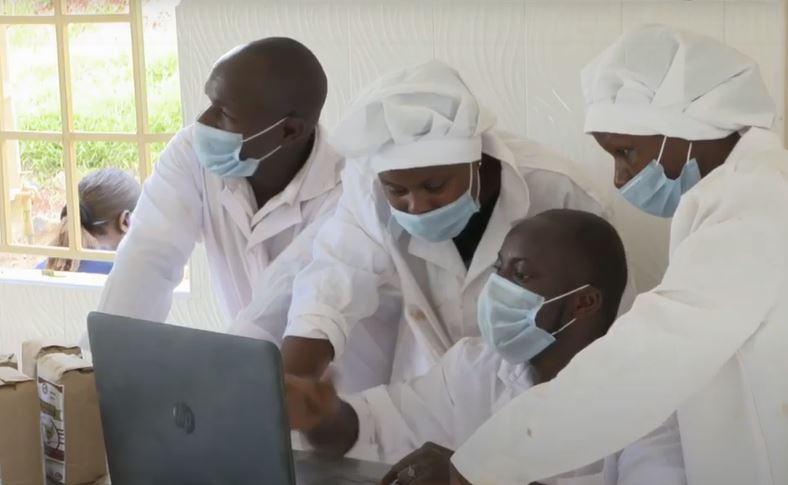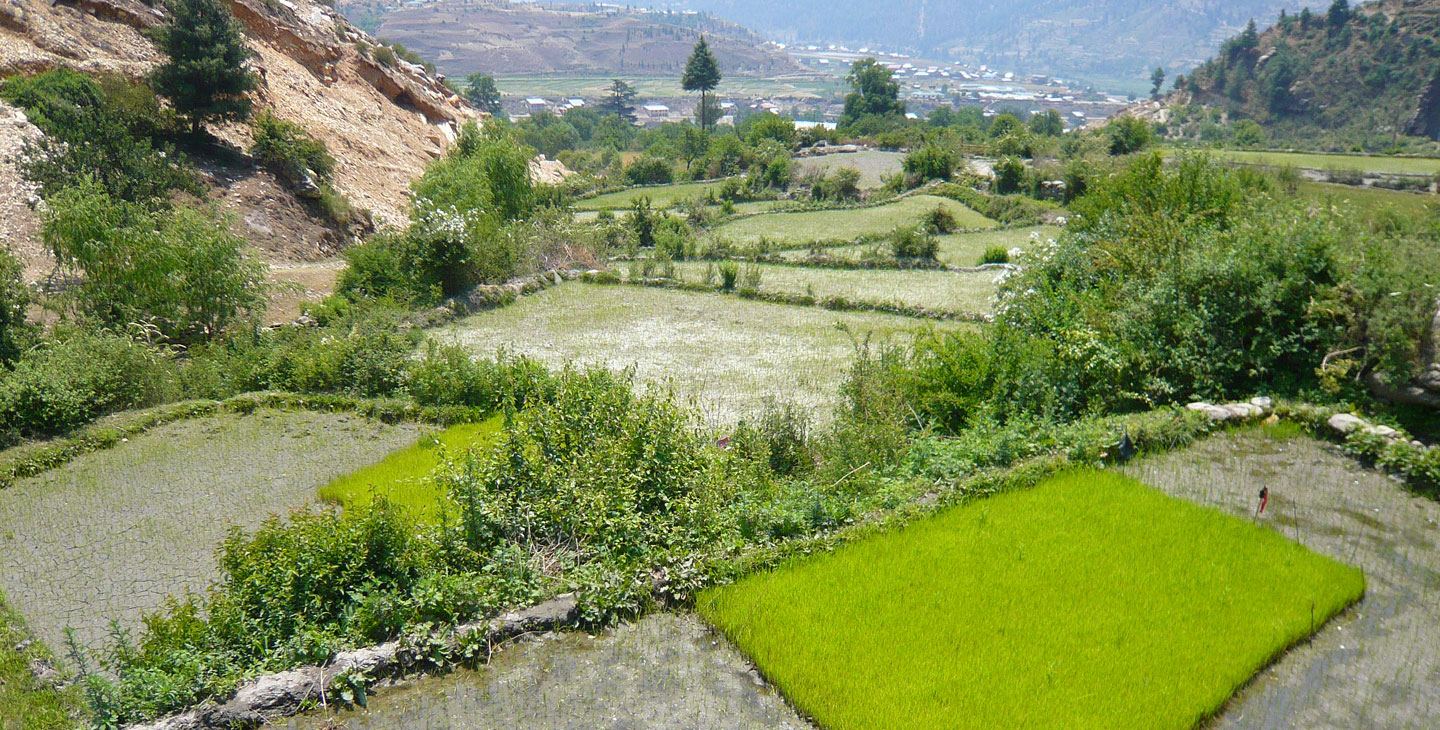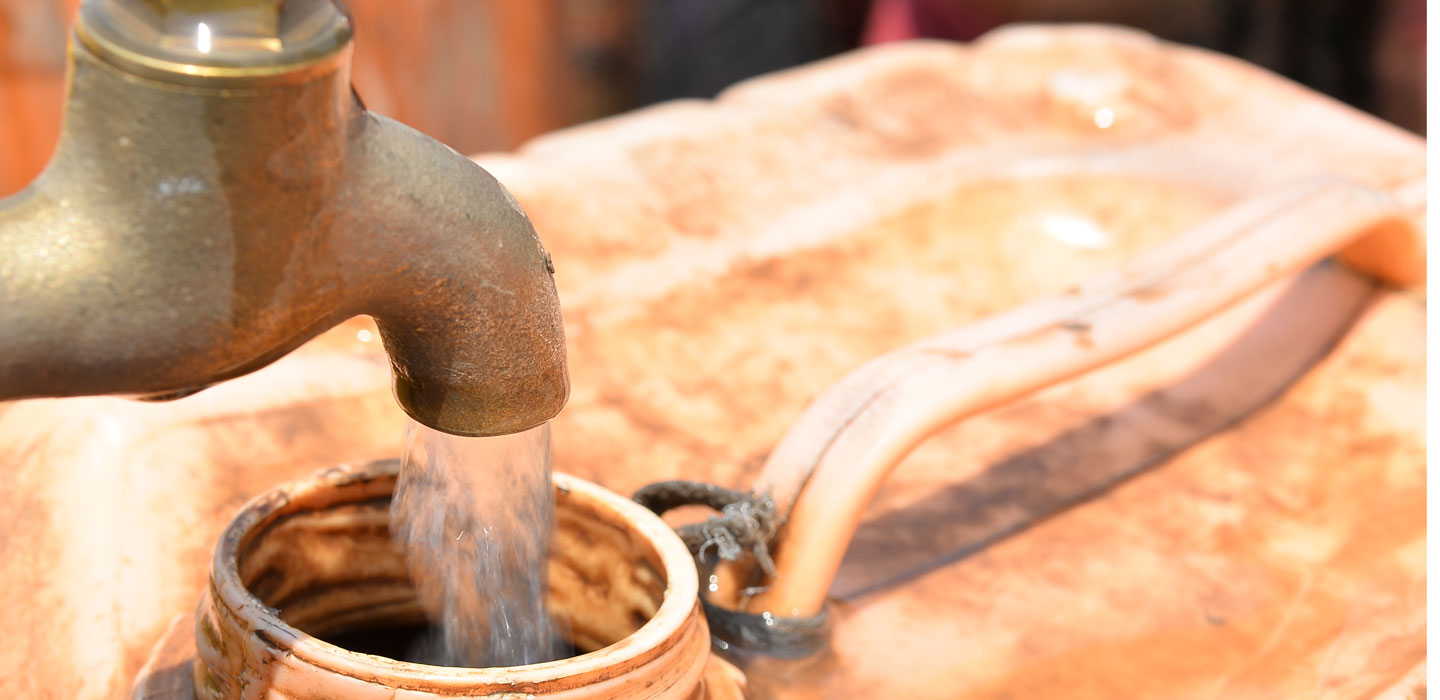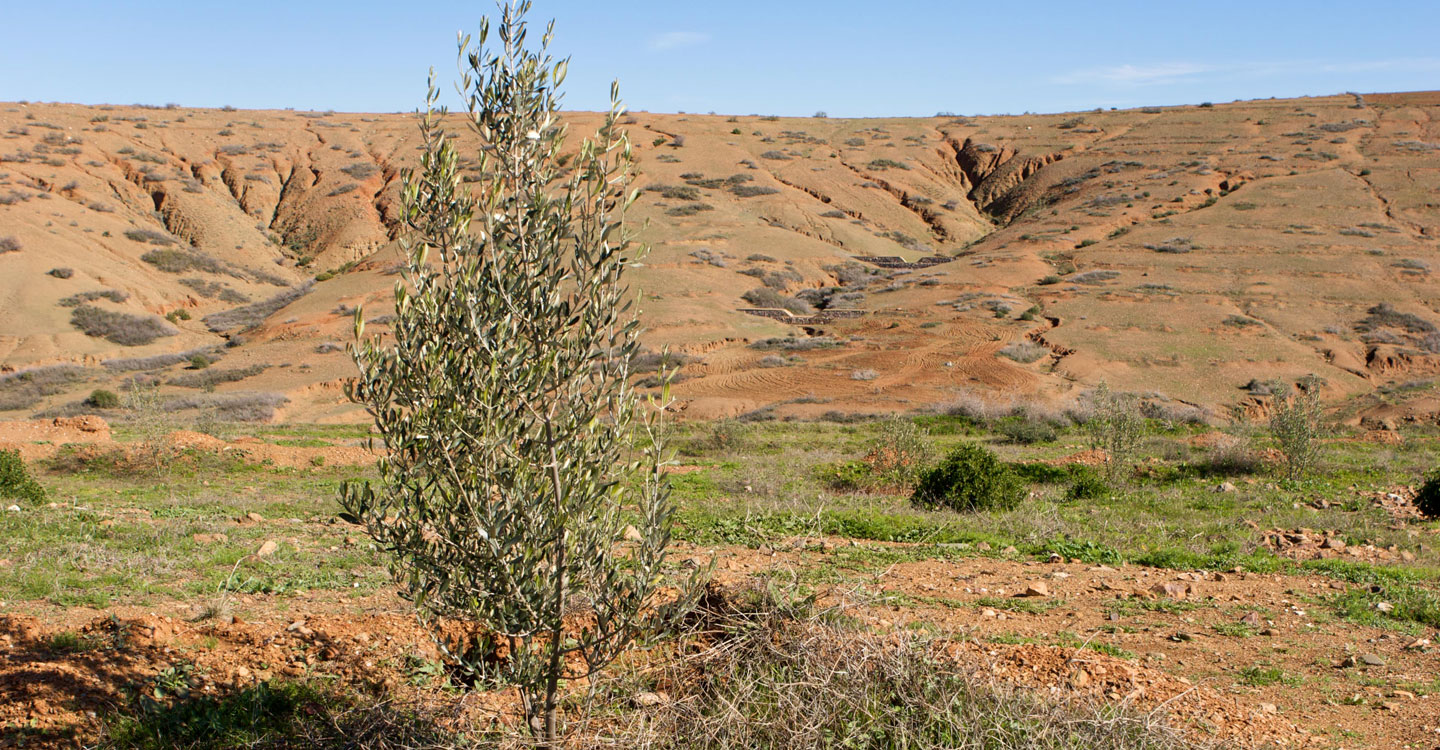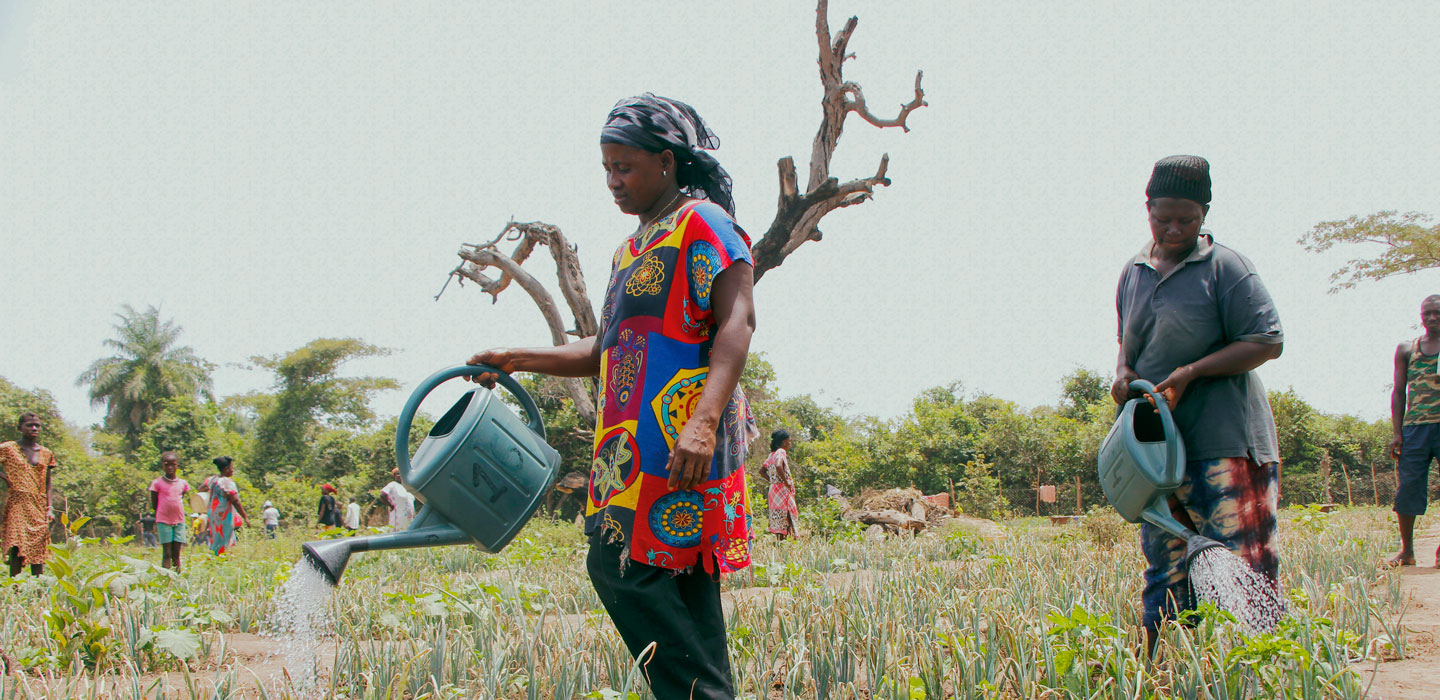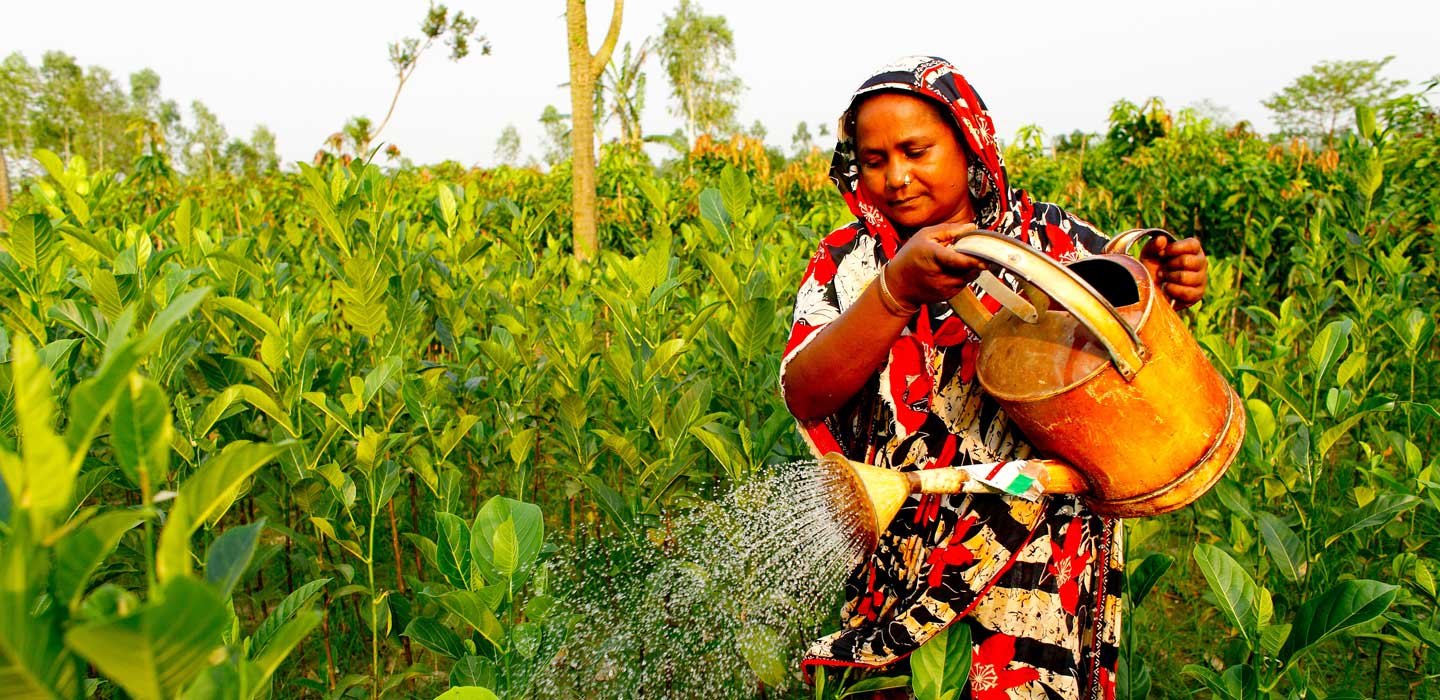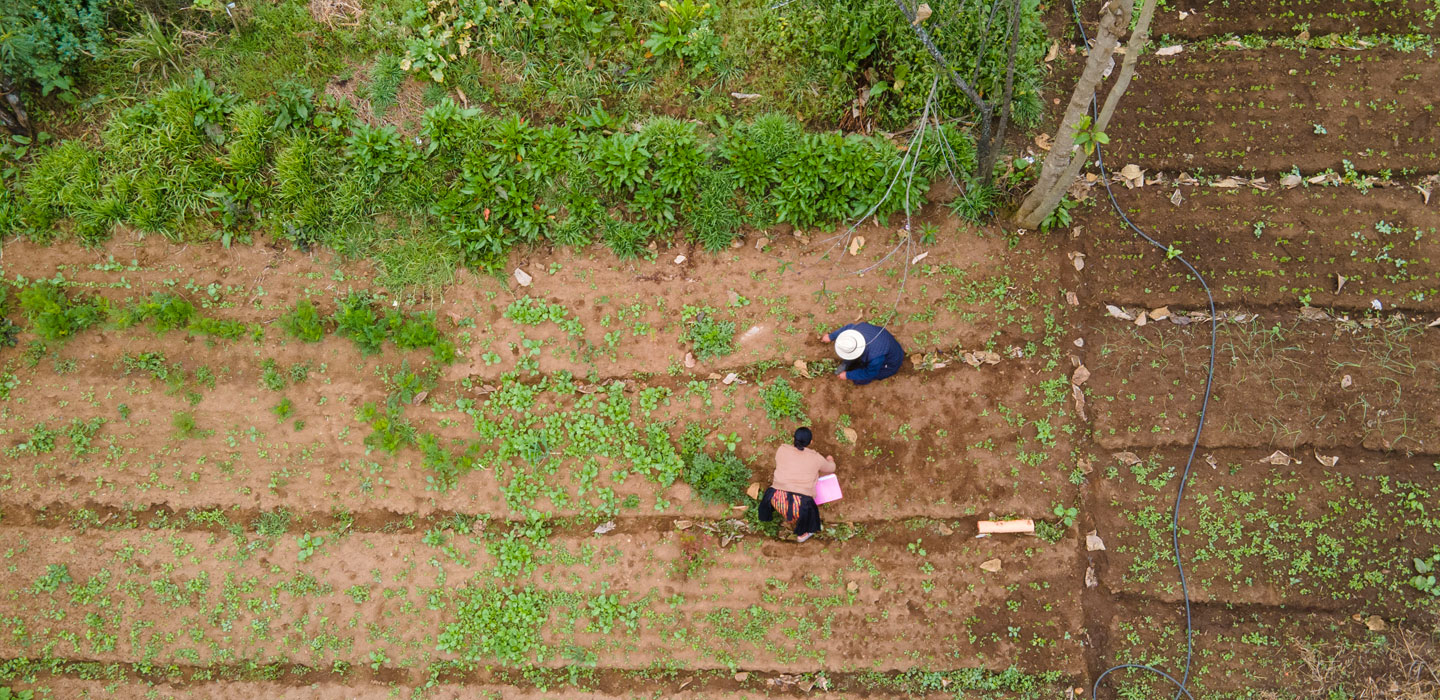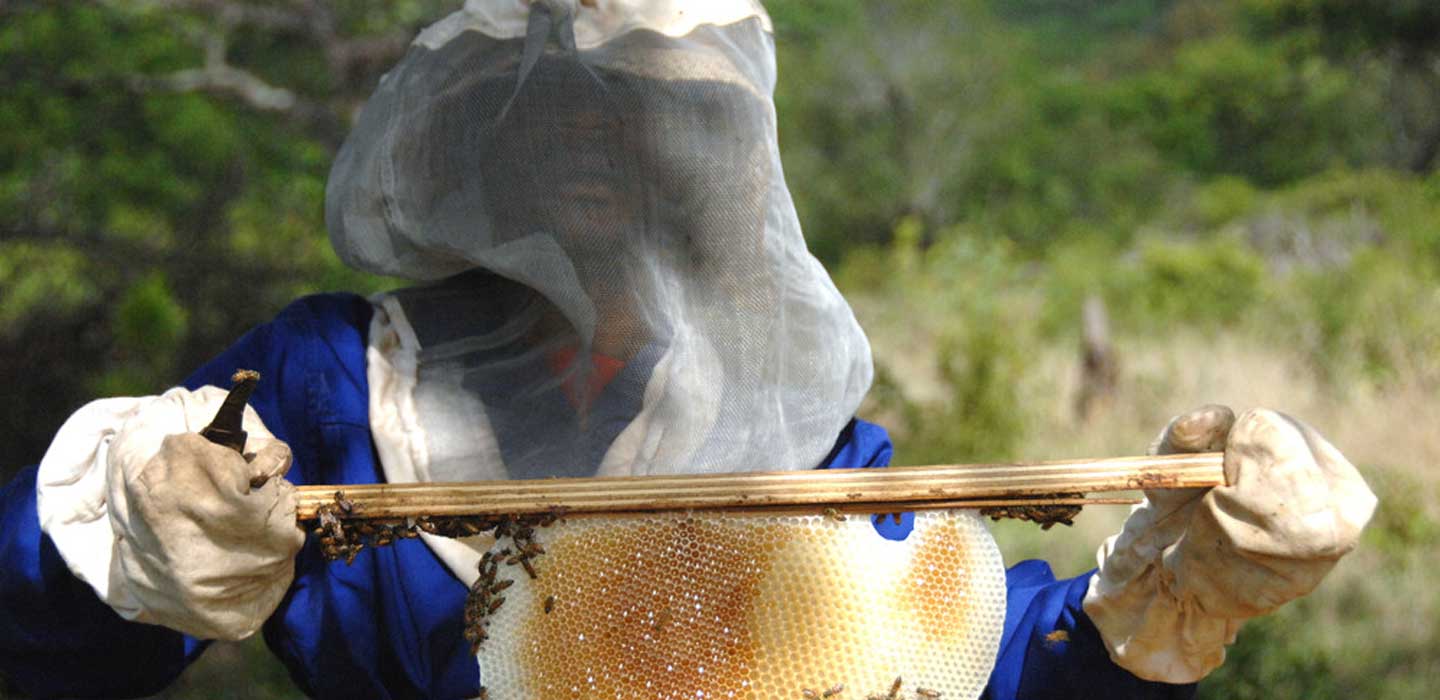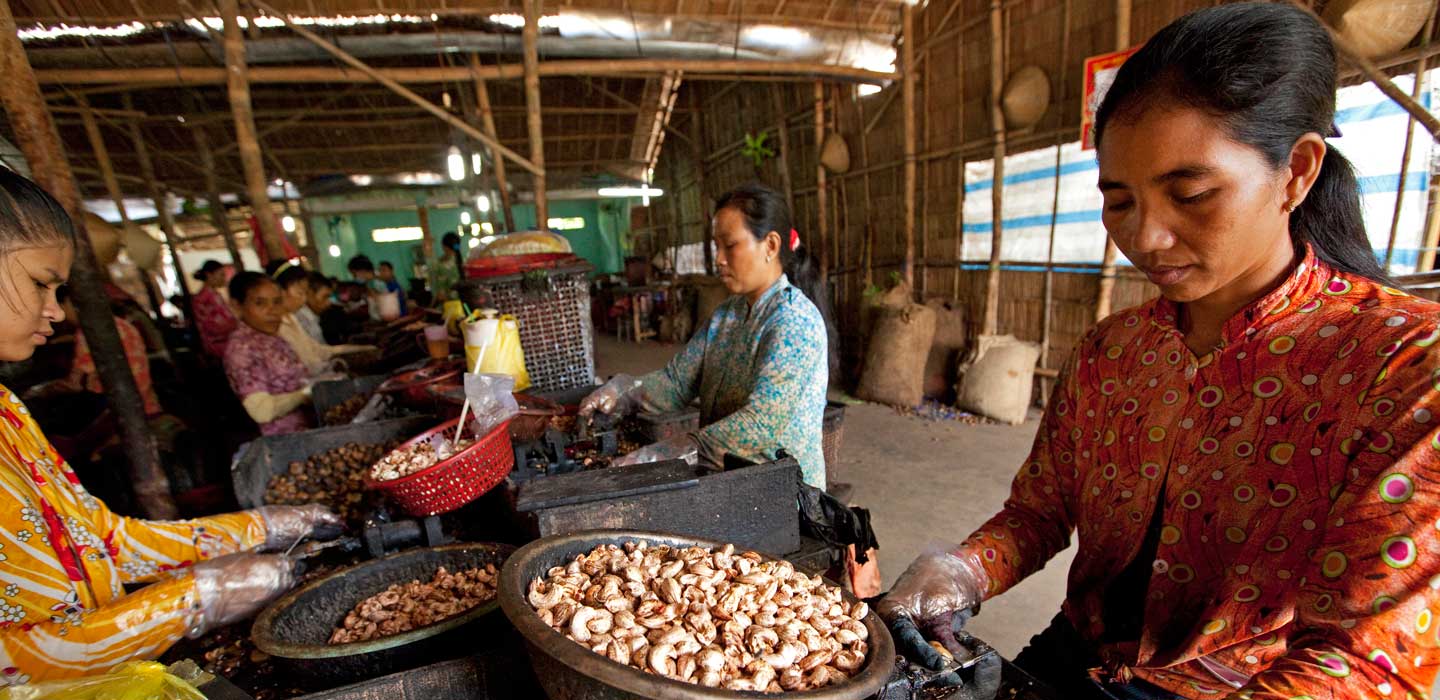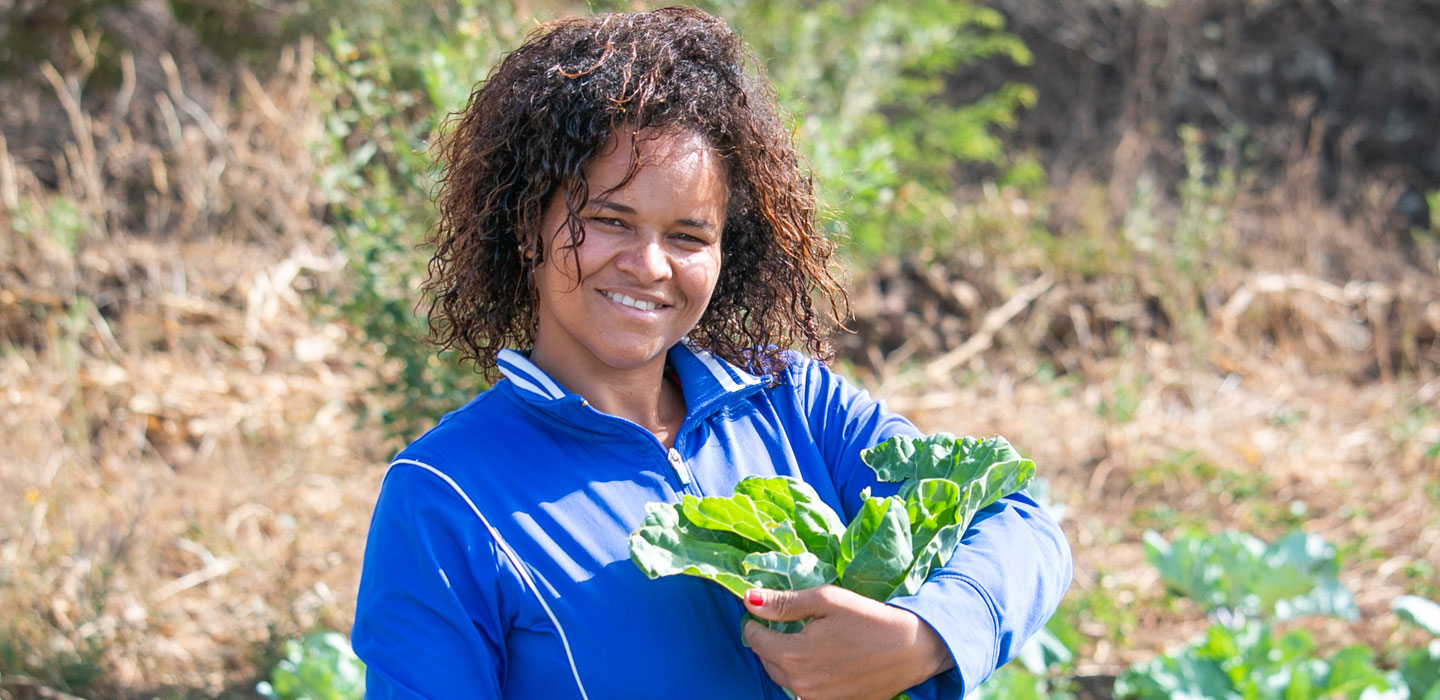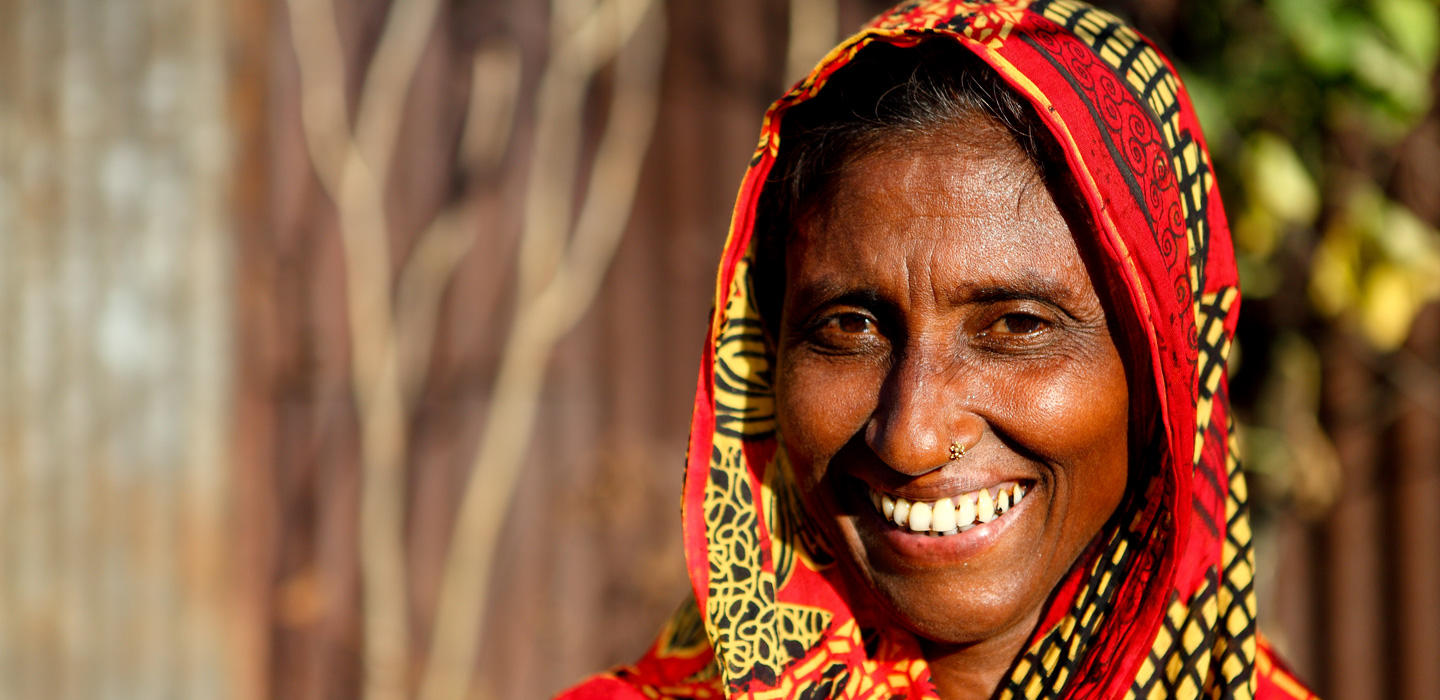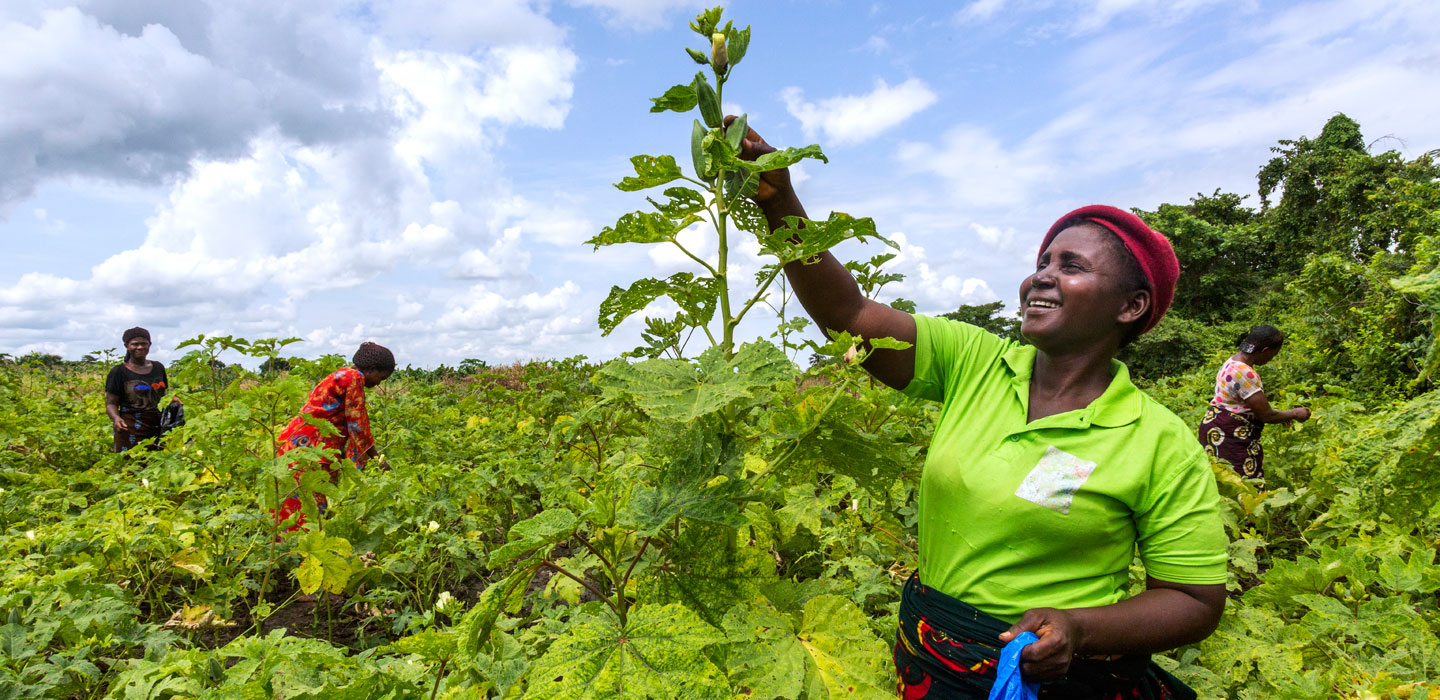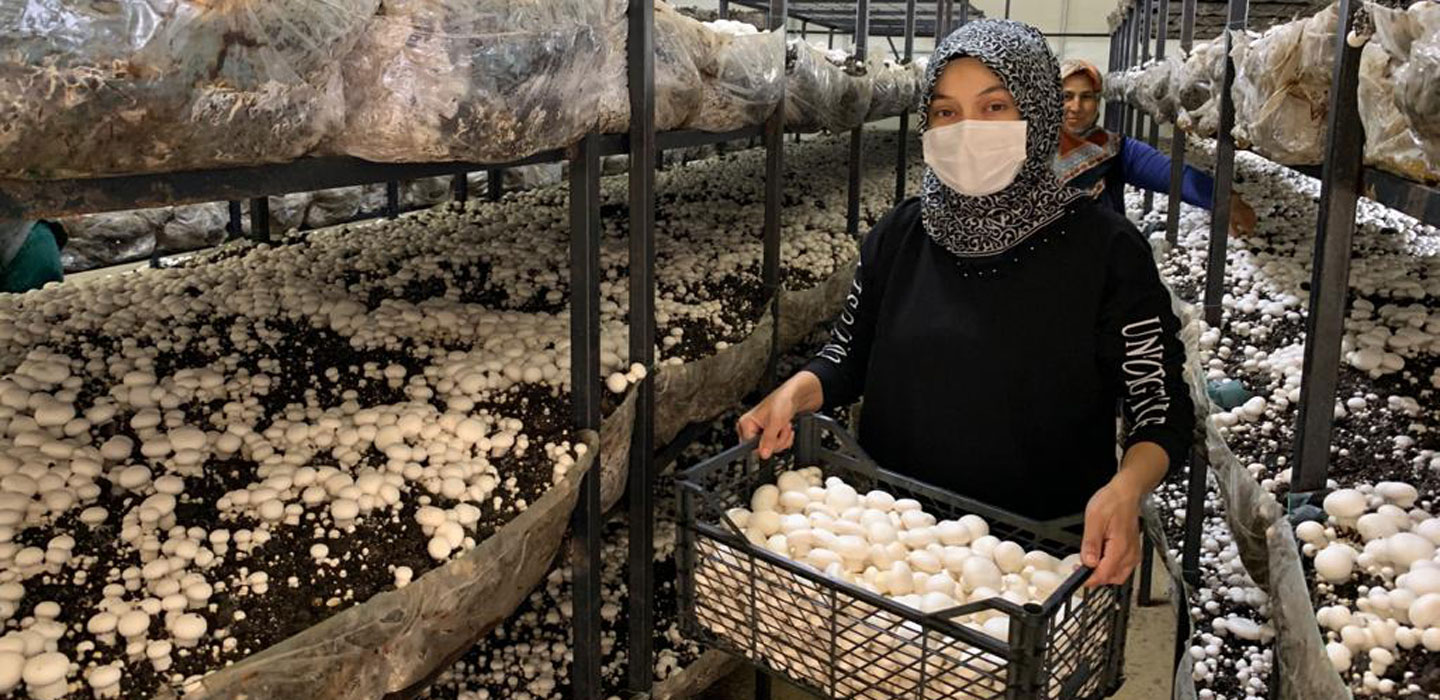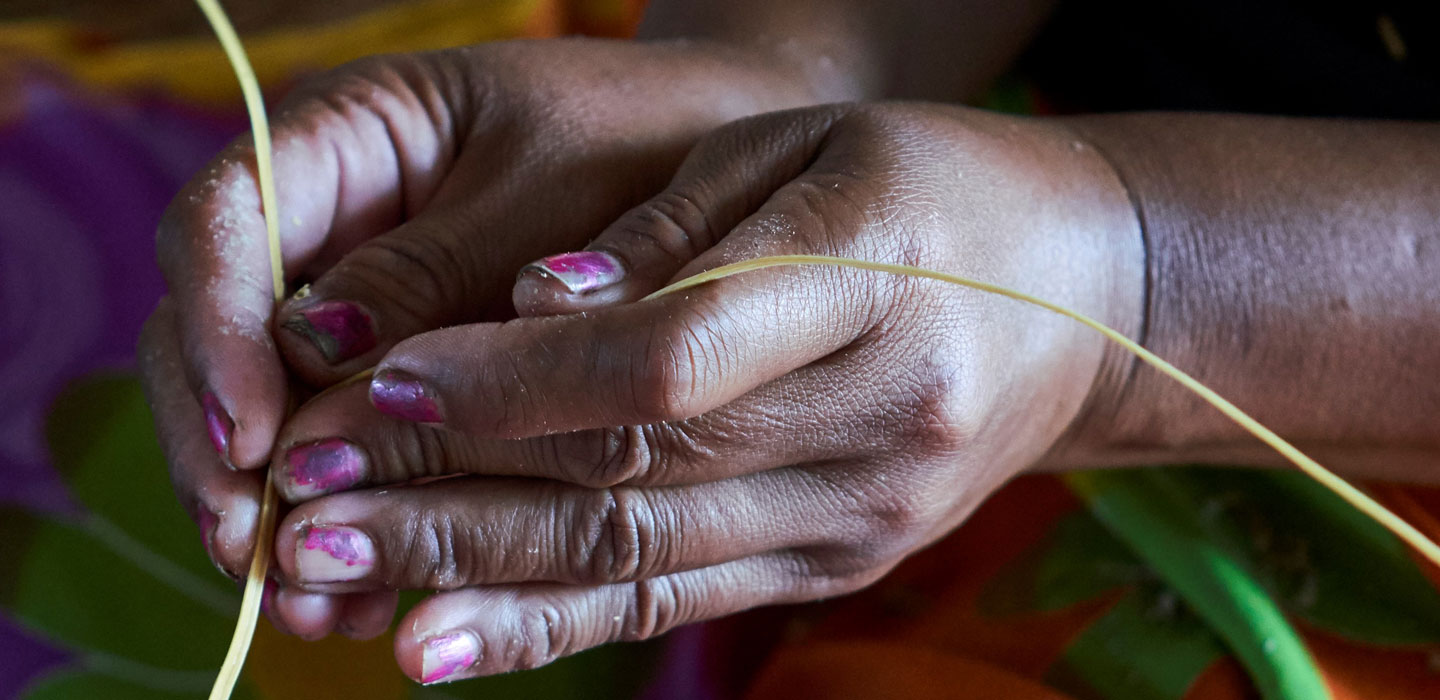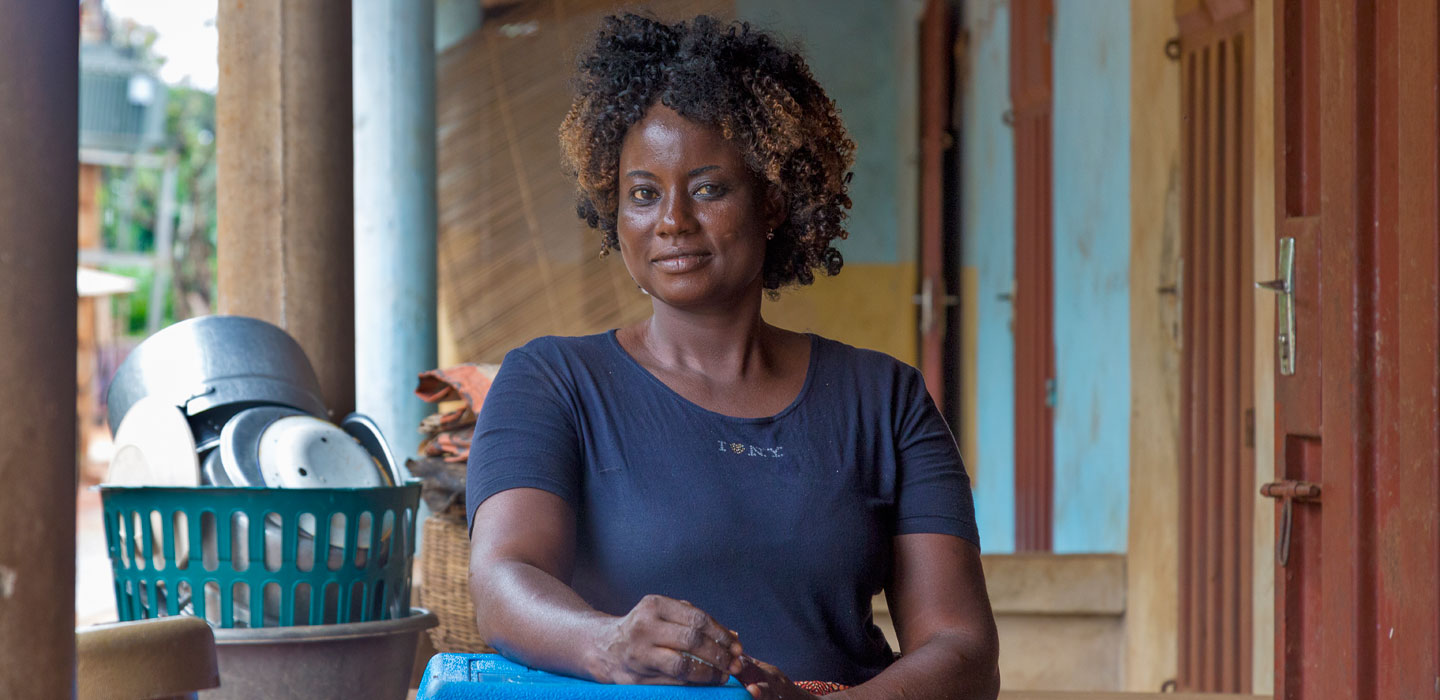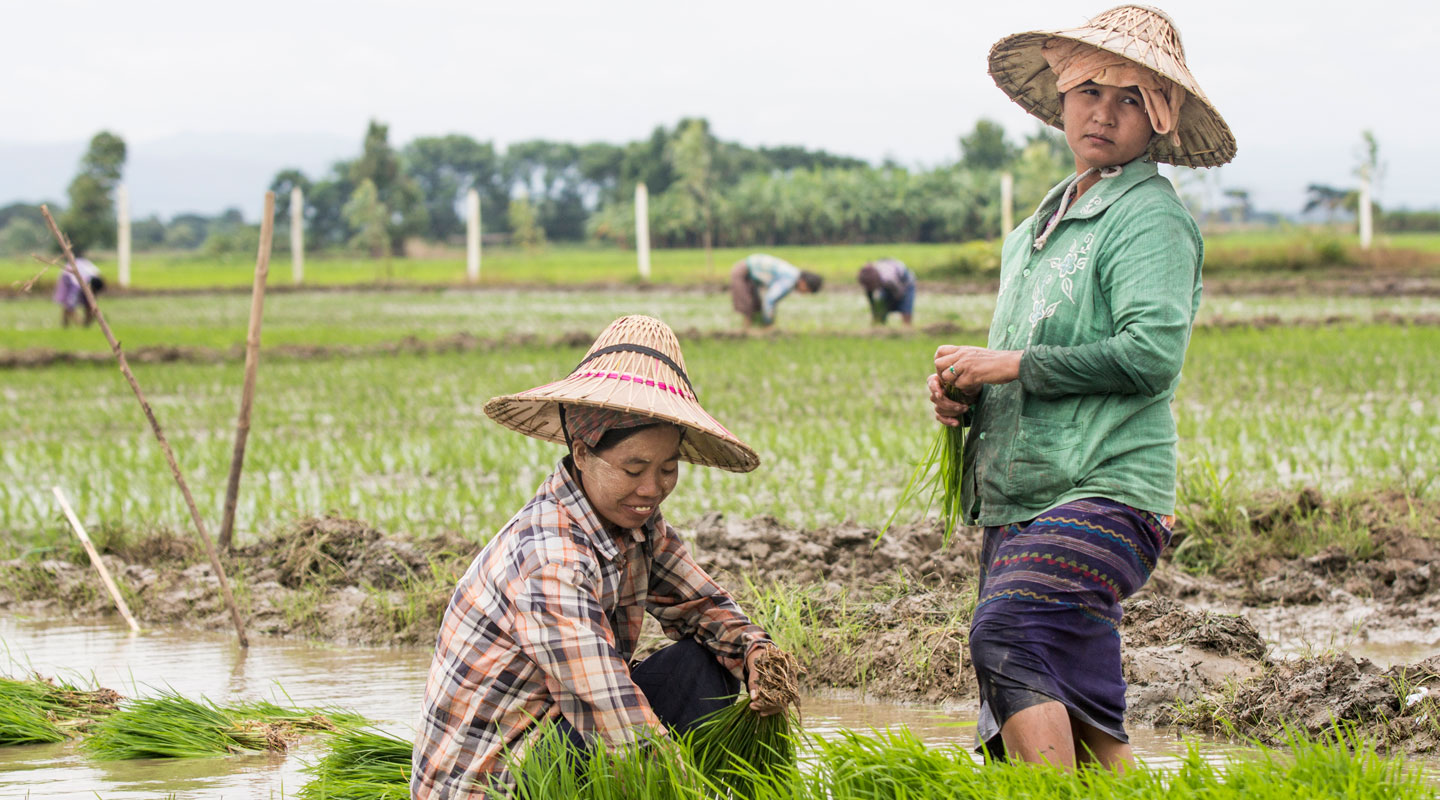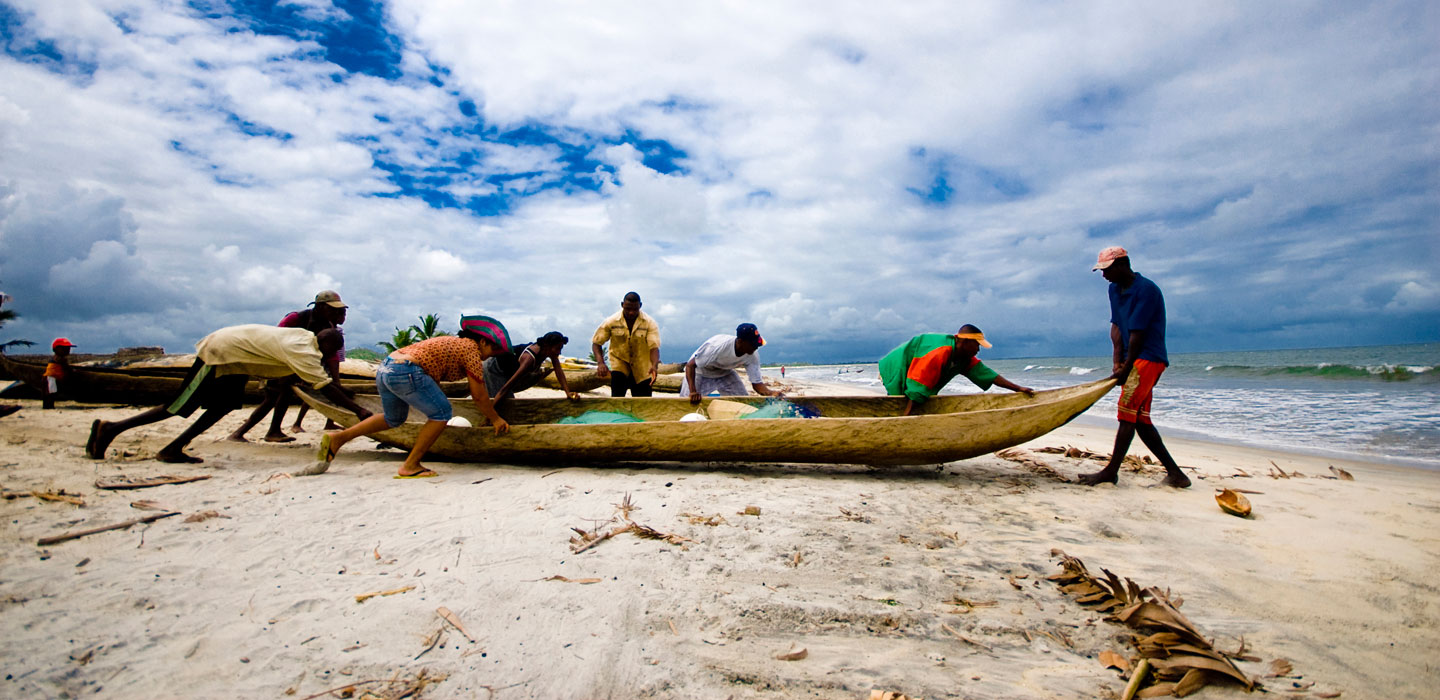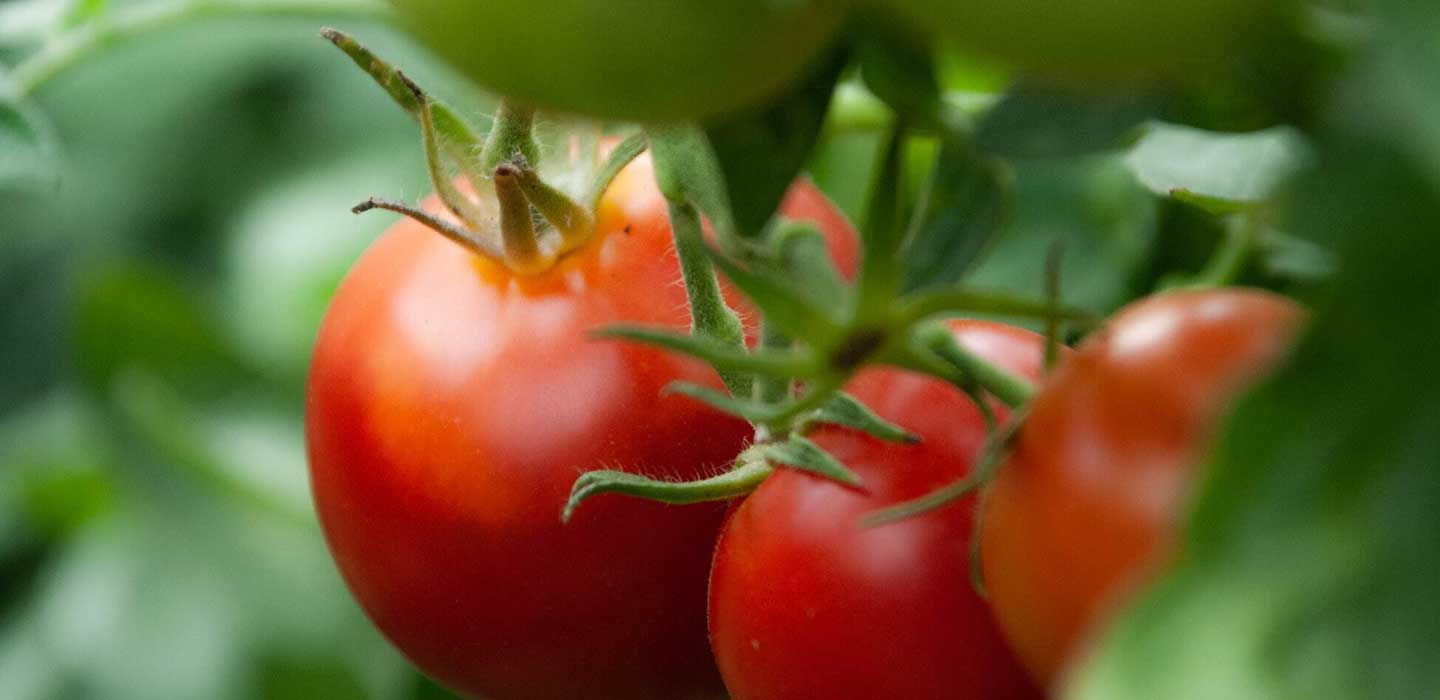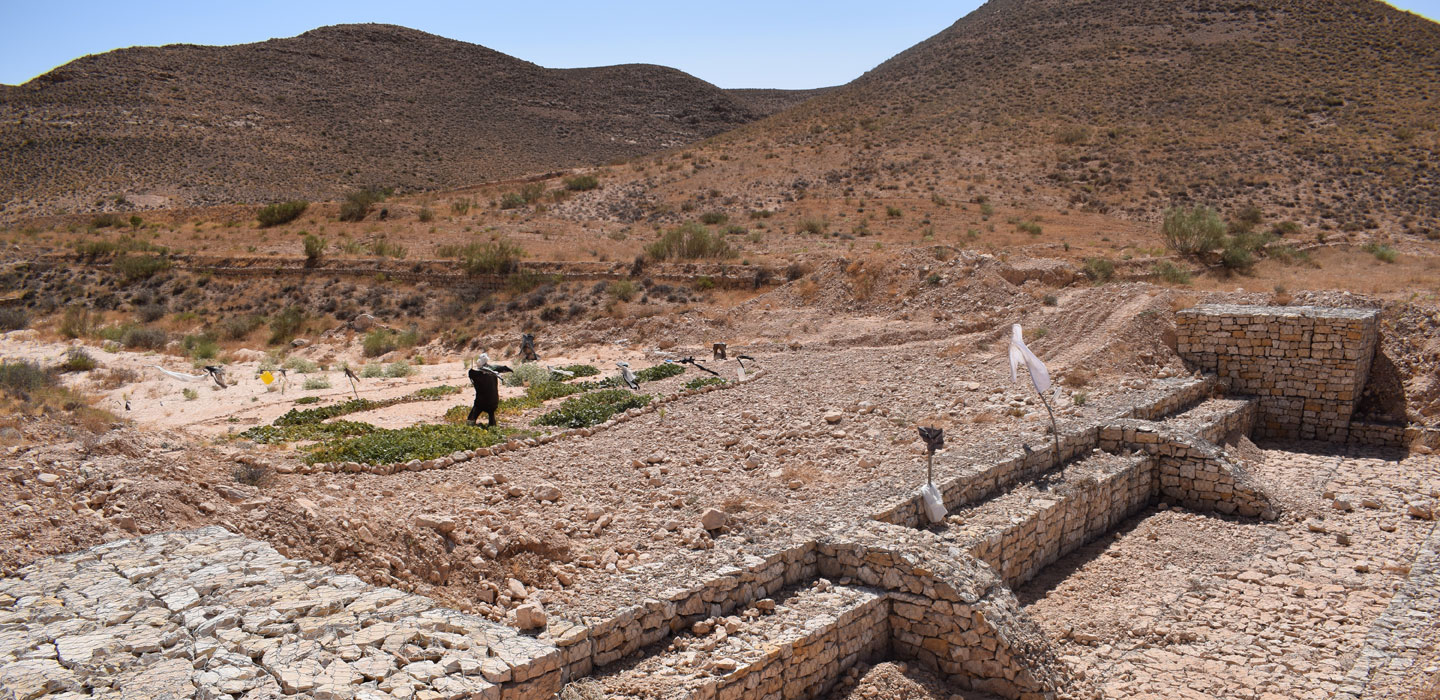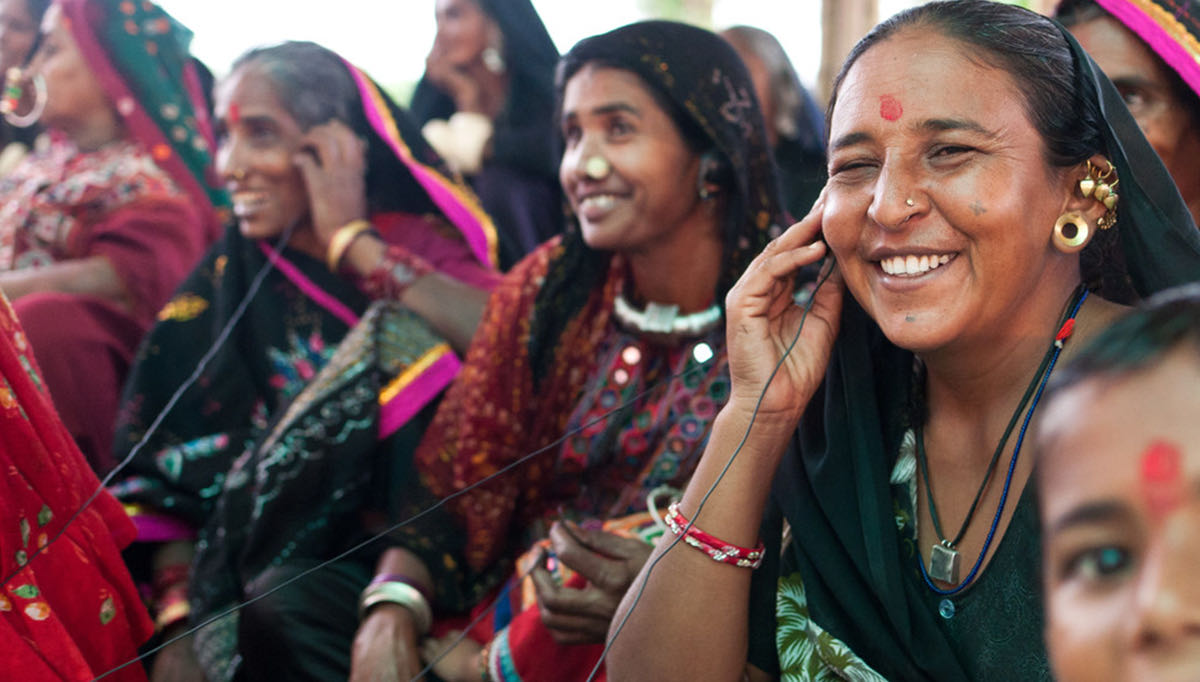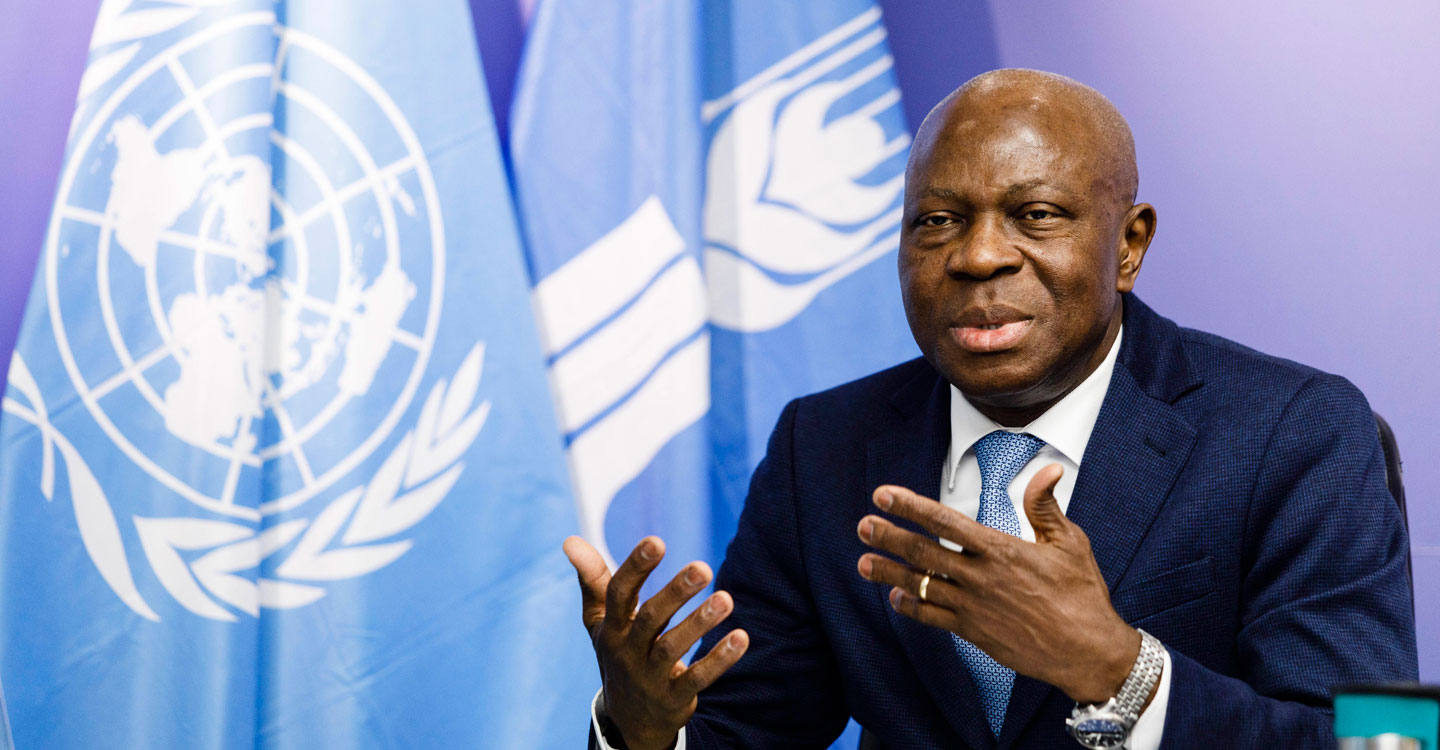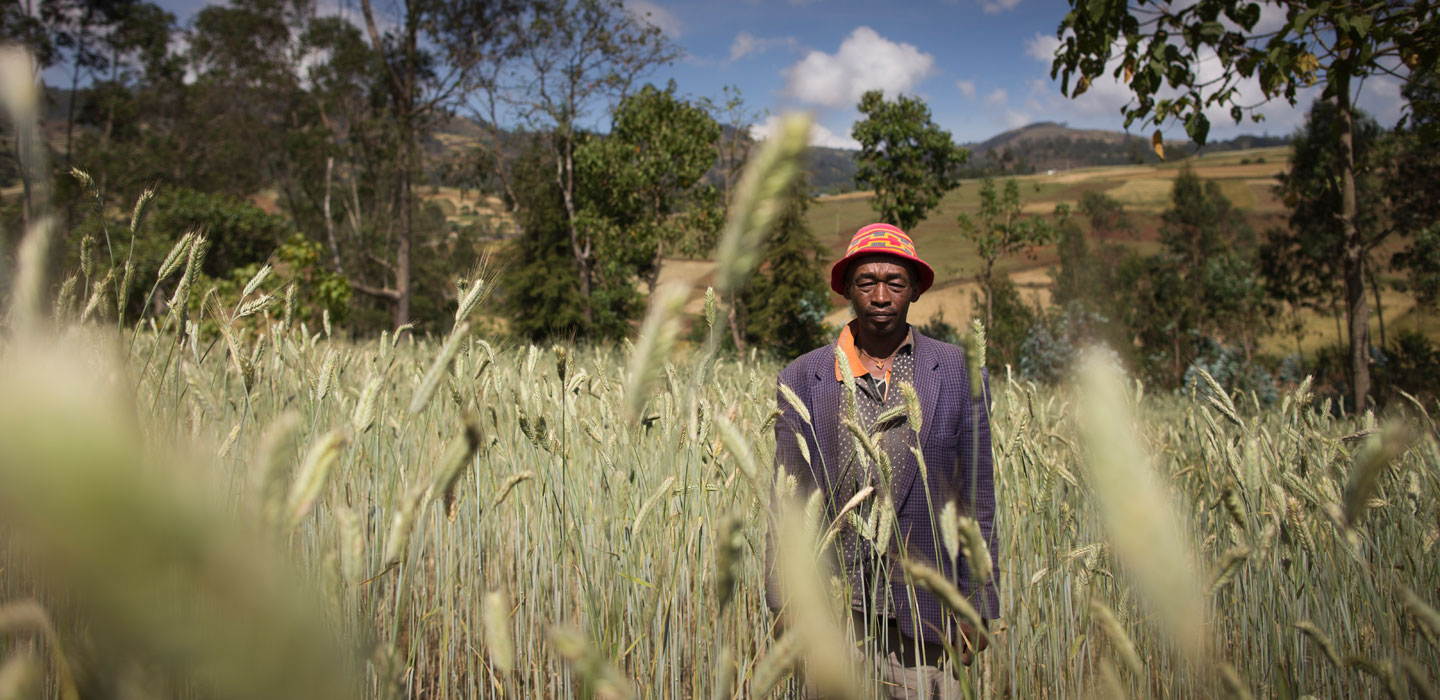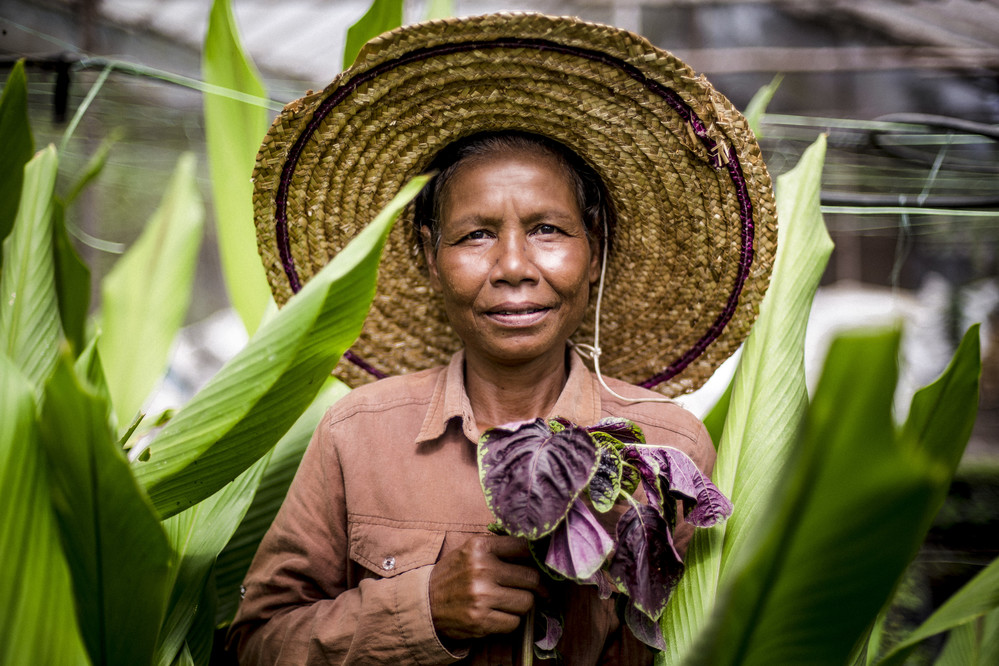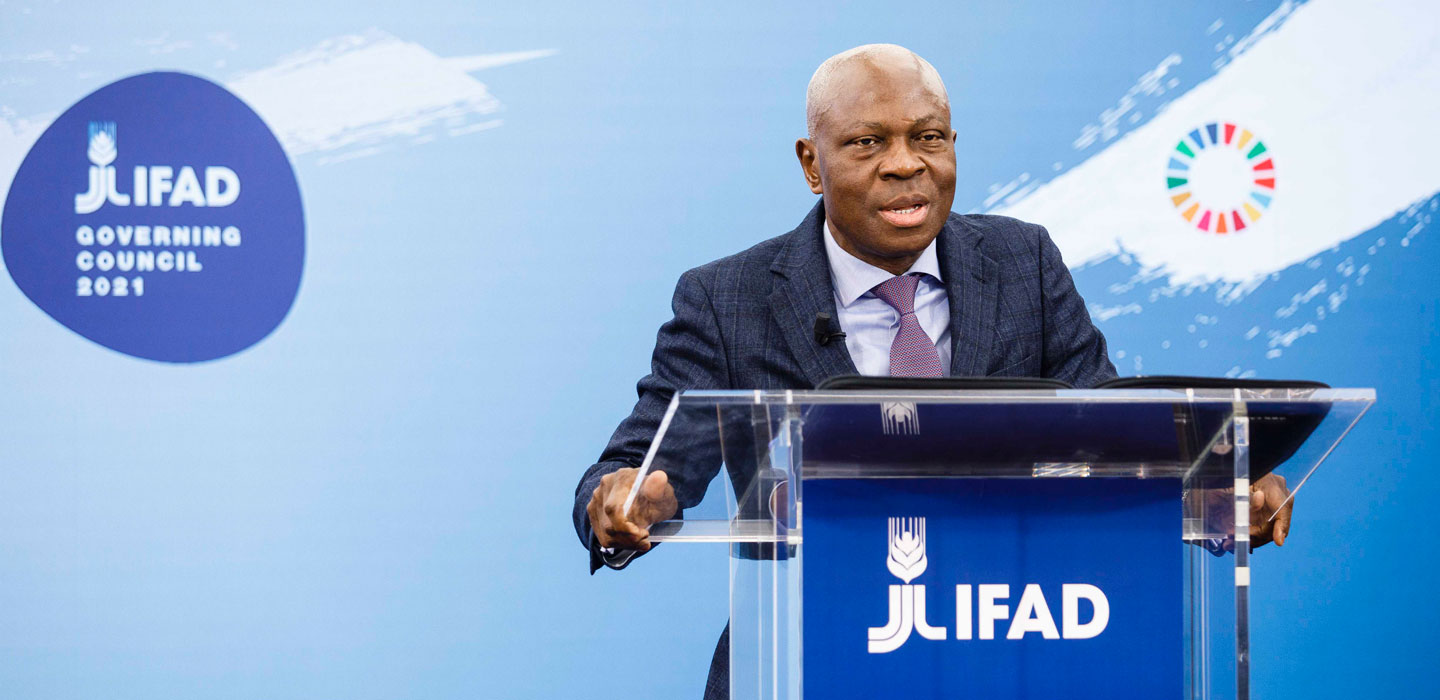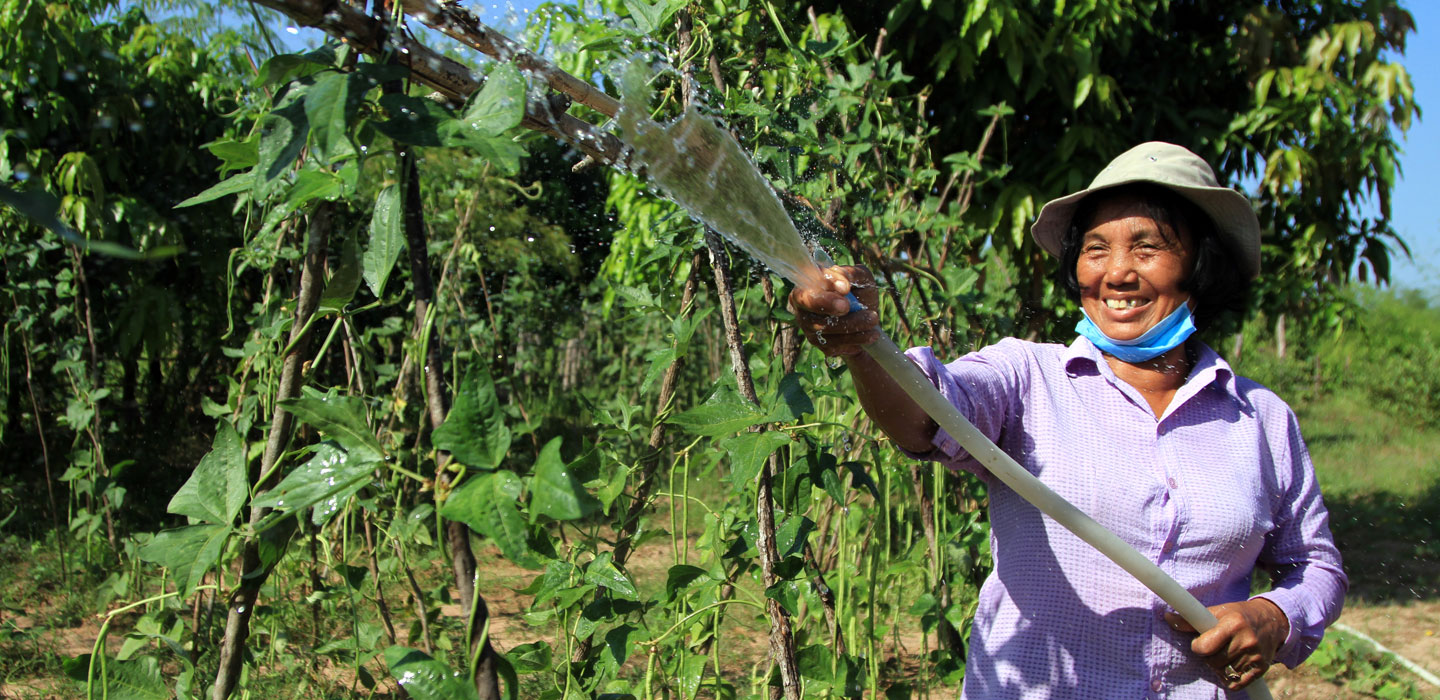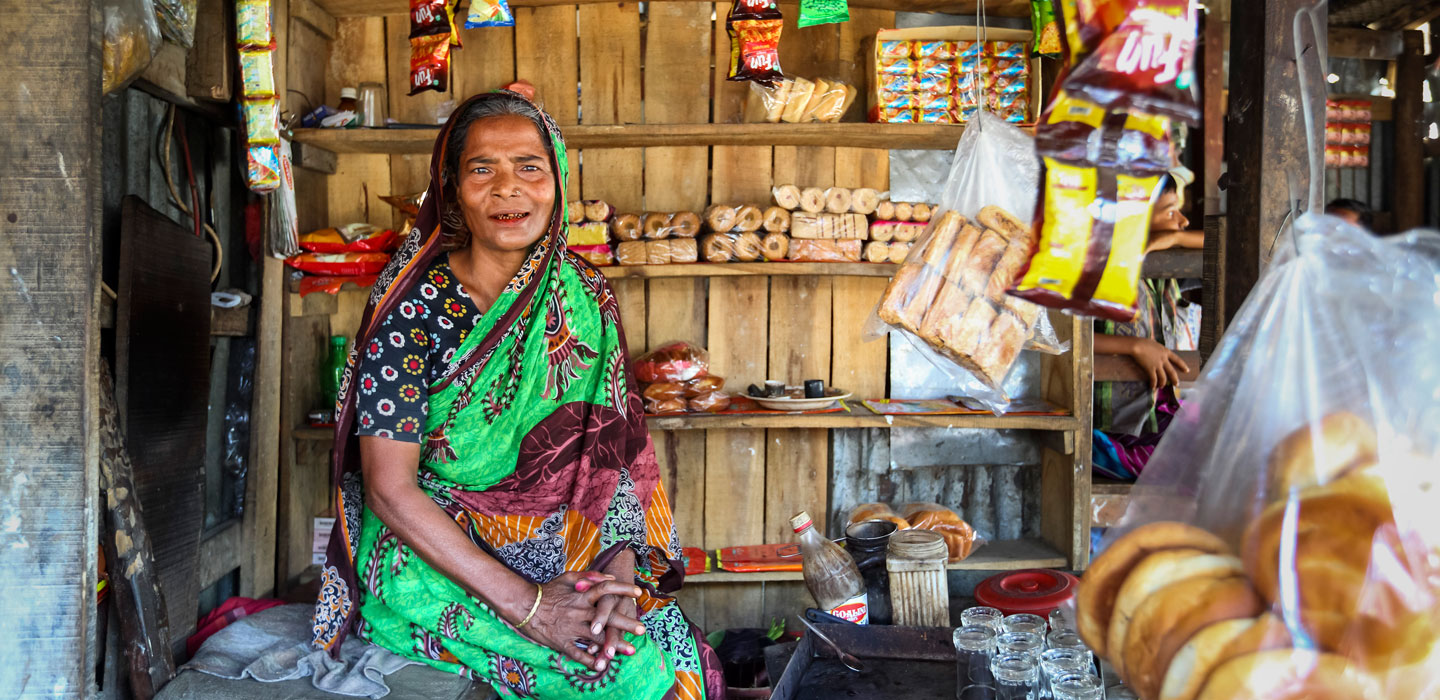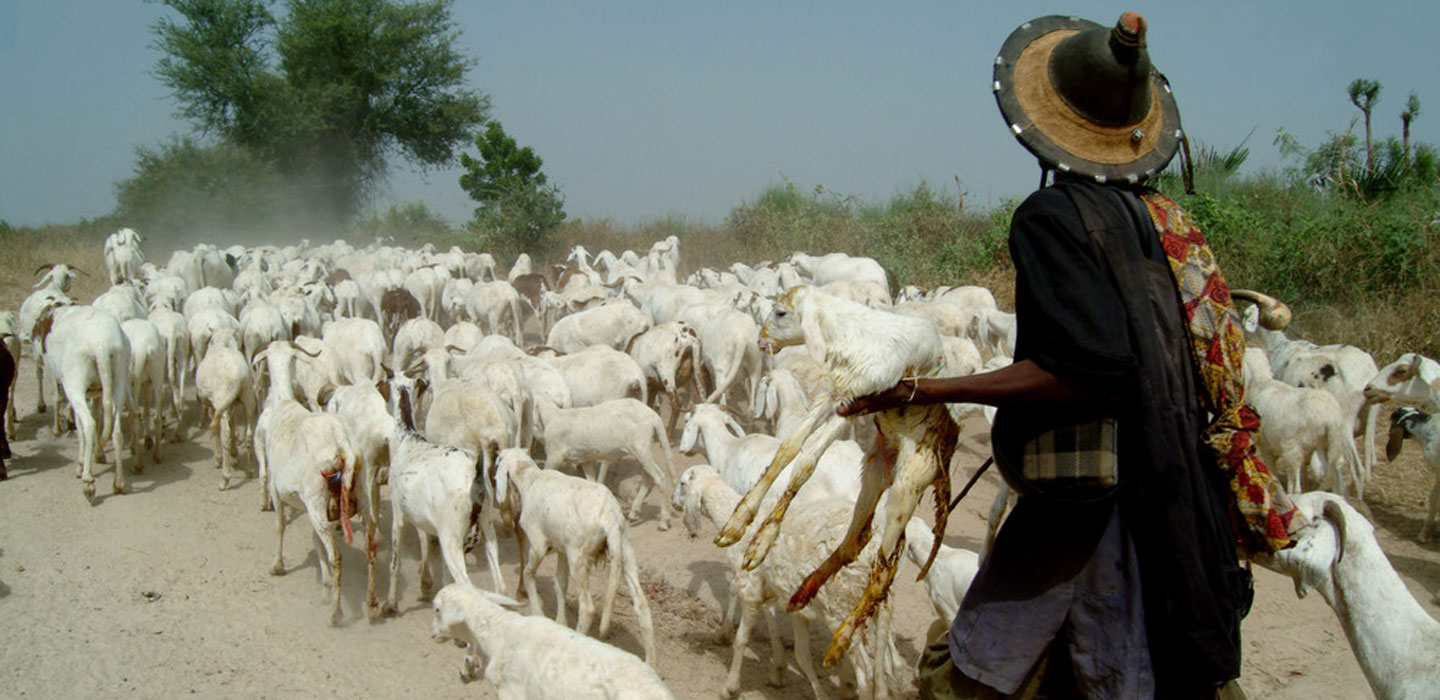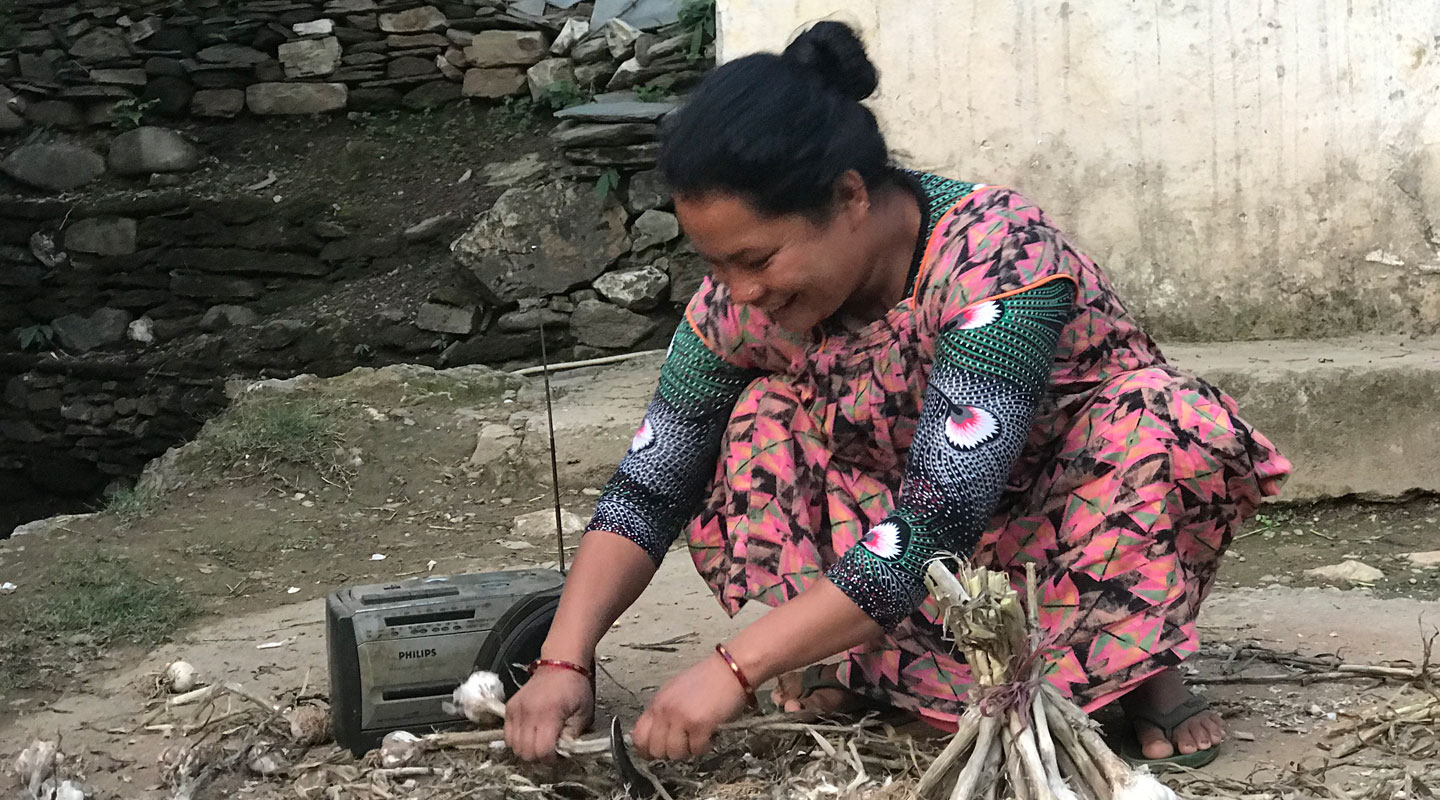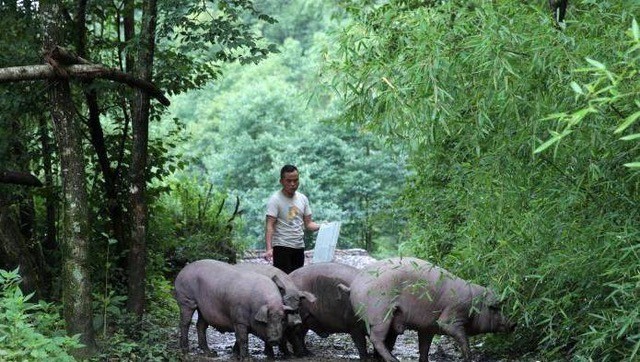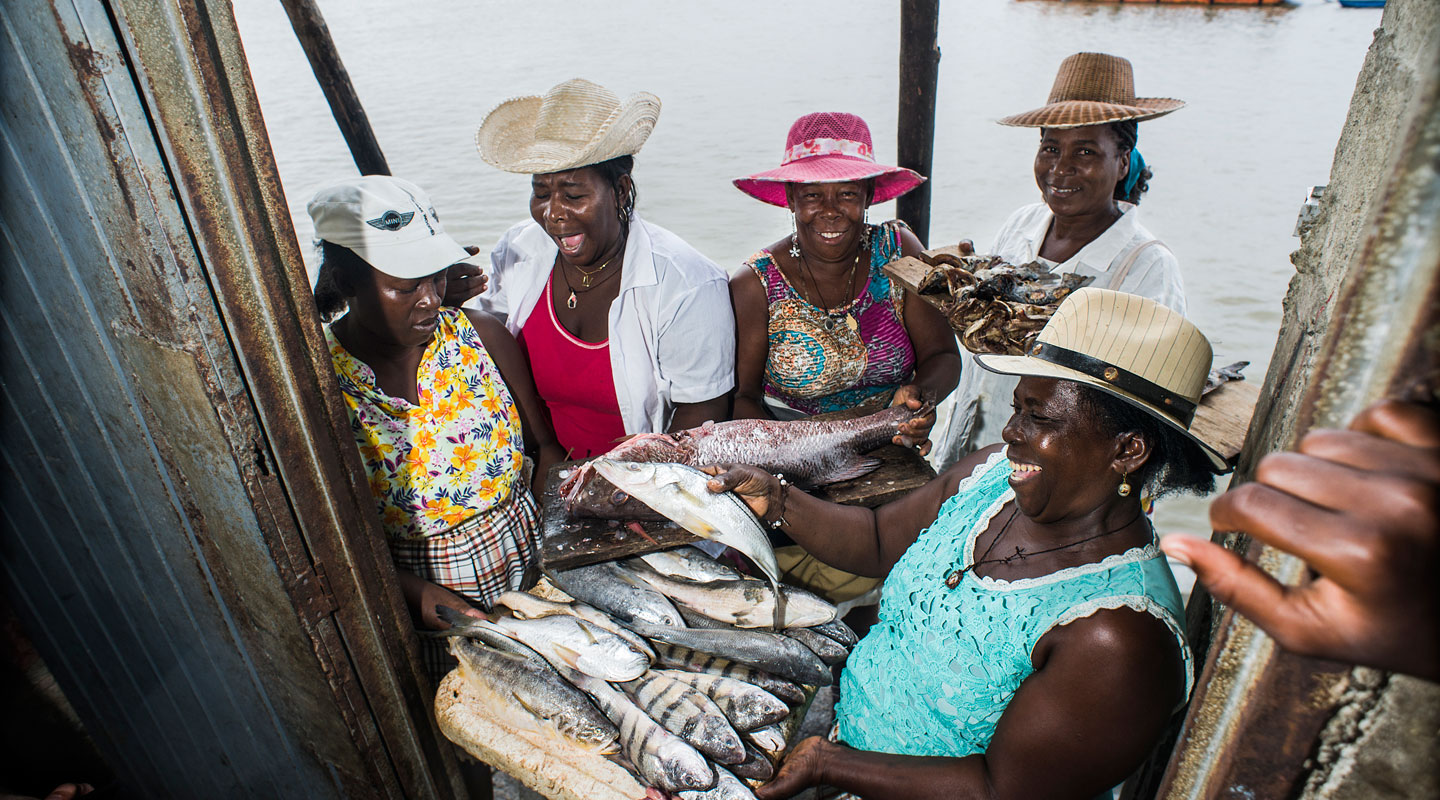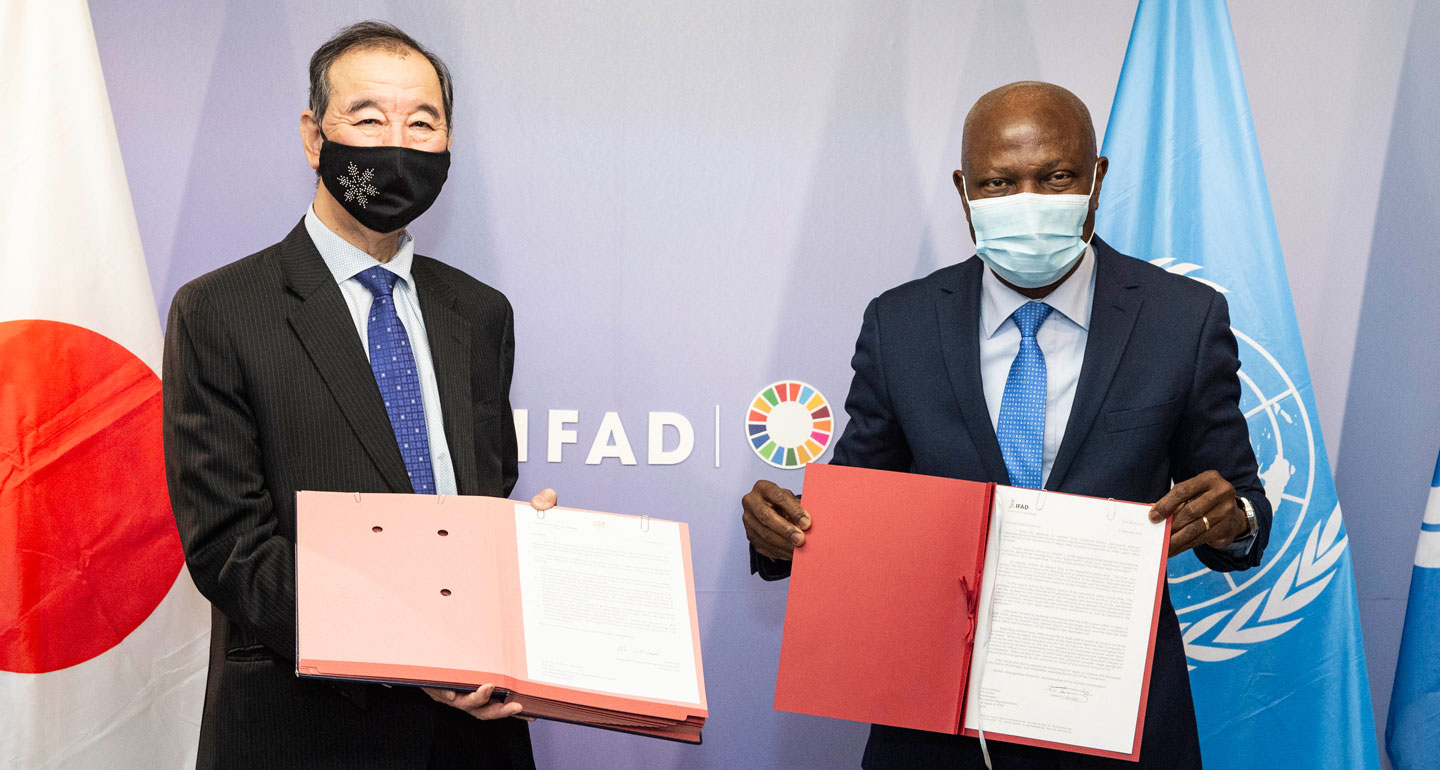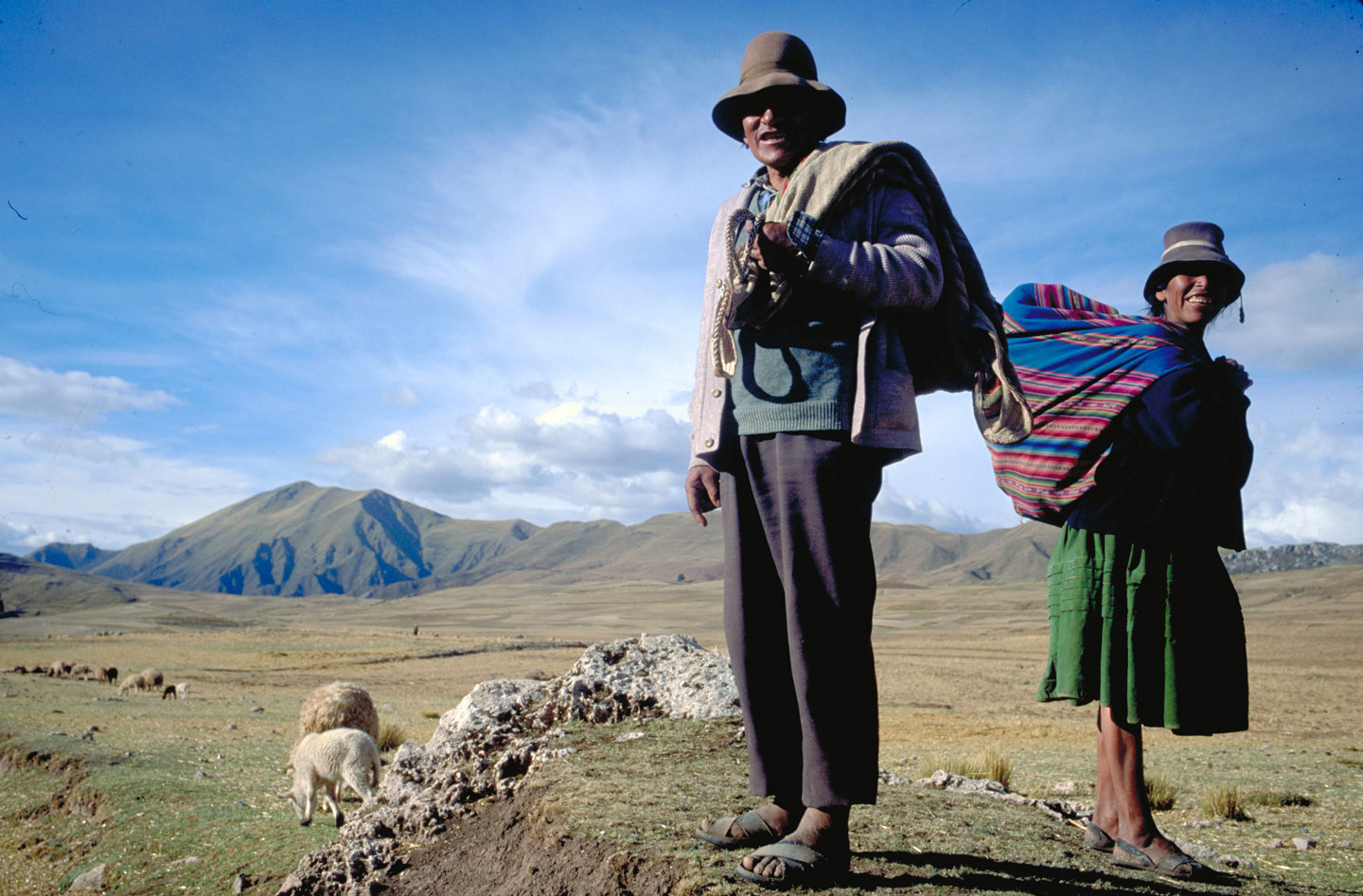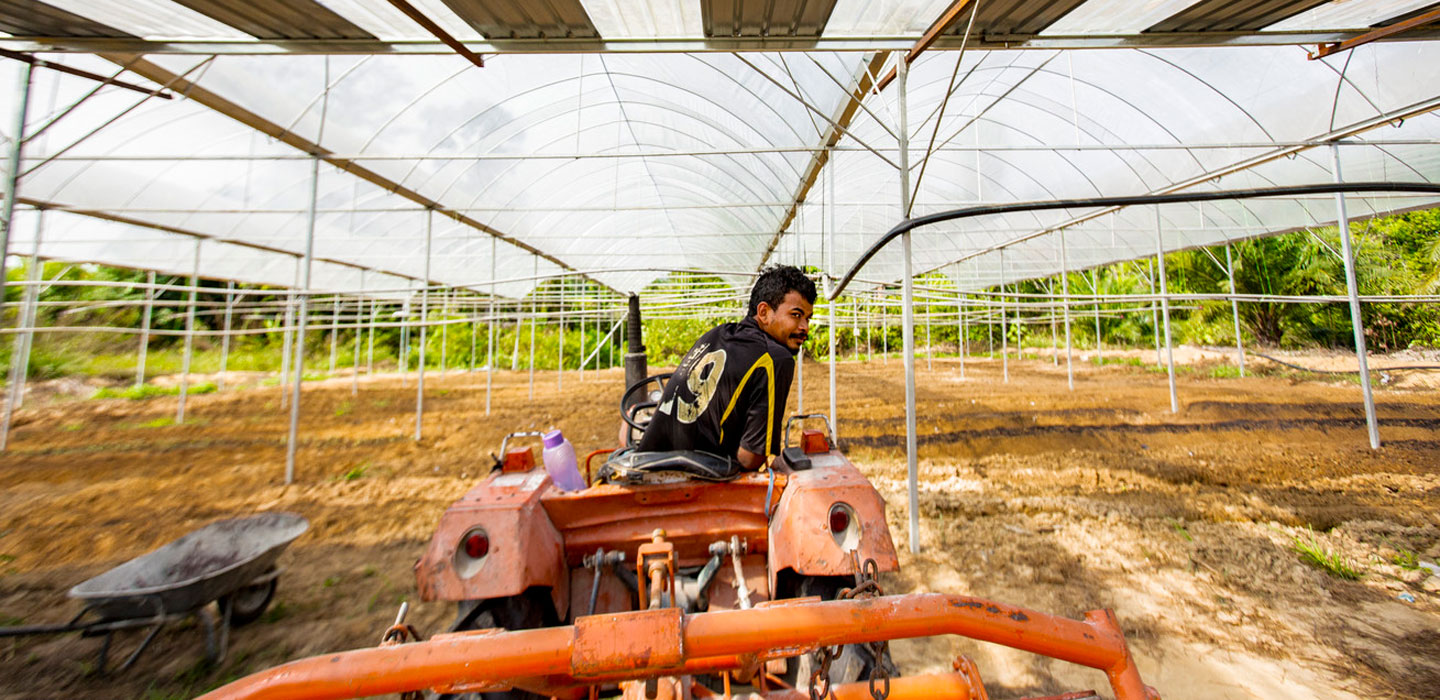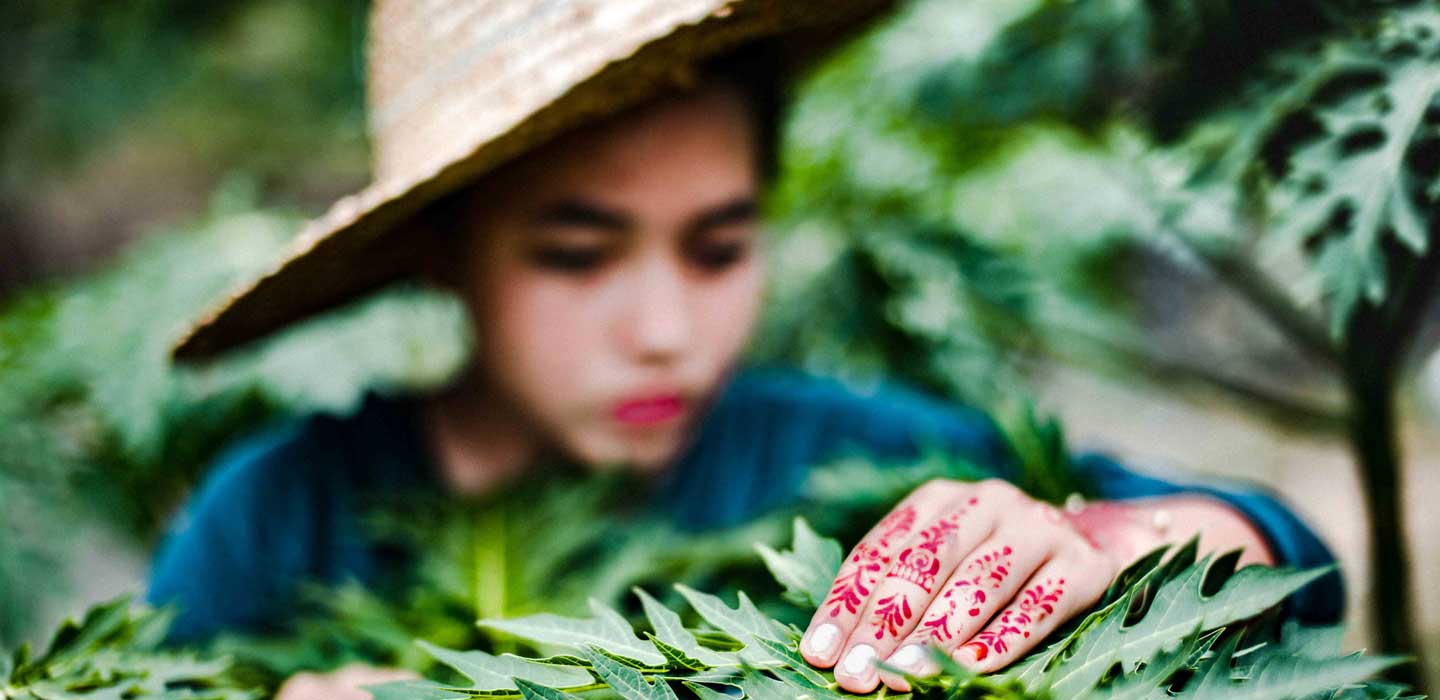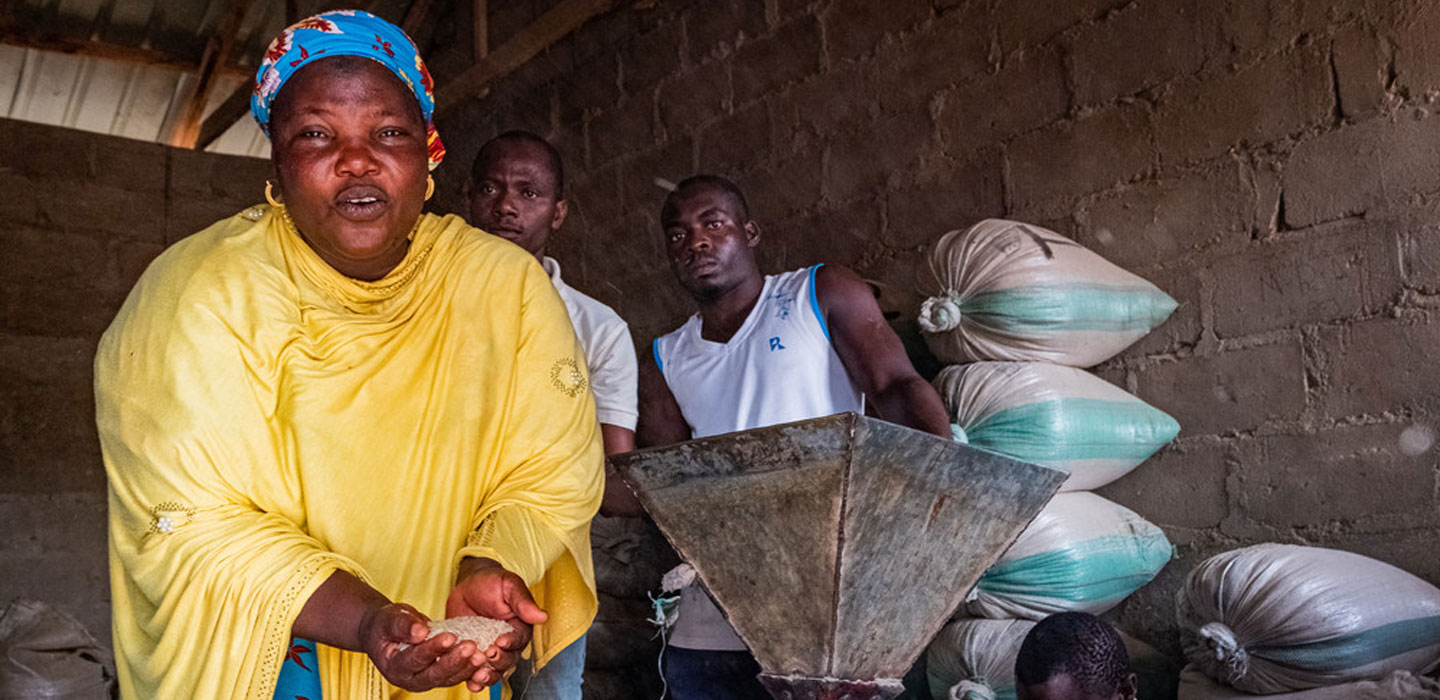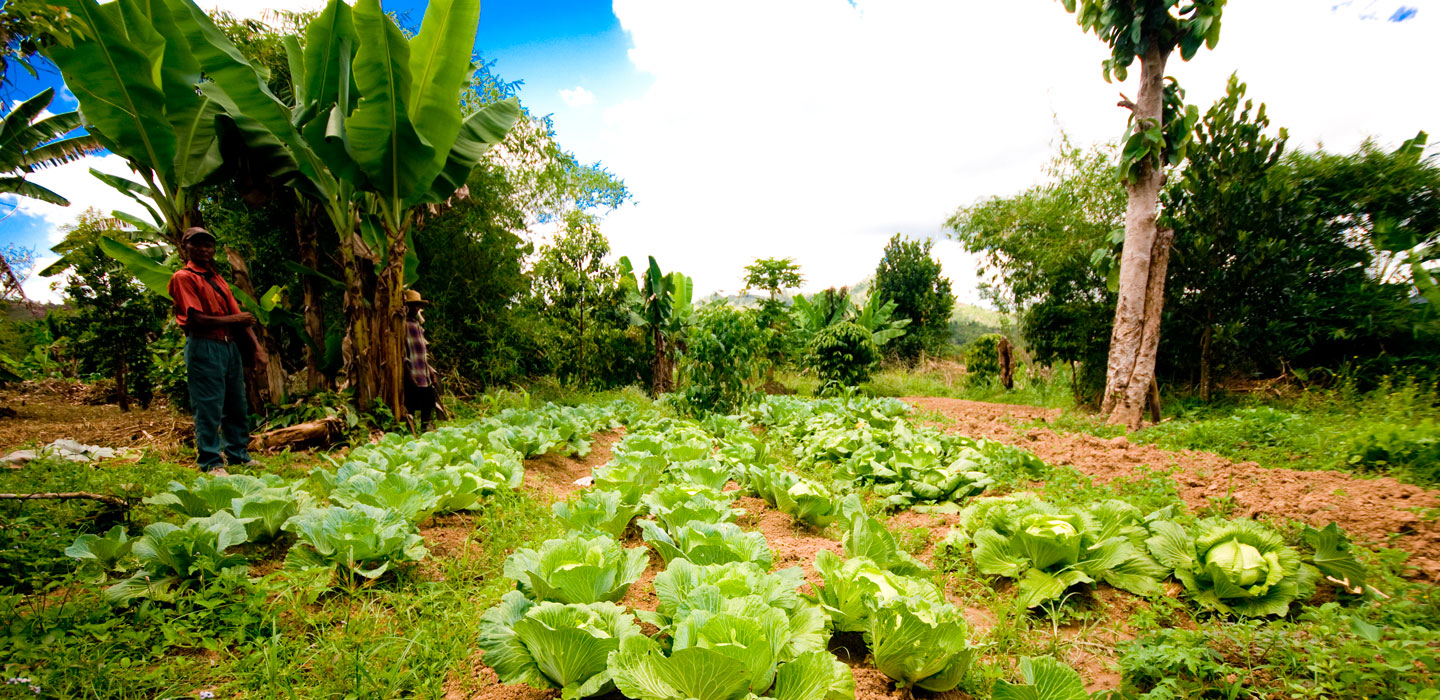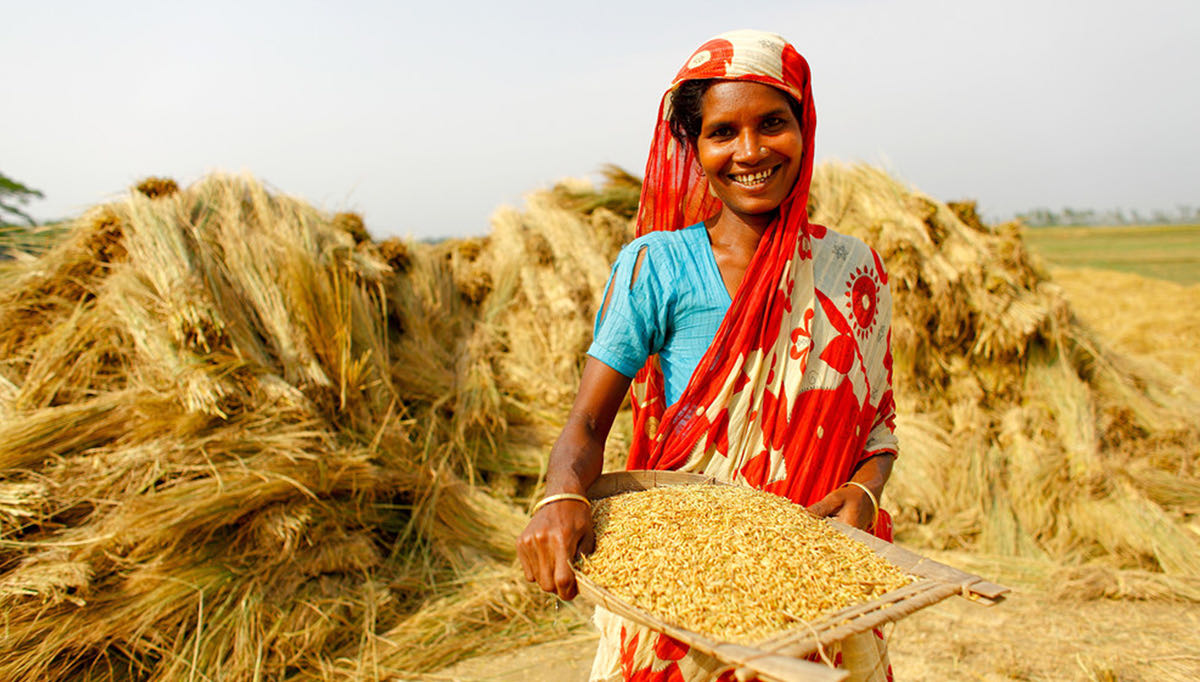Latest
Latest

Latest
Manual Submenu Topics
Search Results Filters
Search Results
European Union and IFAD to support Ethiopian rural financial institutions, jobs and livelihoods in the face of the COVID-19
The International Fund for Agricultural Development (IFAD) and the European Union (EU) will provide EUR26.5 million worth of liquidity and debt relief to rural financial institutions to protect jobs and safeguard livelihoods during the COVID-19 pandemic.
How innovation is helping tea growers in Sri Lanka
Sri Lanka has been a global supplier of tea since the plant was first imported to the island about a hundred and fifty years ago. Since then, tea estates have often been passed down from generation to generation, weathering good times and bad.
From Kenya: the Ogiek honey Slow Food Presidium
The entire Ogiek belief system and livelihood relies on the forest and its resources, with honey being the most important product and a staple food for Ogiek families.
Fighting climate change in Latin America and the Caribbean
Small-scale farmers are responsible for up to 80 per cent of food production in Latin American and Caribbean countries, but they are at the frontline of the fight against climate change and social injustice.
New operational guidelines for Pro-Poor Value Chain Development help IFAD reach the poorest
In Ghana, the value chain model has helped build solid relationships, showing that even the poorest can be brought into commercial value chains if extra support is provided.
Restoring ecosystem services in the Peruvian Andes
In the Andes of Peru, rural farmers are helping to restore the region’s degraded lands and improve water security.
South Sudan small-scale producers receive support from IFAD to safeguard their livelihoods in the face of the COVID-19 crisis
IFAD will provide much needed funding to assist 23,900 vulnerable rural people (4,780 households) in the Republic of South Sudan. The IFAD grant will help reduce the impact of the COVID-19 pandemic on their farming activities and safeguard their livelihoods.
Tanzania and IFAD partner to boost productivity, improve food security and build resilience of small-scale farmers in the face of the climate change
A US$77.4 million project signed by IFAD and the Government of the United Republic of Tanzania will bring much needed help to 260,000 rural households facing the impacts of climate change.
How to change a life: Household mentoring makes a difference in northern Uganda
They say that leaders aren’t born, but made. That’s certainly true for Molly Ajok.
Call for proposals: Grant to strengthen borrowers’ capacity on environmental, social and climate best practices
This call for proposals is to select a recipient or consortium of recipients to receive a three-year IFAD grant financing to implement the SUSTAIN project for a total IFAD grant of US$2 million.
Interview with Recipes for Change Chef Roy Caceres
"A passion for work is the fundamental ingredient of cooking."
Spearheading South-South and Triangular Cooperation with partners in Asia
Cooperation among the global south, i.e., South-South and Triangular Cooperation (SSTC), is an integral part of international cooperation, and complements the traditional North-South Cooperation in development assistance.
In Nicaragua, coffee and cocoa make life sweeter
NICADAPTA works closely with producer cooperatives to help them sustainably access coffee and cocoa markets. The results are making life not only sweeter, but also better.
School meals in Guatemala - making food systems work
Guatemala has the fourth highest rate of malnutrition in the world where over 50 per cent of children under five are stunted. Many children do not get enough nutritious food, and often came to school hungry.
Small-scale farmers in remote areas of Haiti receive help for food production and COVID-19
The Government of Haiti and IFAD today signed a financing agreement for a project that will help Haitian farmers recover from the impact of Covid-19 and increase staple food production.
Development banks, institutions pledge US$17 billion to increase food security in Africa
A coalition of multilateral development banks and development partners has pledged over US$17 billion in financing on Friday during a high-level forum, in a bold bid to address rising hunger on the African continent and to improve food security.
Second round of National Calls for Proposals (Kenya and Uganda): Supporting remittances in times of crisis in Africa
The Financing Facility for Remittances of IFAD is pleased to announce the second round of National Calls for Proposals (Kenya, Uganda) 2021: supporting remittances in times of crisis in Africa.
African Development Bank, IFAD and partners redouble efforts to stop hunger in Africa and strengthen food security
The African Development Bank and the International Fund for Agricultural Development (IFAD), in partnership with the Forum for Agricultural Research in Africa (FARA) and the CGIAR System Organization, today pledged to work closely with African leaders to address rising hunger on the continent and shore up adequate financing to transform and modernize Africa’s food production.
Building climate resilient agriculture
Those who have the most to lose as a consequence of climate change are poor rural people, especially smallholders who rely on agriculture for survival.
Boosting food security in the Pacific with innovative technologies
Who could have predicted that two innovative mobile applications, each the winner of a Pacific Agrihack Lab grant in late 2018, would go on to make a difference in the lives of Pacific Islanders during the pandemic?
The Maasai of Kenya and the Red Maasai sheep slow food presidium
The rights of indigenous peoples to control their land according to their own needs and decisions is fundamental to protect their livelihoods and defend the biodiversity of native animal breeds and plant varieties.
Struggle, strength and wisdom: Snapshots of Bangladesh’s women farmers
The story of agriculture in Bangladesh is also a story of the resilience of Bangladeshi women. If women have the chance to participate in decision-making, the whole community benefits.
Farming, COVID, and Farmers’ Mental Health - Episode 19
We begin this month’s episode with the latest from IFAD’s Associate Vice-President Donal Brown on how small-scale farmers are dealing with the COVID-19 crisis.
What we are reading on food systems
As we approach the UN Food Systems Summit here are some suggested reads on transforming our food systems for people, and planet.
Feeding Africa: Leadership to Scale up Successful Innovations
The African Development Bank and IFAD, in partnership with the Forum for Agricultural Research in Africa (FARA) and the CGIAR System Organization, will co-host a high-level dialogue: Feeding Africa: leadership to scale up successful innovations.
In Kyrgyzstan, new technology preserves age-old pastures
Urmatbek Omurbekov remembers a time when grazing his livestock was a purely offline affair. Every spring, herders like him would bring their animals to the foothills of the majestic Tian Shah Mountains to let them fatten up for the next winter.
IFAD-BRAC collaboration empowers rural people to build their climate resilience
People in rural areas, especially small-scale farmers, are among those most affected by climate change. The shifting climate has made weather patterns more unpredictable and weather-related events more extreme.
Potential game-changing systemic solutions for the UN Food Systems Summit: Advancing equitable livelihoods
The UN Food System Summit’s Action Tracks offer a space to share and learn, with a view to fostering new actions and partnerships and amplifying existing initiatives. Each of the five Action Tracks is aligned with one of the Summit’s five objectives.
IFAD and the Islamic Development Bank commit $500 million to address hunger and climate change in poor rural communities
Joining forces to tackle rising hunger and the devastating impact of climate change in some of the world’s most vulnerable countries, IFAD and IsDB today signed a US$500 million cooperation and cofinancing agreement.
Kenya: All the ingredients for a successful banana processing factory
Take some young entrepreneurs, add some modern equipment and training supported by IFAD and the Kenyan Government, spread the word using digital marketing, and you have all the ingredients for a successful banana processing factory.
The promises the olive grove holds: Fadieh’s story
Growing olive trees in Jordan, one of the driest countries in the world, isn’t easy. Every day, Fadieh and her family spend hours tilling the soil and tending to the trees, but the most demanding task is keeping the trees hydrated.
Fighting fires with rice paddies in Sierra Leone
Farmers in Sierra Leone have shifted from slash-and-burn cultivation to rice cultivation in inland swamps. That is reducing the number of forest fires, a GIS study has shown.
Digital information service helps small-scale farmers respond to COVID-19
The Kenya National Farmers’ Federation is implementing a mobile information platform to serve its members and other Kenyan farmers.
Small-scale Farmers Developing Resilience to COVID-19 - Episode 18
In this episode, we bring you the latest on how small-scale farmers are dealing with the COVID-19 crisis.
New investment in digital solutions will connect Latin American farmers to markets and banking services in response to COVID-19 restrictions
More than 10,000 family farmers in Latin America will soon have access to digital solutions to overcome the obstacles they face in accessing markets and financing due to the consequences of the COVID-19 pandemic.
Helping remittances reach rural areas in Moldova
For some time now, it has been difficult to find well-paid work in Moldova. Most of the good jobs available are concentrated in the cities, resulting in significant migration out of the country’s rural areas.
The China-IFAD South-South and Triangular Cooperation Facility: Leveraging SSTC for rural development
To accelerate rural poverty alleviation, enhance rural productivity, and advance rural transformation through South-South and Triangular Cooperation, the China-IFAD SSTC Facility was established in 2018, becoming the first Facility in IFAD dedicated to SSTC.
Drought-tolerant rice varieties benefit farmers even in non-drought years
Farmers that lack irrigation and rely on rainfed production are particularly vulnerable to drought. Fortunately, agricultural technologies, such as stress-tolerant rice varieties (STRVs), can help them adapt to climate change.
Making every drop count: Saving water and rural livelihoods
Until recently, every time Fatima Hassan Mohamed needed water to wash, cook, or drink, the mother of five had to set out on foot. The nearest water source was more than 20 kilometers away.
Restoring Morocco’s mountain ecosystems with reforestation
In many areas of rural Morocco, climate change has led to widespread erosion and desertification, causing steep declines in soil quality. This makes farmland less productive, endangering the livelihoods of the area’s small-scale farmers.
Why water is crucial for sustainable food systems
Enhancing irrigation efficiency is not a priority in policy agendas, being overshadowed by the global issue of access to drinking water and sanitation.
Italy to set the stage for UN Food Systems Summit with three-day event that will deliver bold new ambitions
The United Nations and the Government of Italy announced today that the Pre-Summit gathering for the 2021 UN Food Systems Summit will be in Rome, Italy from July 19 to July 21, 2021.
Linking families, farms and schools in Guatemala
Many Guatemalans struggle with hunger and food insecurity, especially the nation’s children. In too many cases, lack of access to adequate food leaves children feeling weak and unable to concentrate in school, complicating both their physical and intellectual growth.
IFAD-GEF–supported project in Eswatini scoops the 2020 Biodiversity Award
The IFAD- and GEF-supported Smallholder Market-led Project (SMLP-CSARL) recently received the Biodiversity Award at Eswatini’s 2020 Temvelo Climate Awards.
Targeting hunger by transforming food system through South-South Cooperation
Through South-South Cooperation, IFAD is tapping into existing expertise, skills, capacities, and solutions to address the effects of COVID-19 pandemic and other challenges on rural populations.
The power of options
Like other women on Santiago, the largest island of Cabo Verde, Maria Lizita Varela used to rely on sand extraction as a source of income. It was thankless, dangerous work.
Empowering women and girls is crucial to ensure sustainable food security in the aftermath of COVID-19, say UN food agency heads ahead of International Women’s Day
Hunger and famine will persist and there will be unequal recovery from the impacts of the COVID-19 pandemic unless more women in rural and urban areas hold leadership positions with increased decision-making power.
Promoting women’s economic empowerment in West and Central Africa
A growing number of reports are demonstrating what many development professionals already know about the impacts of COVID-19: women and girls are more vulnerable to the negative health and socio-economic effects of the crisis.
Big dreams come true in Turkey’s smallest district
Meltem Gözel’s day begins at 07.00 each morning. Before the sun has risen, she’s already at work in her greenhouses, tending to her mushrooms.
Upholding cultural traditions in Tonga
An old Tongan proverb says that a successful village lives together, works together, and helps one another. This is especially true for handicrafts, an integral part of traditional Tongan culture.
El FIDA lanza la Segunda Edición del Premio a la Innovación Juvenil Rural en América Latina y el Caribe
El objetivo del concurso es identificar y premiar iniciativas innovadoras impulsadas por jóvenes que contribuyan a superar los desafíos de la pandemia de COVID-19 en las áreas rurales de la región.
What impact will the COVID-19 pandemic and the global economic downturn have on world food security?
In 2021, the impact of the epidemic and the global economic recession will have an impact on world food security. After the epidemic, what problems will global food security face and how to deal with it?
The People Behind Your Plate - Powerful photos and stories available
The People Behind Your Plate is a coffee table book of powerful images and stories of rural people worldwide created IFAD and released for global use today.
Pioneering development in rural Uzbekistan
Starting over is never easy, whether you’re an individual person or an entire nation. Nevertheless, the economy of Uzbekistan has made incredible progress in recent years.
Tracking investments in Tunisia with remote sensing
Many elements involved in IFAD-funded projects. As long as an element’s precise geographic coordinates are known, satellite imagery can be used to monitor any changes that have taken place.
Celebrating Women in Leadership Across the Globe - Episode 17
In this episode, we celebrate International Women’s Day (IWD), a global day of observance that celebrates the social, economic, cultural and political achievements of women.
Donors commit to highest-ever funding to UN rural development agency IFAD to tackle hunger and poverty for the world’s poorest
IFAD will be able to invest US$3.8 billion in the world’s rural poor thanks to an unprecedented record-high financing target set today by governments from 177 countries at IFAD’s annual Governing Council.
Breaking the vicious circle of hunger and conflict
Hunger is both a cause and result of conflict. In fact, conflict is the main driver of hunger in most of the world’s food crises.
UN to involve millions of rural people in 2021 Food Systems Summit as part of ambitious public engagement process
An unprecedented commitment to ensure that the voices and opinions of millions of the world’s most remote rural people are at the heart of the United Nations Food Systems Summit was announced today by the UN Secretary-General’s Special Envoy, Agnes Kalibata and the President of IFAD, Gilbert F. Houngbo.
World leaders call for greater international cooperation to tackle hunger and poverty at IFAD global meeting
The fate of the world’s poorest and wealthiest nations are interconnected, and eradicating poverty and hunger will be impossible without urgent and focused international cooperation efforts directed at long-term development, said world leaders speaking at the opening of the IFAD annual Governing Council meeting today.
Gilbert F. Houngbo reappointed IFAD President with an ambitious agenda to end hunger and poverty for hundreds of millions of world’s poorest people
In a strong show of support and recognition for the leader who has successfully showcased the importance of long-term rural development, Member States have reappointed Gilbert F. Houngbo as President of IFAD for a second term at its annual Governing Council meeting today.
Livelihood-recovery project directly supporting Cambodia’s most vulnerable and those impacted by COVID-19 to launch tomorrow
The Ministry of Agriculture, Forestry and Fisheries (MAFF) and FAO will sign a project agreement tomorrow to directly support 10,000 of the most vulnerable people affected by COVID-19 in Siem Reap and Banteay Meanchey Province to restore their livelihoods and improve their resilience to the crisis.
Countries worldwide are stepping up to support rural farmers living in poverty
The COVID-19 pandemic has been hard on smallholder farmers in low-income countries who have struggled to access to markets, labourers, technology, and key resources amid physical distancing mandates, shifting government funding priorities, and plunging income levels.
Increased investment in Sahel will boost development and resilience of rural populations
About one million rural people in the Sahel region will benefit from a new joint programme, the first of its kind, IFAD announced today. The US$180.4 million Regional Joint Programme will revitalize economic activities and food systems in the Group of Five Sahel countries and in the Republic of Senegal.
How radio came to the rescue in Nepal
Last March, when Nepal went into lockdown to manage the COVID-19 pandemic, Sarbaraj Bhandari realized he was in a bit of a fix. A goat farmer, he was in the process of upgrading and managing his goat-shed facilities with the help of extension services and technical support provided to farmers participating in the Ministry of Agriculture and Livestock Development-led and IFAD-supported Agriculture Sector Development Programme (ASDP).
Bringing home the bacon: Digitalization helps Chinese pig farmers scale up
Zhenba County, nestled in the mountains of China’s Shaanxi province, has long been known for its traditional bacon, expertly smoked and cured to produce an unmatched flavor.
IFAD Governing Council and press conference with new announcement on UN Food Systems Summit - 17-18 February 2021
Heads of state, ministers and rural development experts will come together at the 44th annual Governing Council meeting of IFAD to discuss the critical importance of investing in the rural areas of the world’s poorest countries to build global stability and peace, and how to close the rural development funding gap.
IFAD’s new book The People Behind Your Plate
As I scroll through the pages of the new photo book The People Behind Your Plate just published by IFAD, I remember my own visits with rural people in remote villages as I travelled around Lesotho to collect recipes for my cooking books.
UN rural development agency IFAD to open Japan office to boost global hunger eradication efforts
The Japanese government and the IFAD signed an historic agreement today to open the first IFAD Liaison Office in Japan.
Indigenous Peoples are critical to build a more sustainable post-pandemic world, says IFAD President
Indigenous Peoples have suffered disproportionately from the economic impacts of COVID-19, yet they hold essential knowledge for rebuilding a more sustainable and resilient post-pandemic world, free of poverty and hunger, said Gilbert F. Houngbo, President of IFAD, at the opening of the Fifth global meeting of the Indigenous Peoples’ Forum today.
Indigenous food systems are at the heart of resilience
Indigenous food systems represent a treasure trove of knowledge that contributes to well-being and health, benefiting communities, preserving a rich biodiversity, and providing nutritious food.
Invitation to Indigenous Peoples’ Forum at IFAD: How indigenous food systems can help build resilience to impacts of the COVID-19 pandemic
This year, representatives from Indigenous Peoples’ groups from around 57 countries will meet with development organisations and governments to discuss ways to address challenges and opportunities.
Help for Nigerian small-scale farmers to improve food security and combat poverty in the face of COVID-19
The Federal Government of Nigeria and IFAD are working together to lessen the impact of the Covid-19 pandemic on small-scale farmers’ activities and domestic food supply in northeastern states of Nigeria.
Unless we urgently rethink agriculture, more diseases will jump species
As the world grapples with the current pandemic, other threats, not least our climate emergency, have not gone away. The science is clear that without urgent global action, the climate and broader environmental crisis could be worse.
New Vision, New Year – Episode 16
In this month’s episode, we’re focusing on youth and indigenous peoples as agents of change in the developing world.
